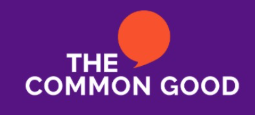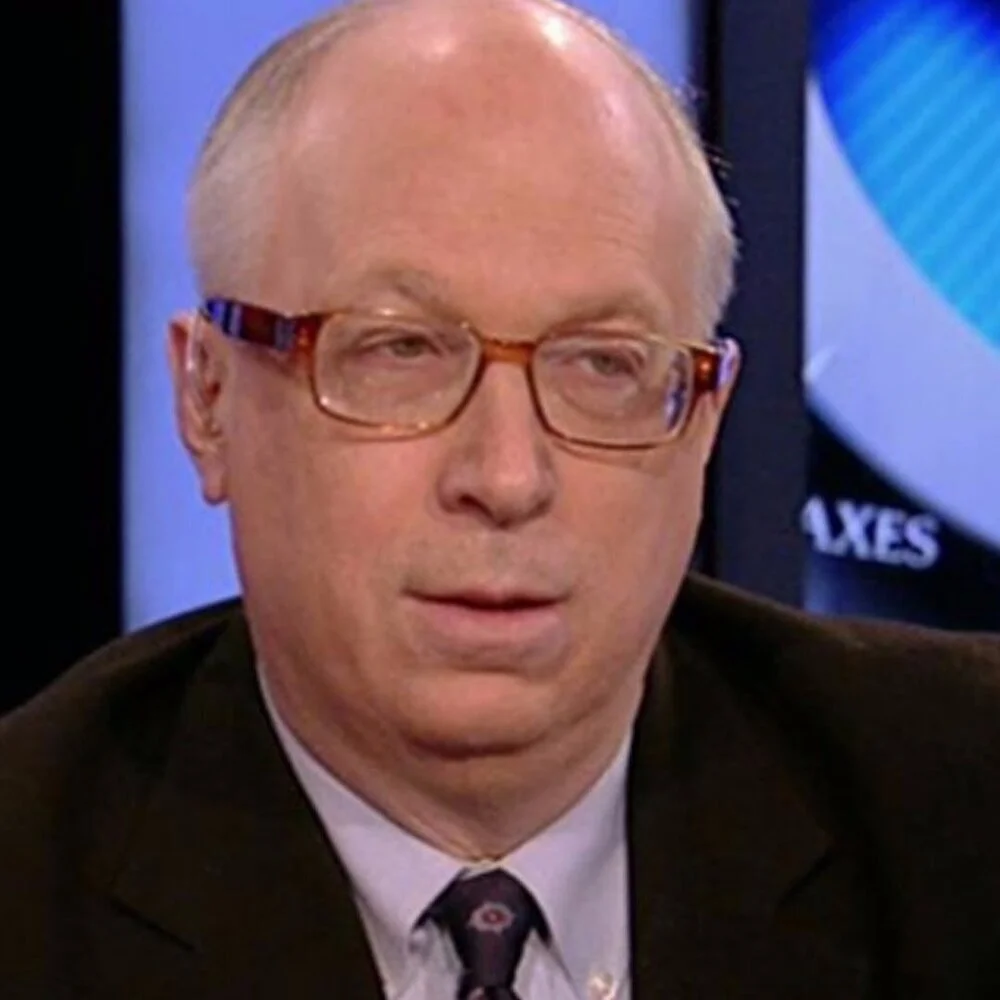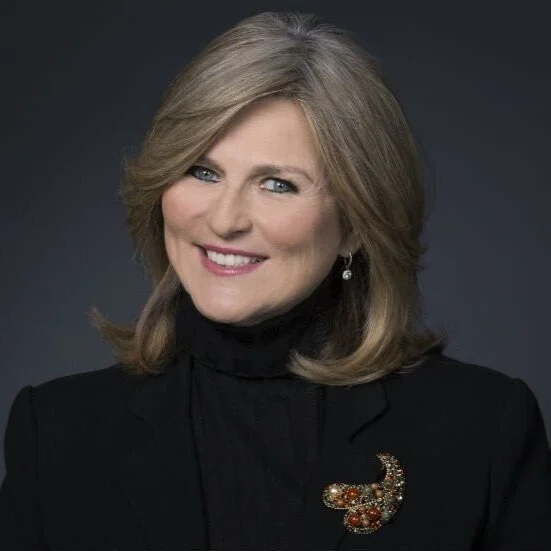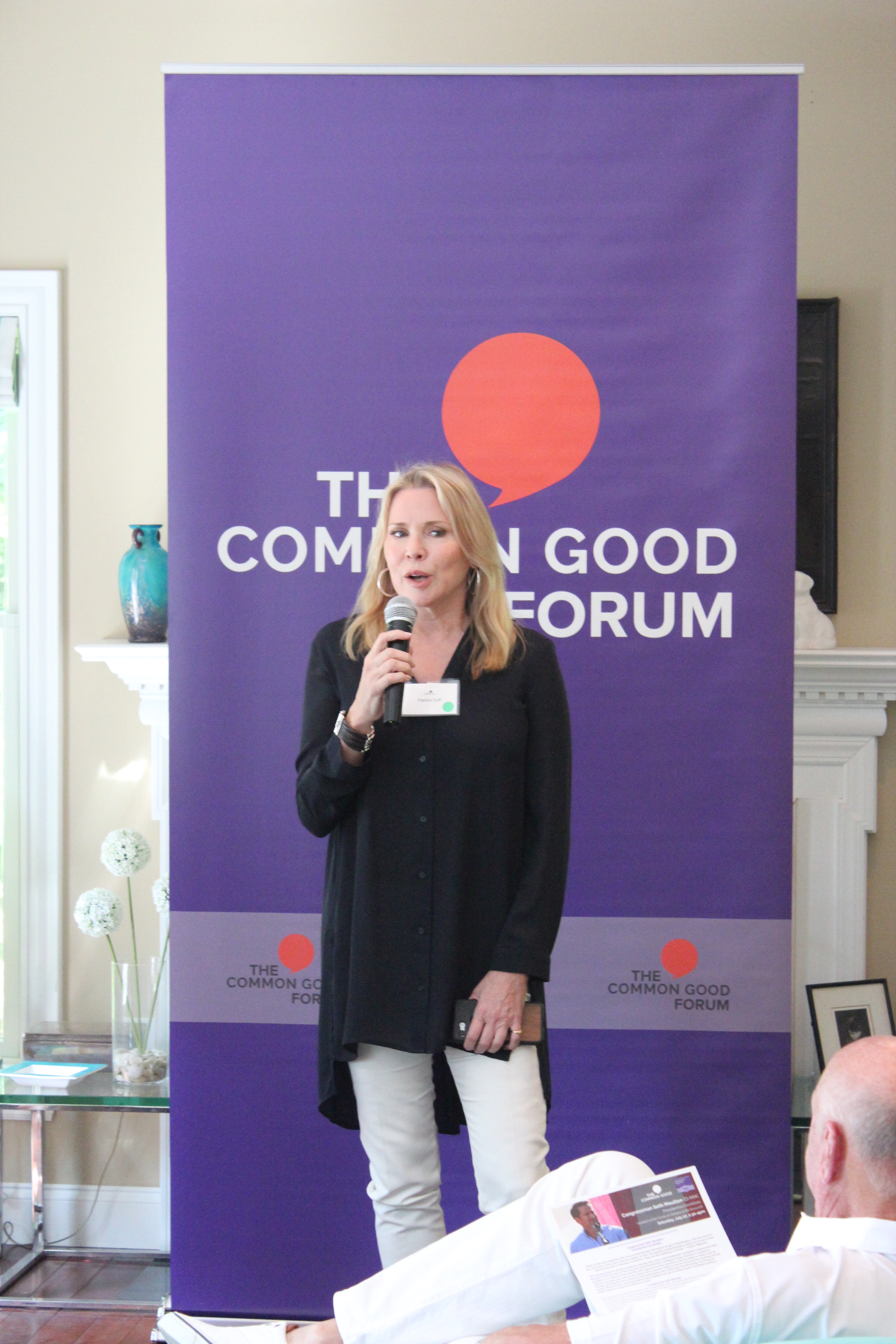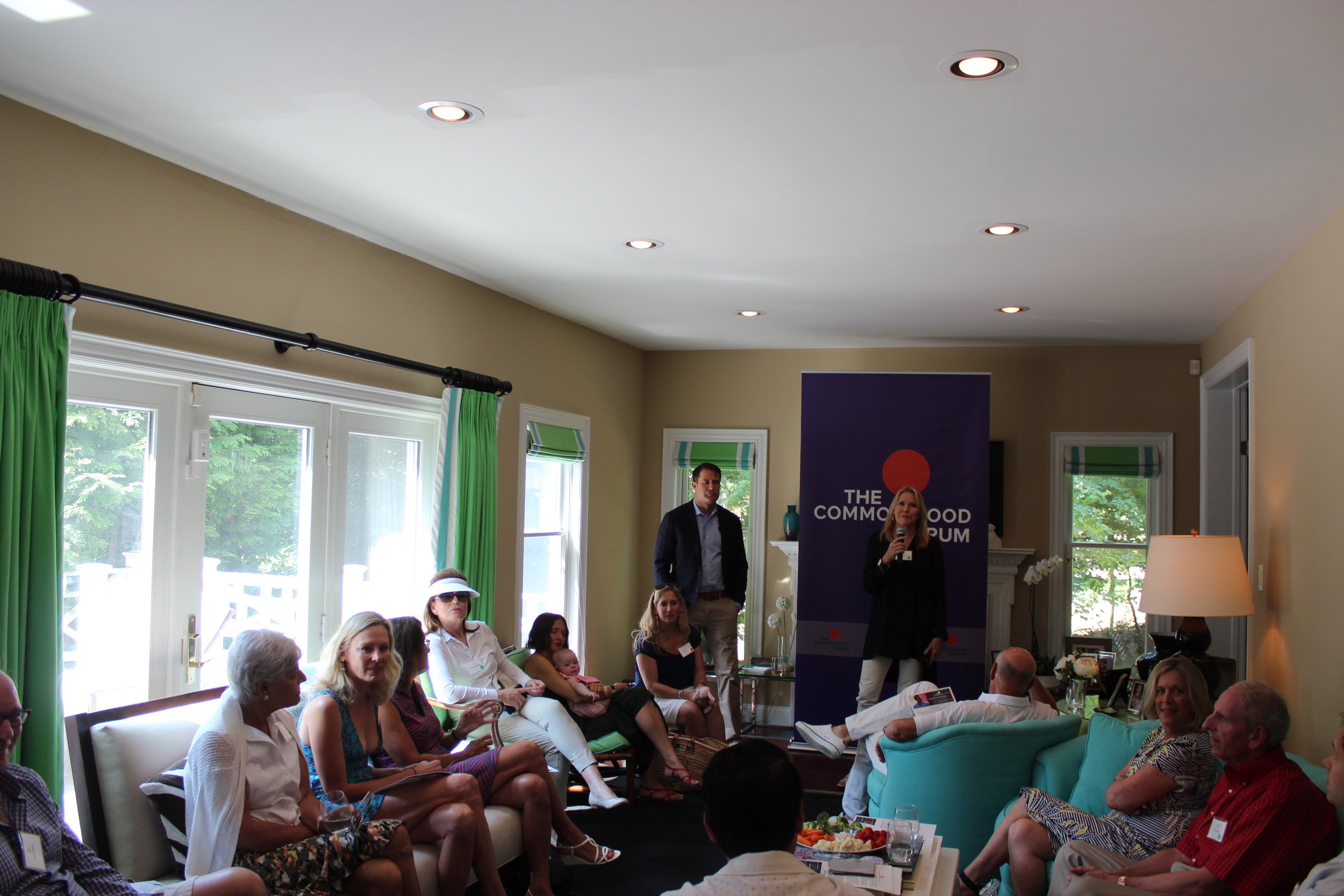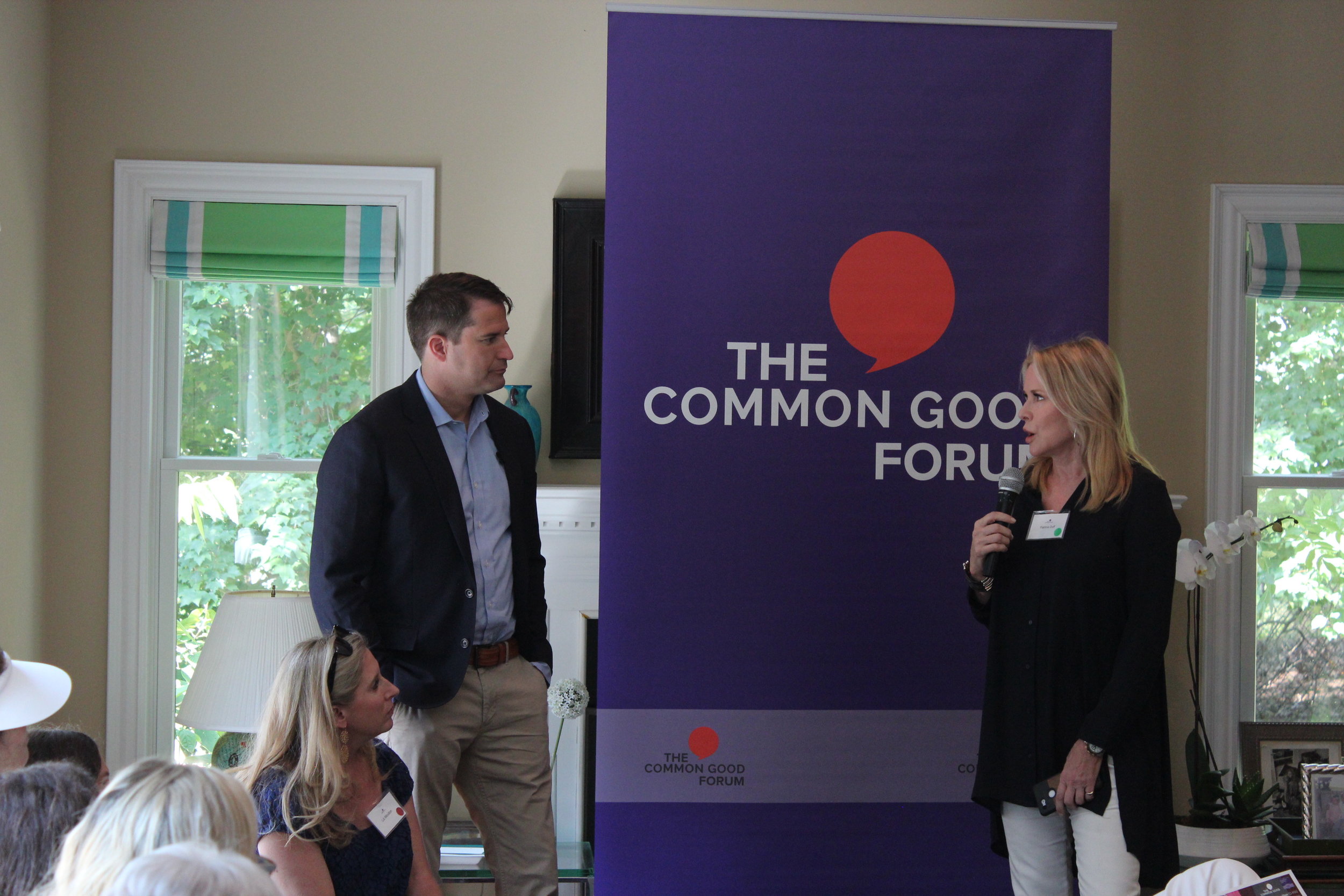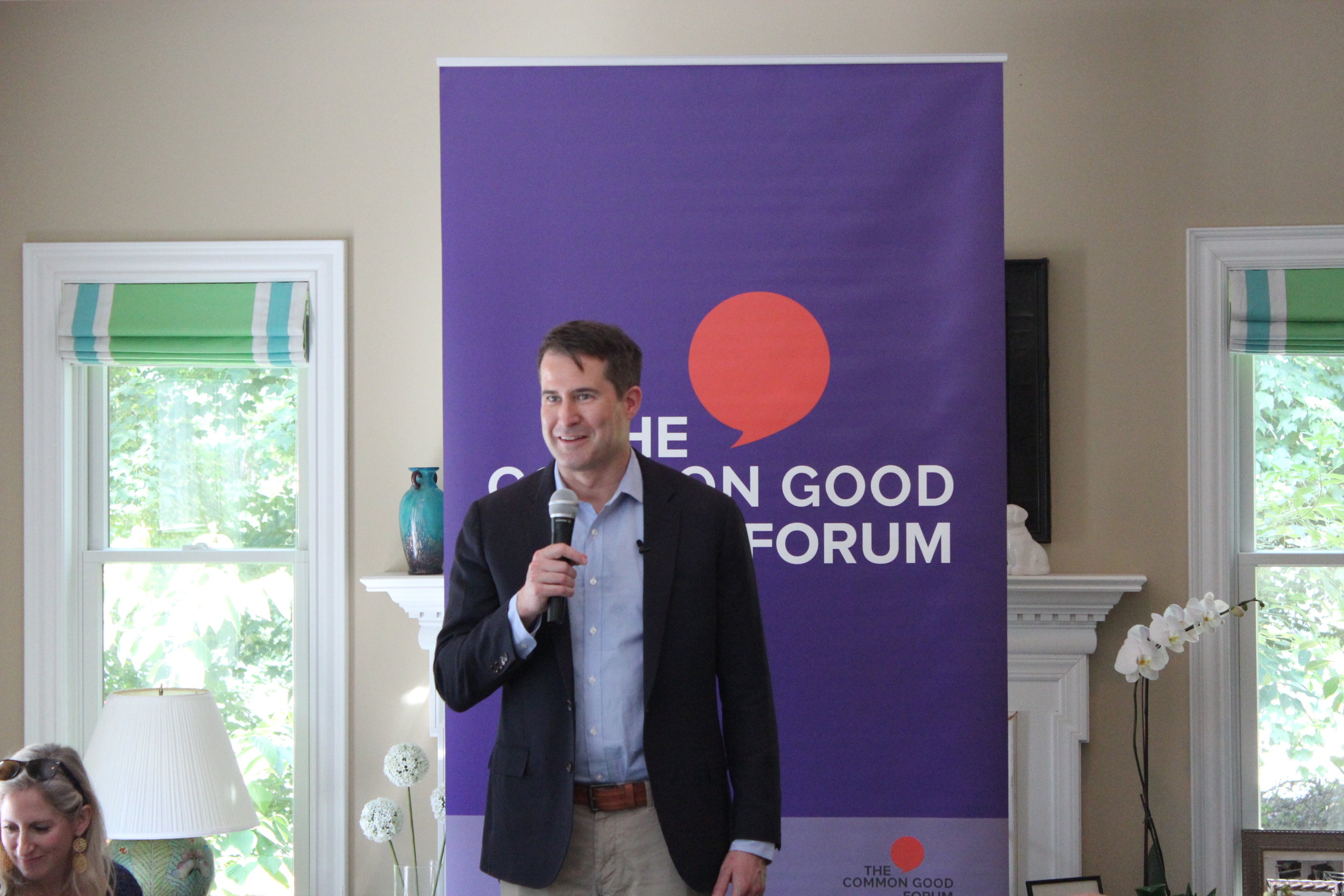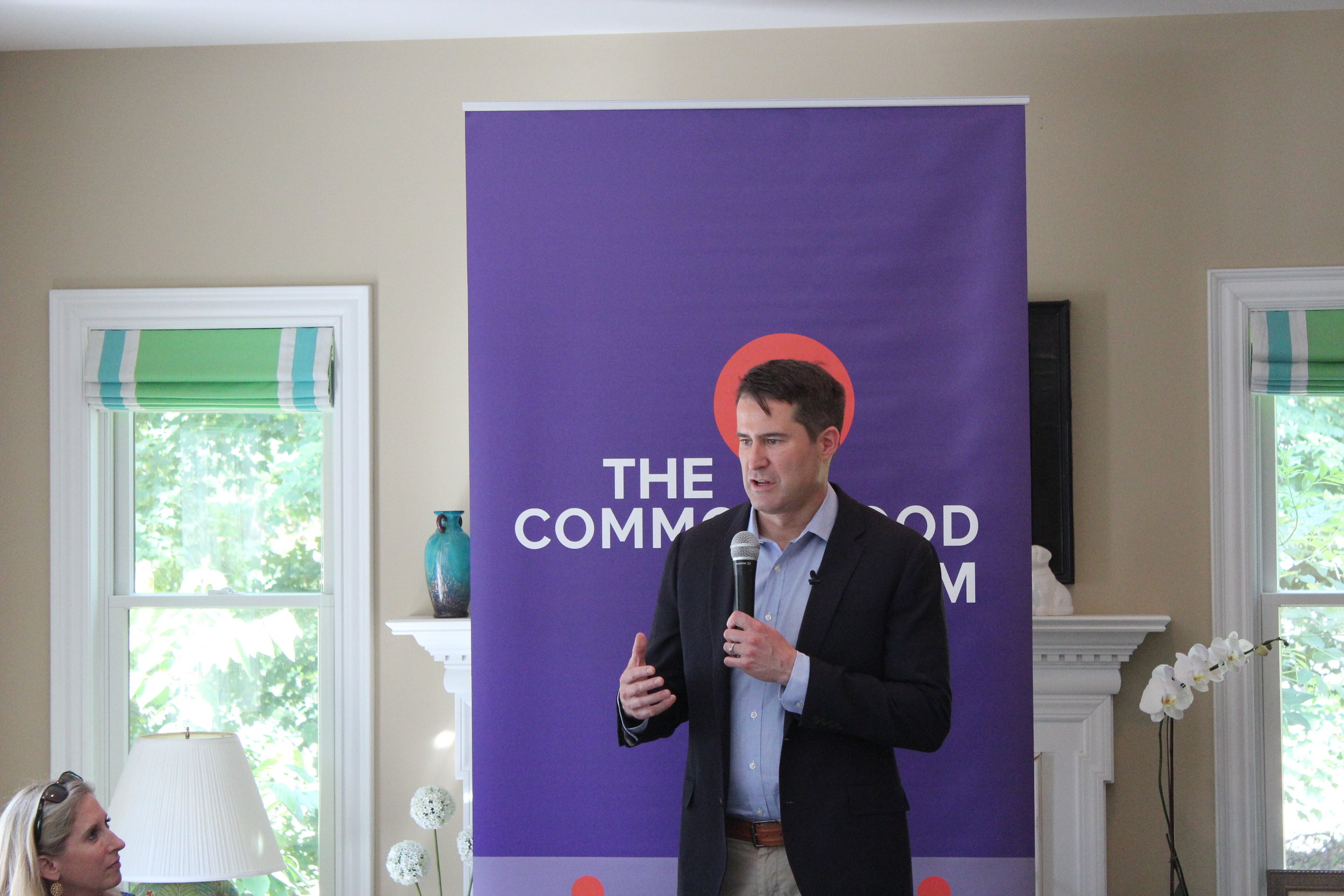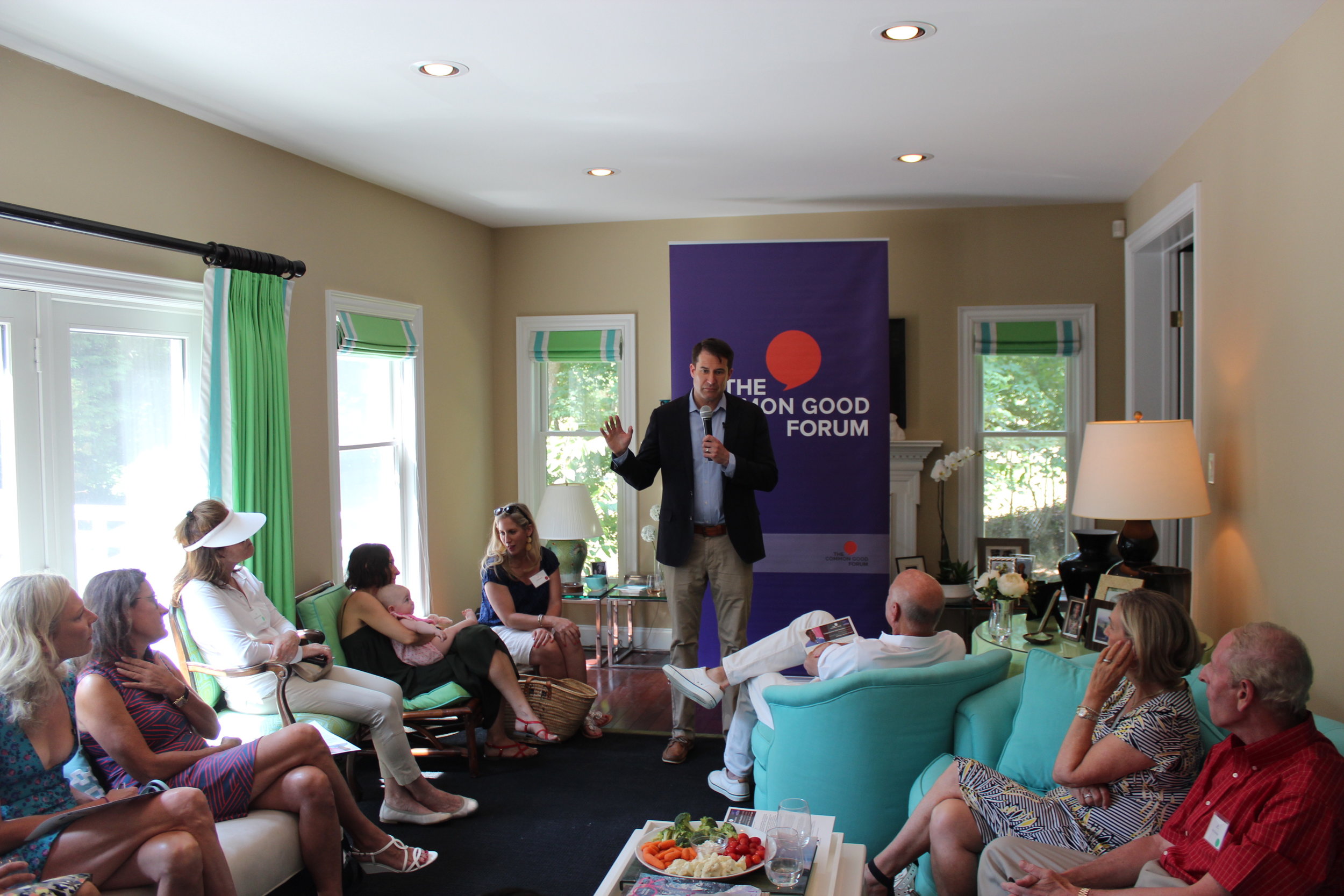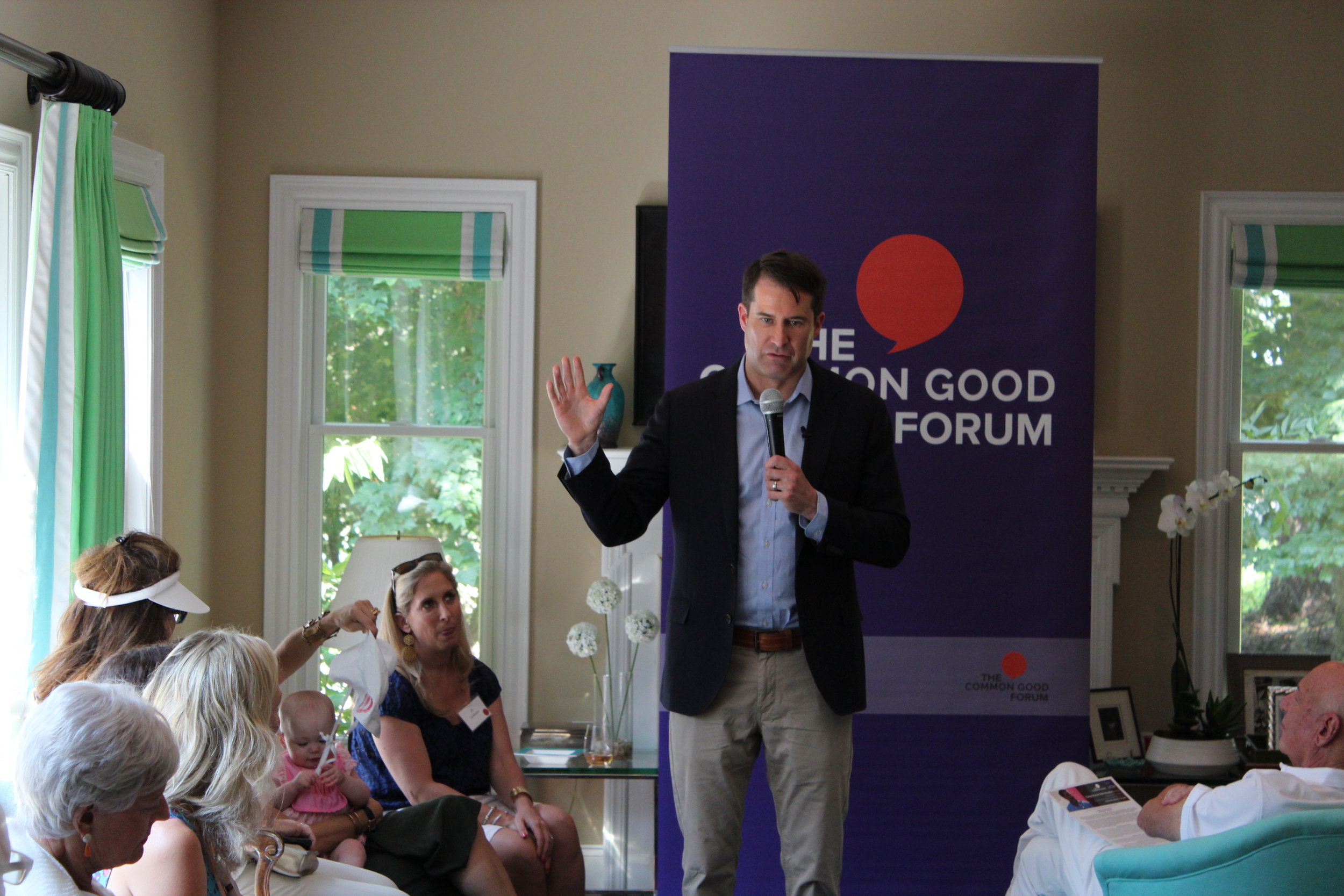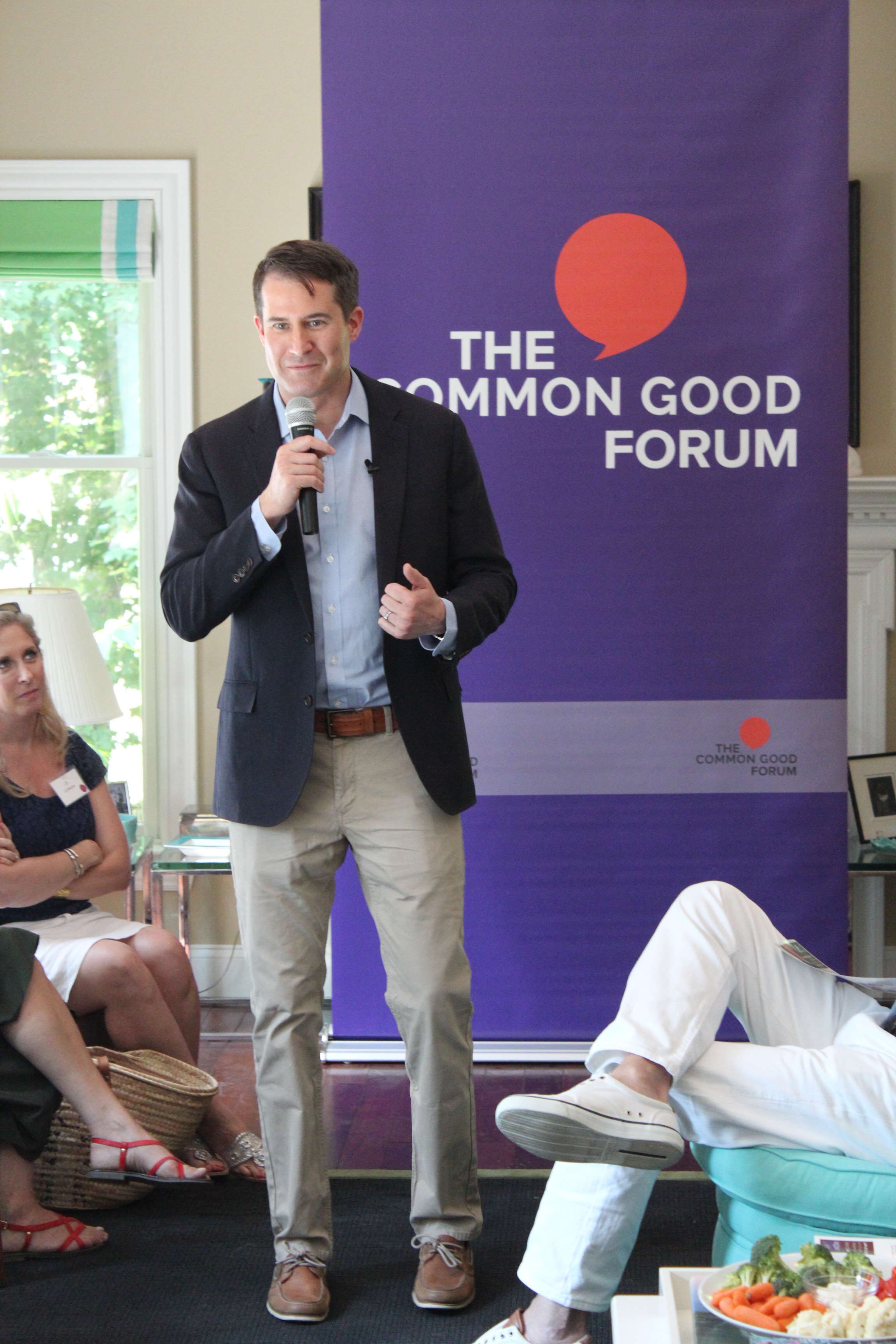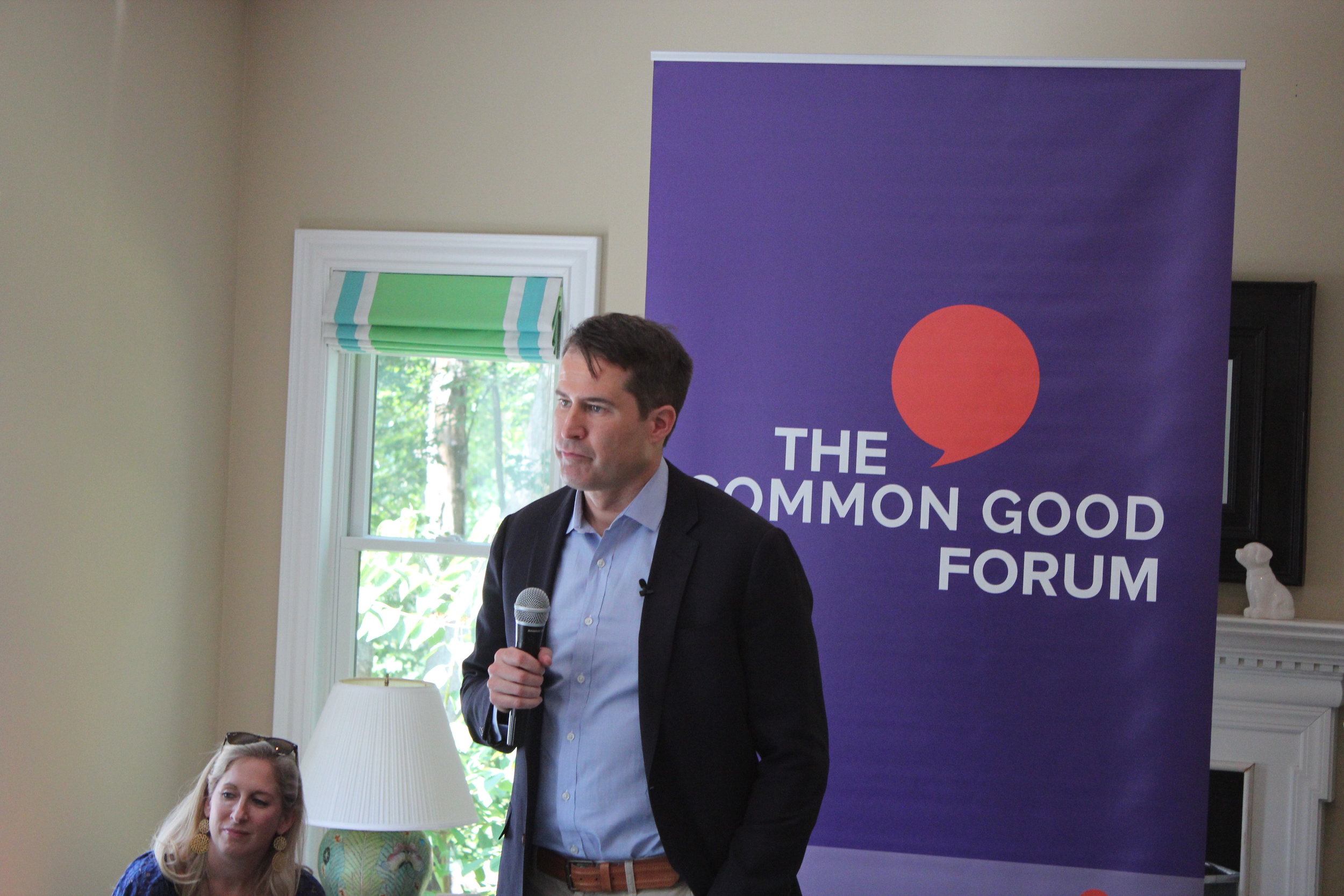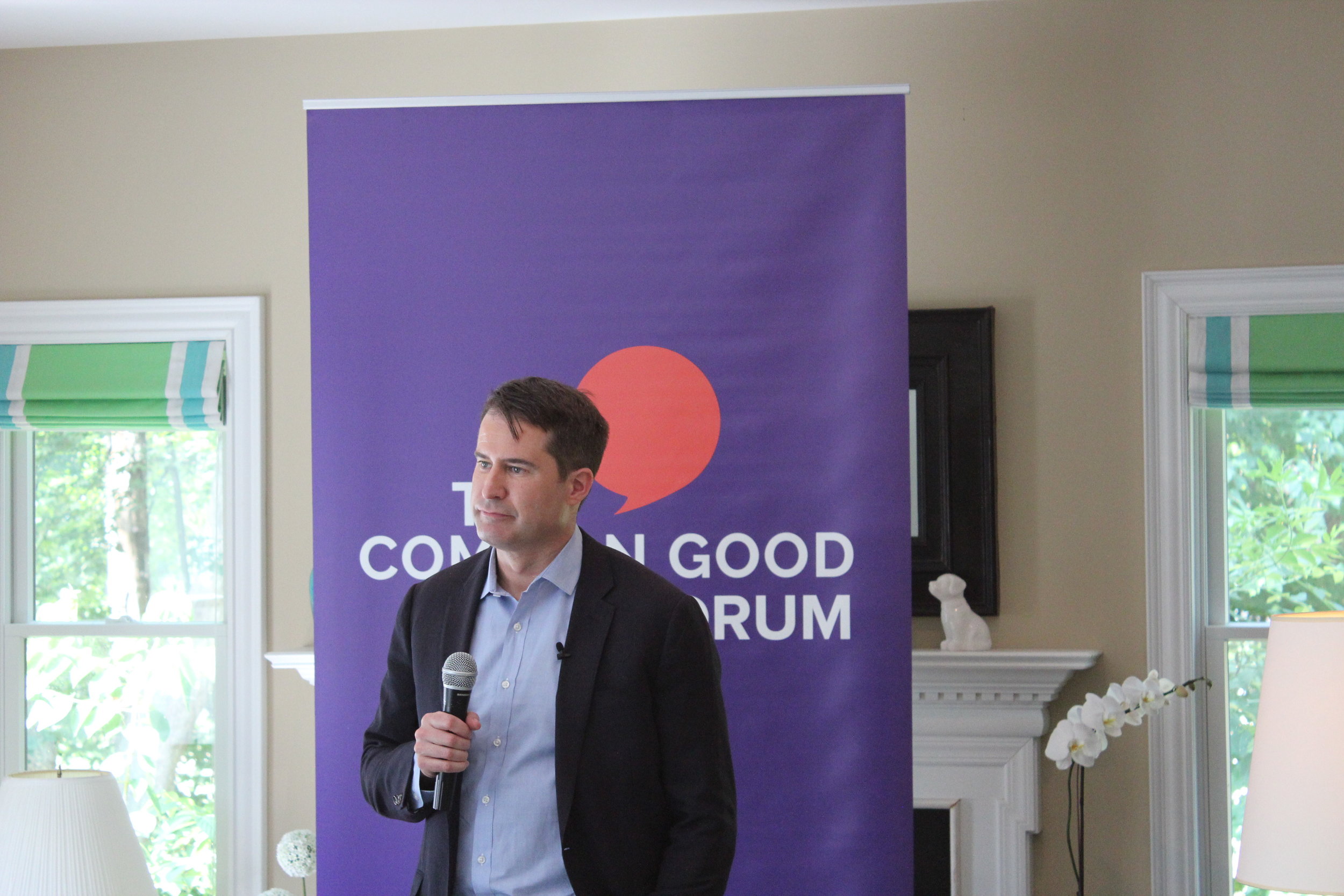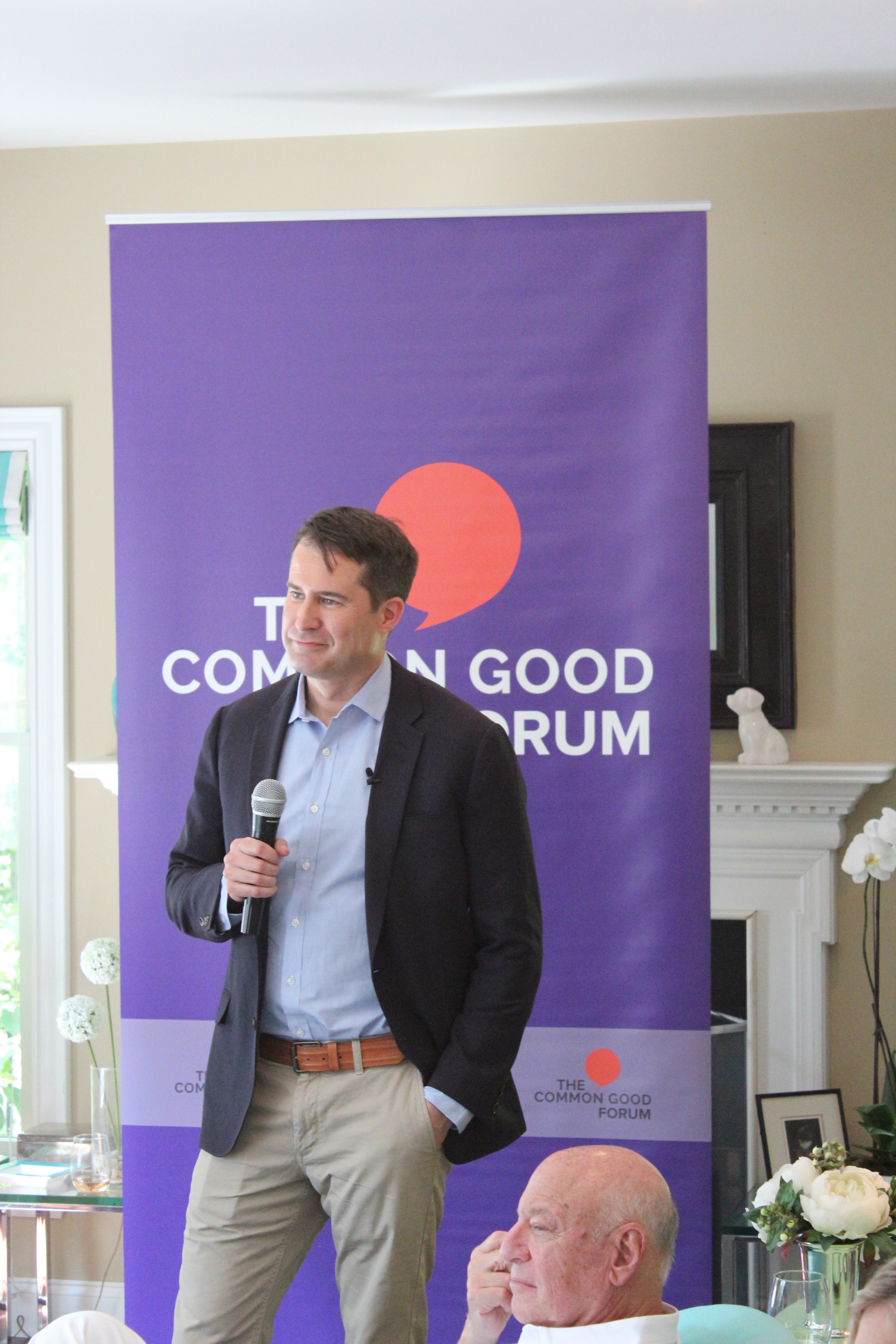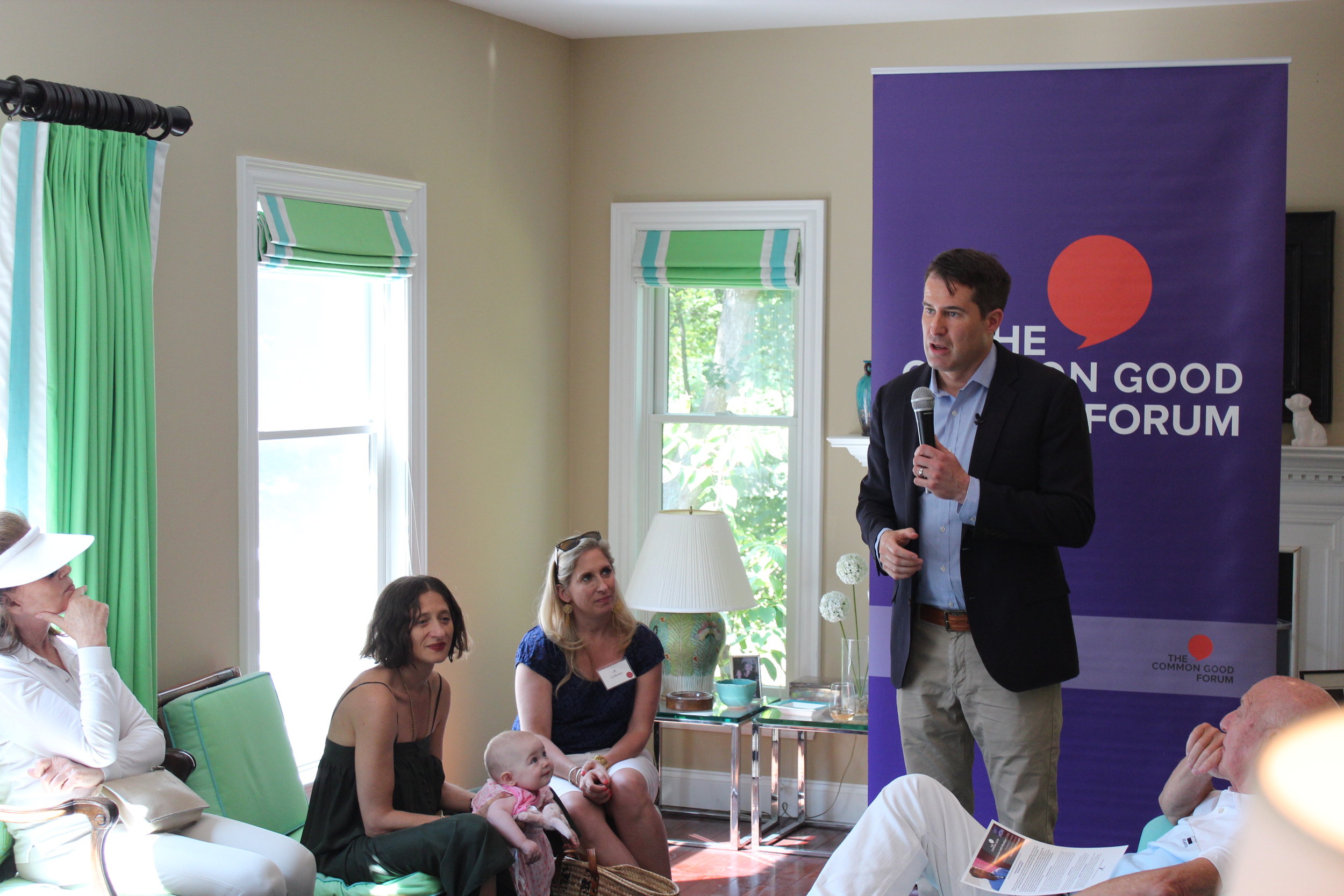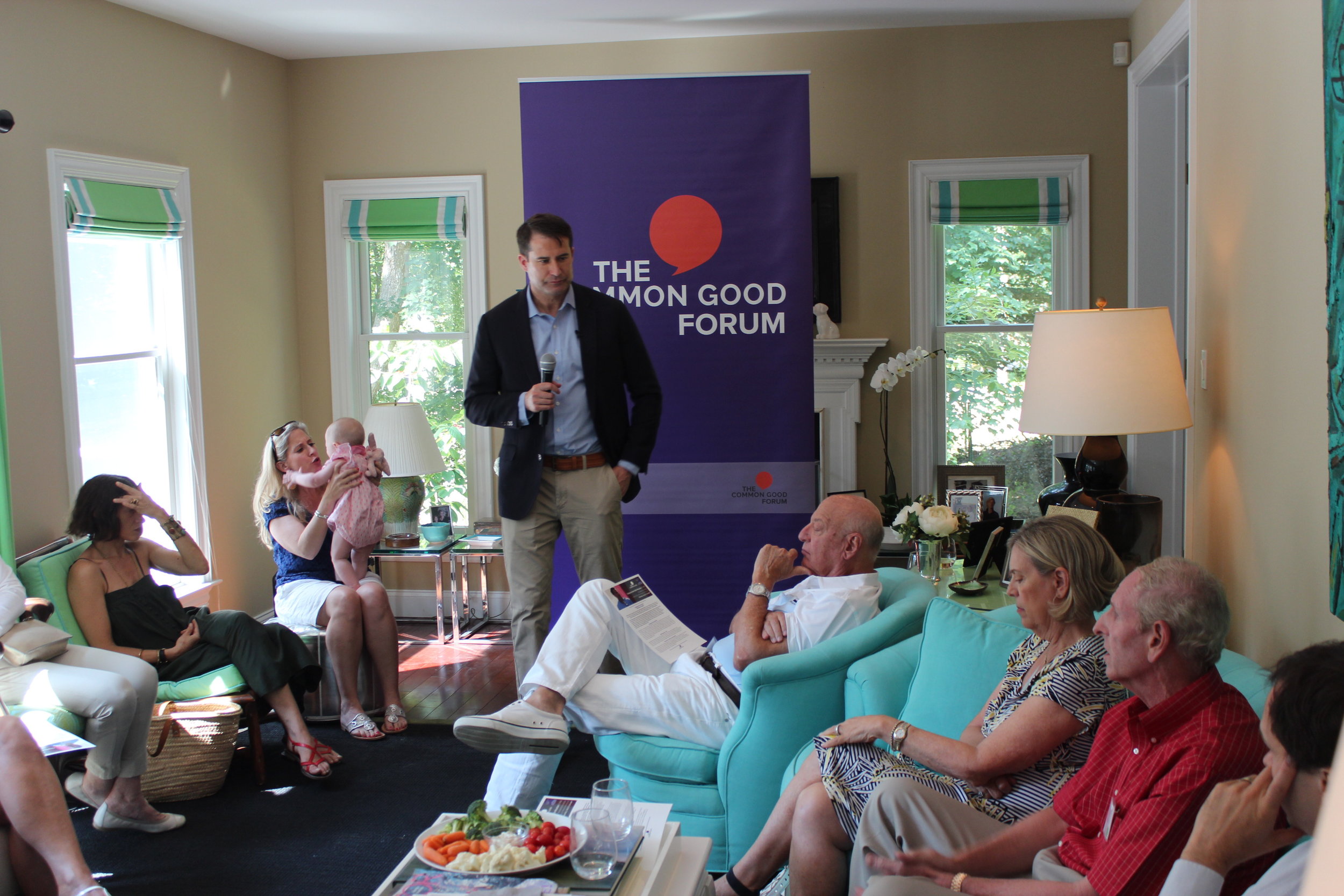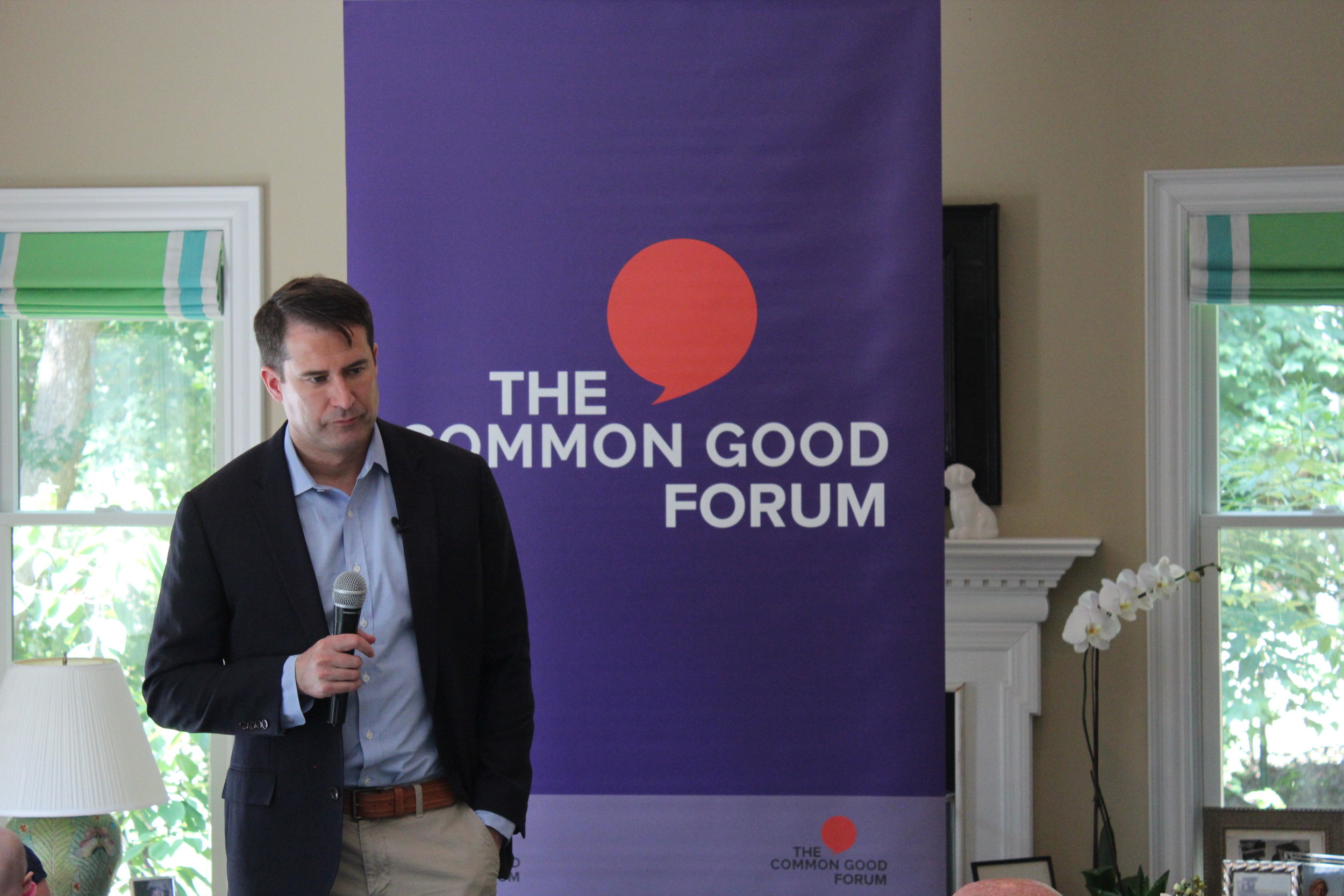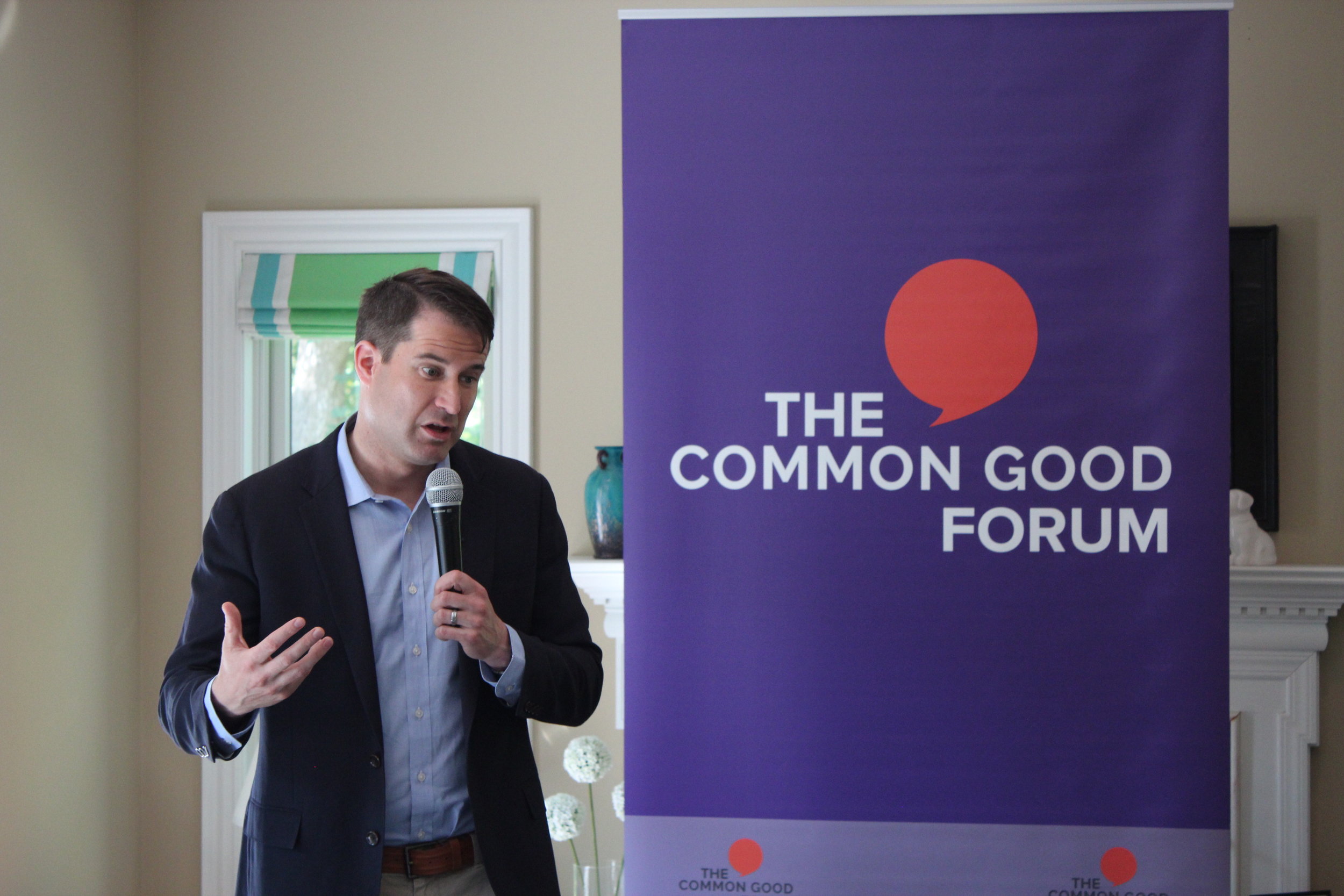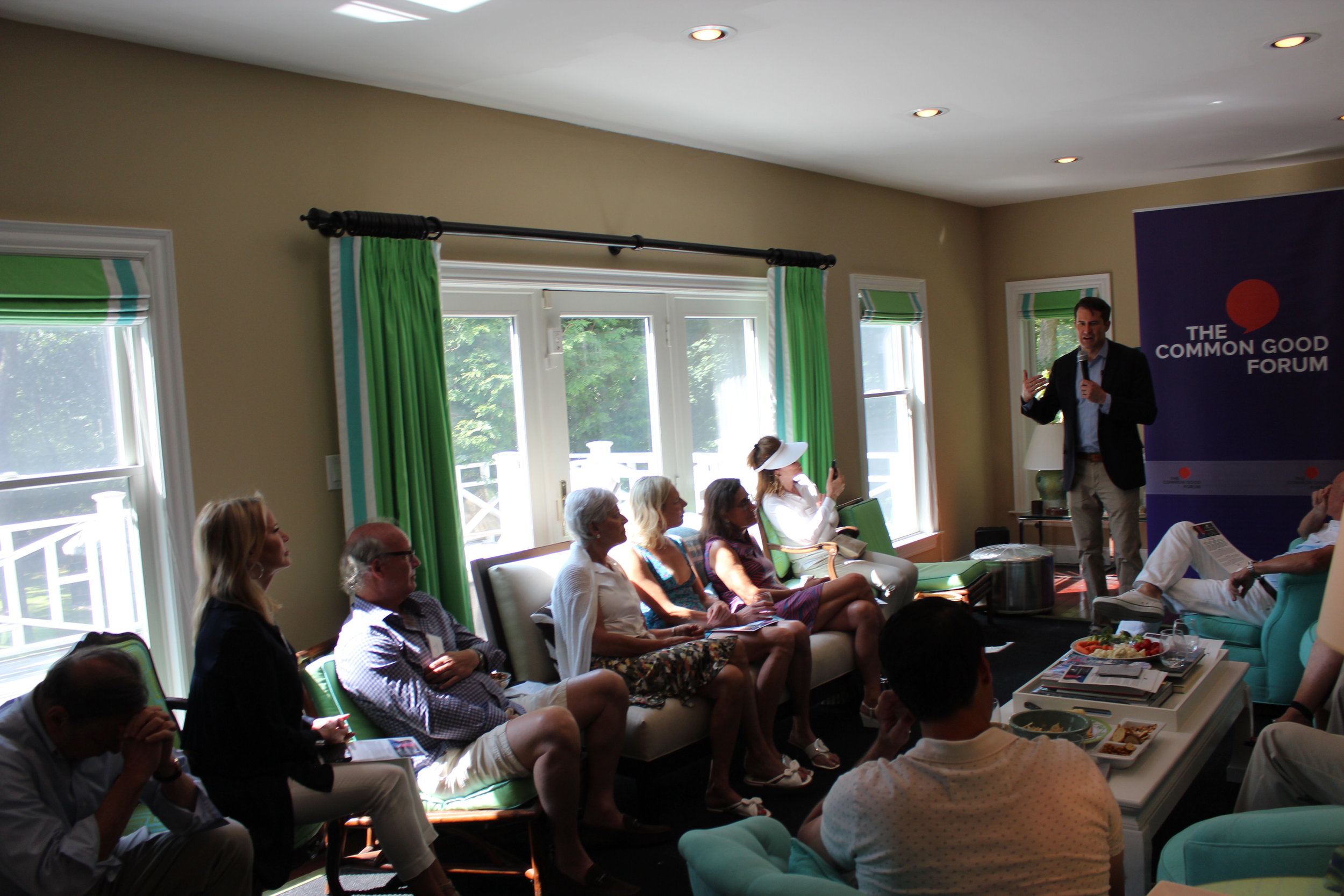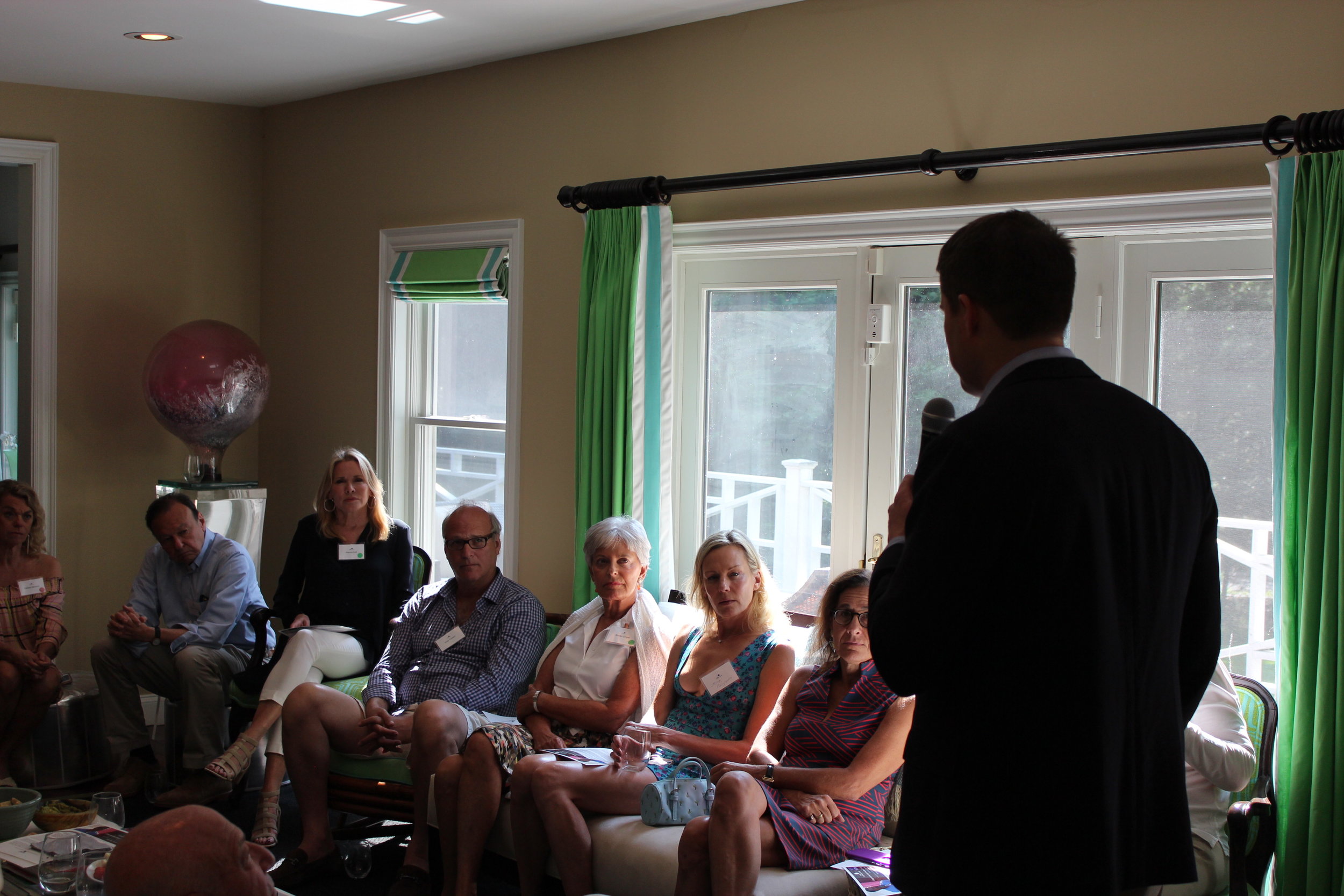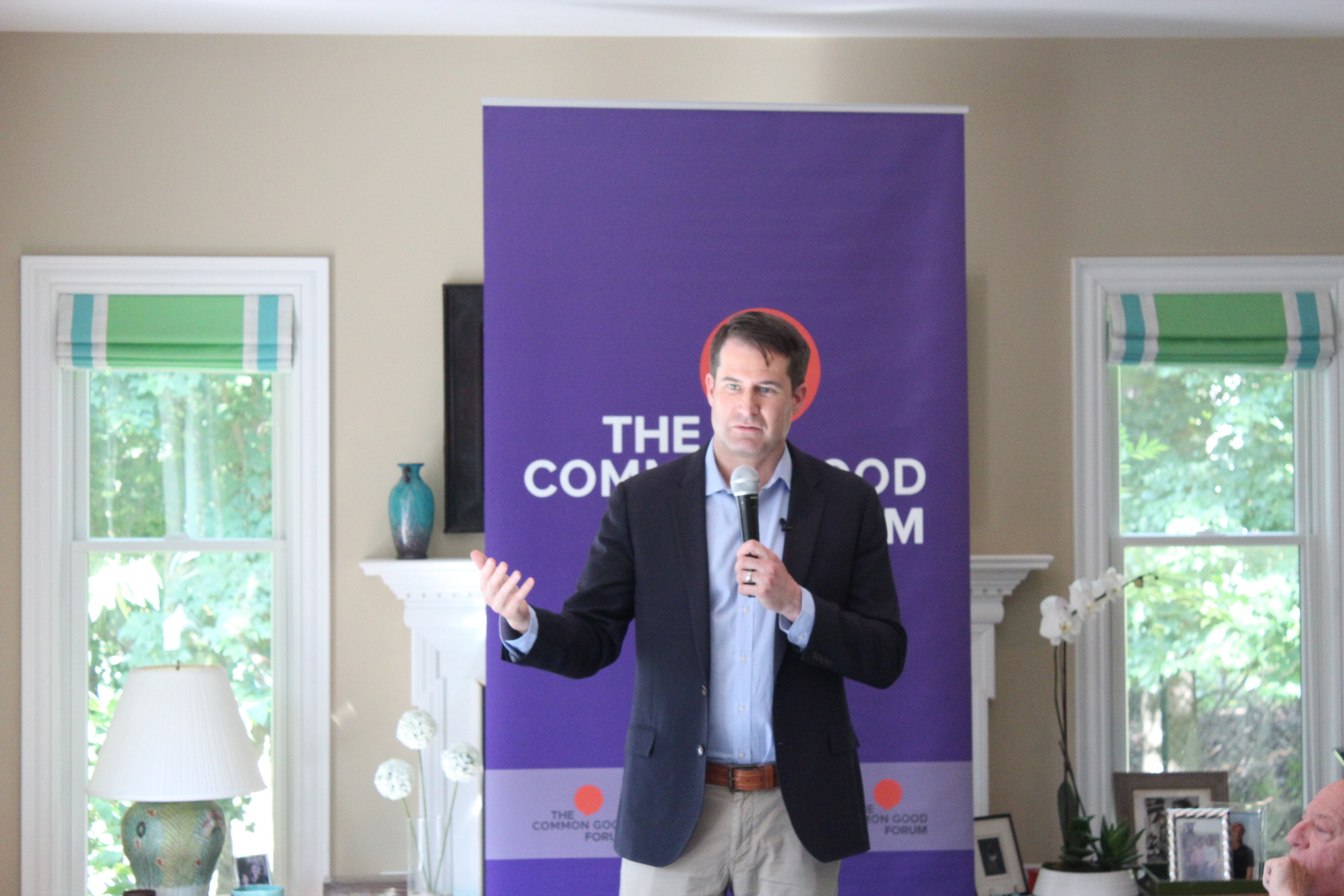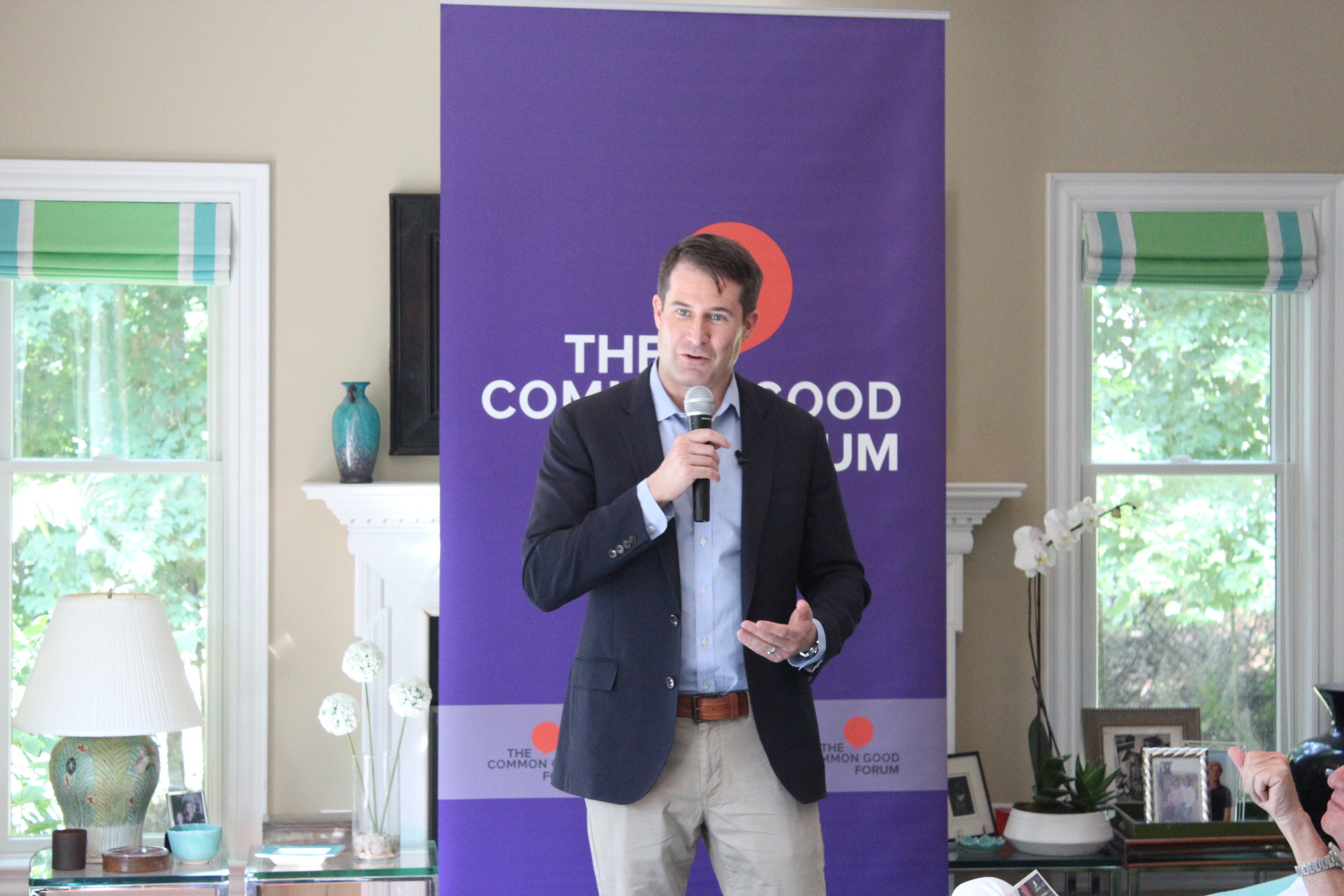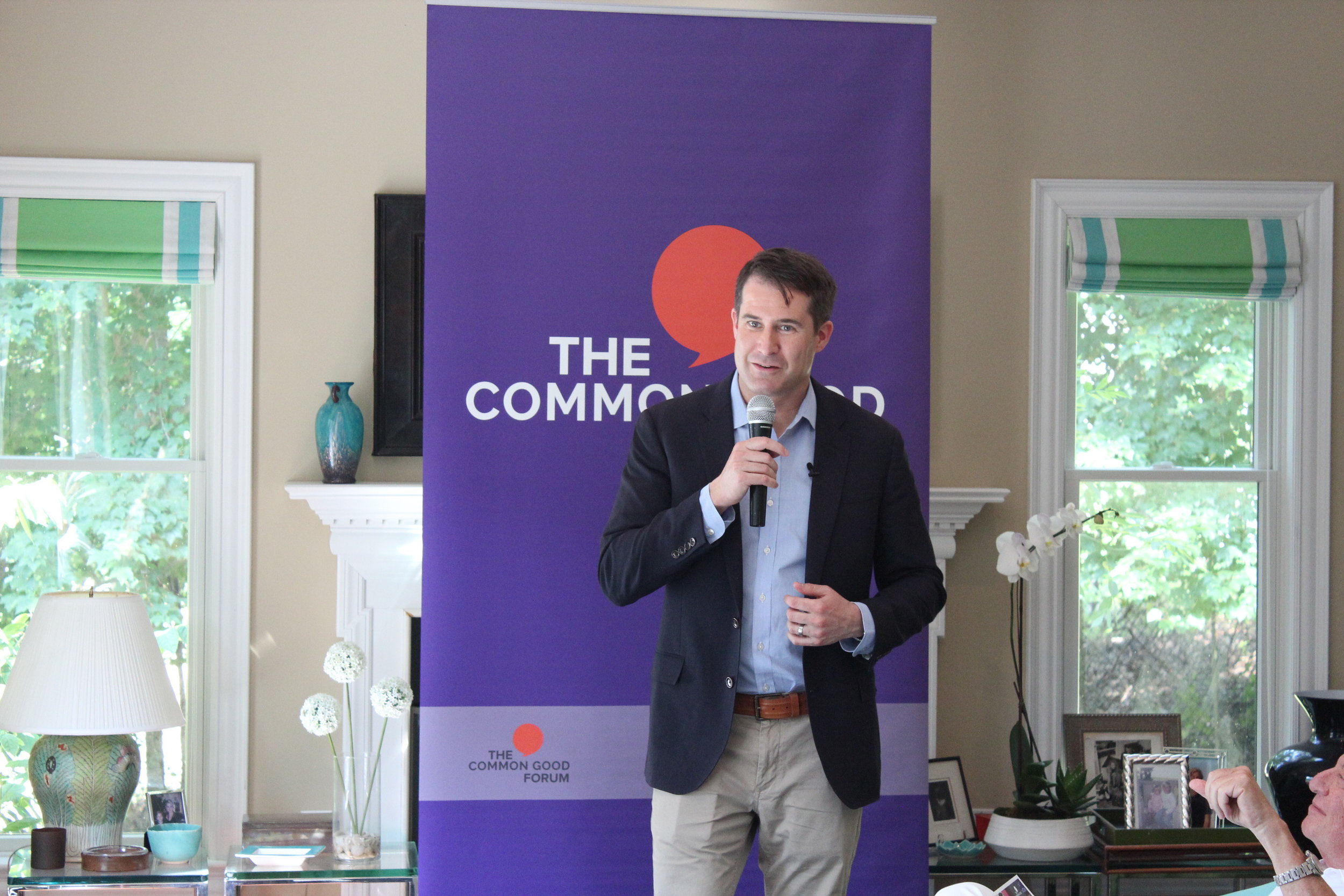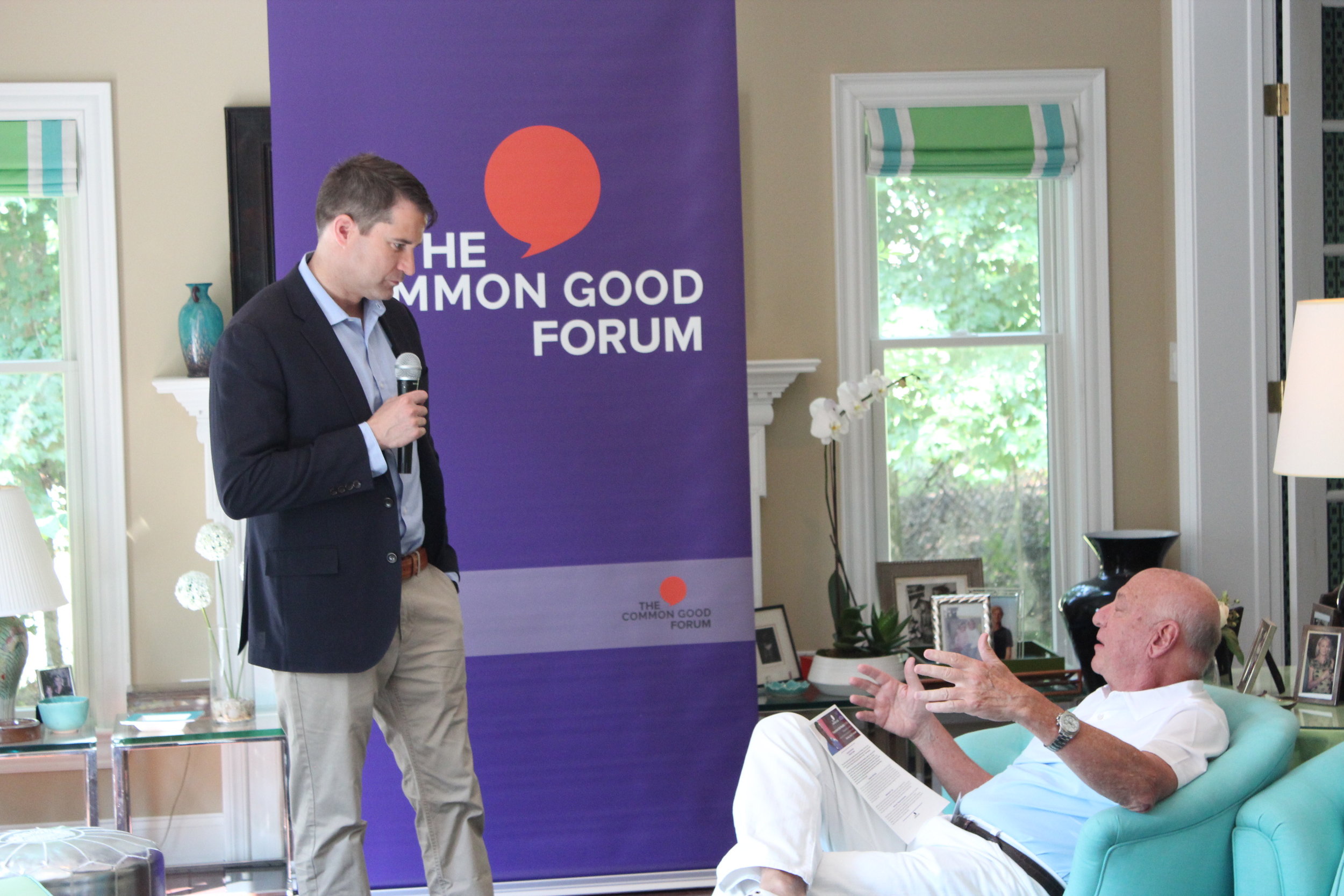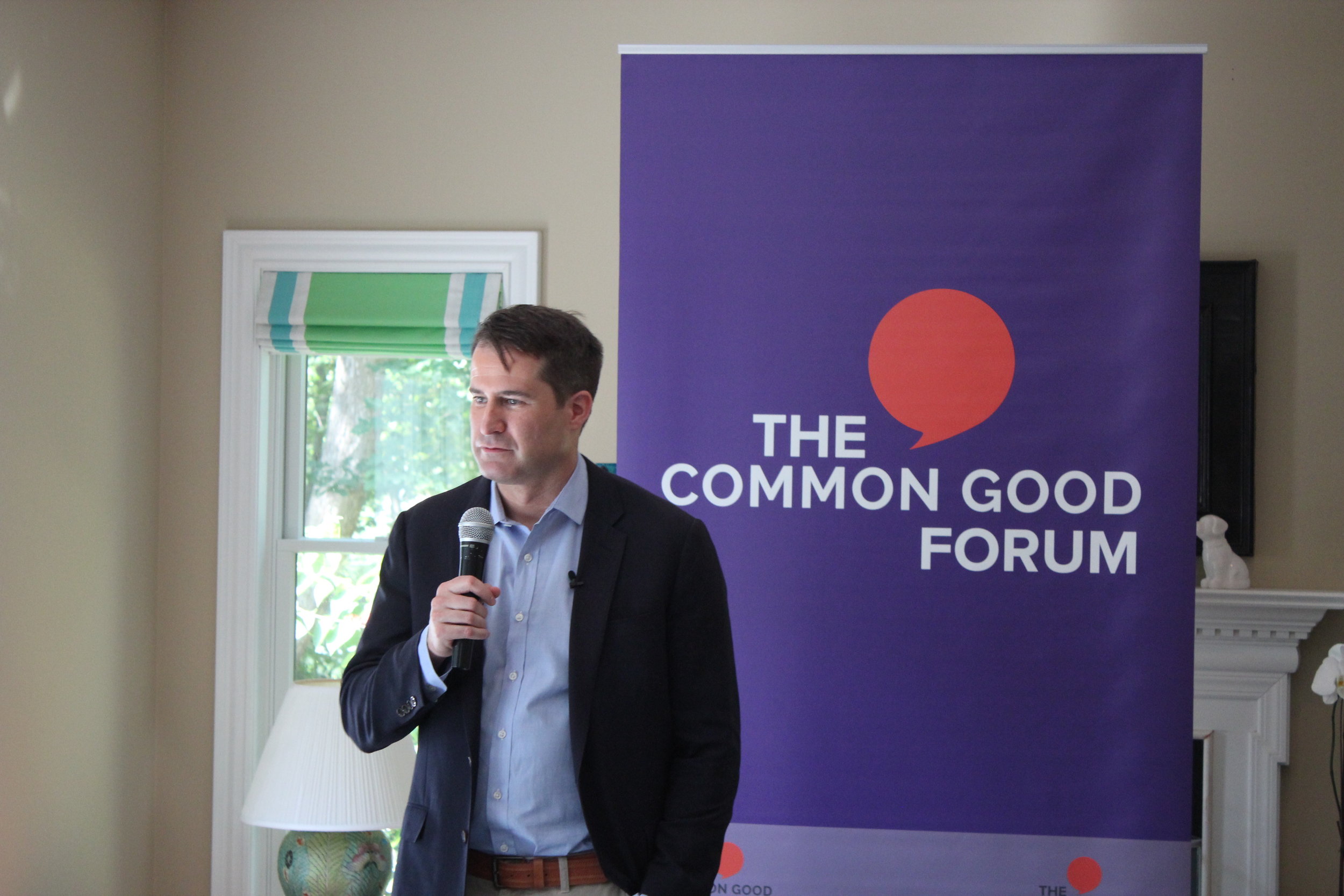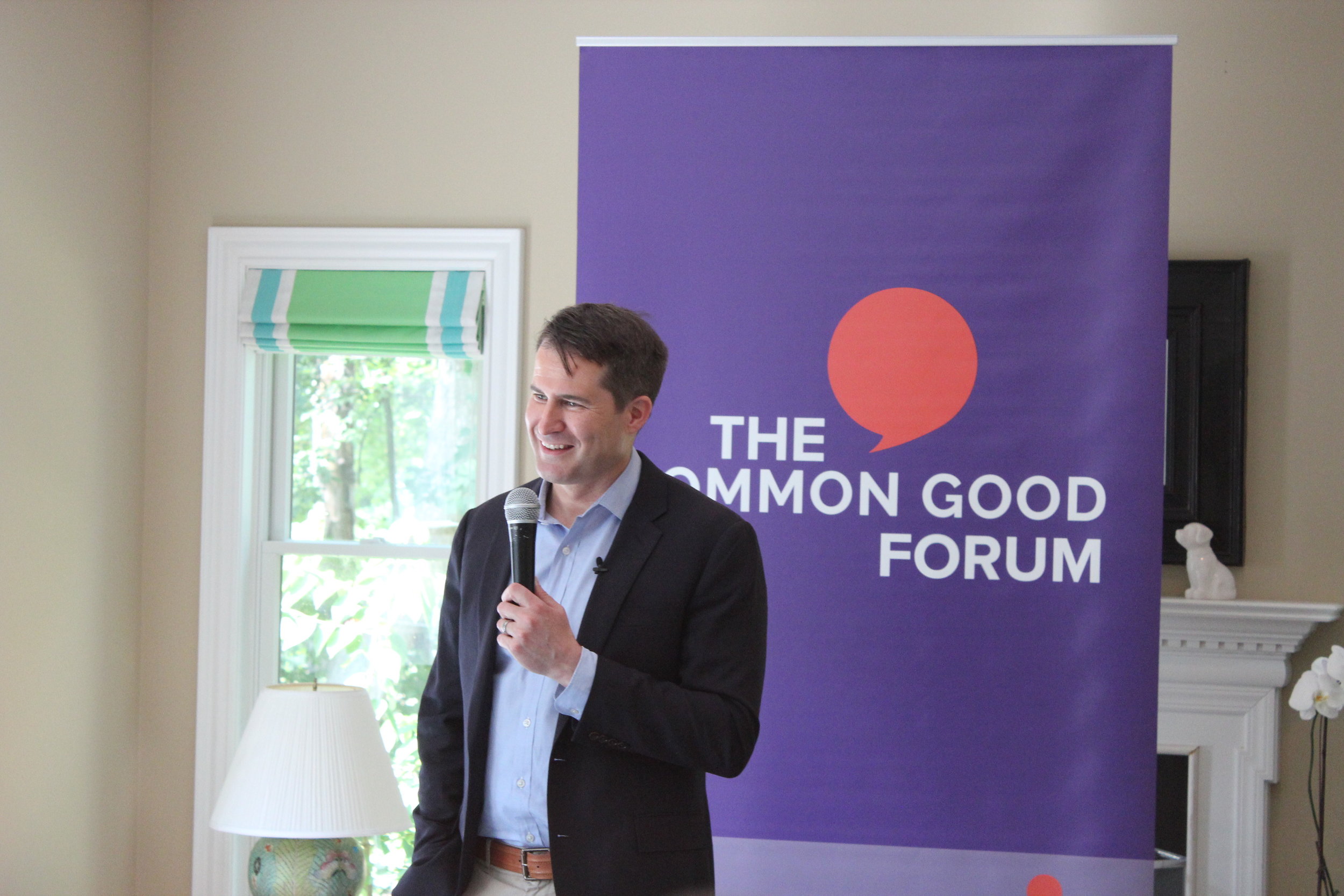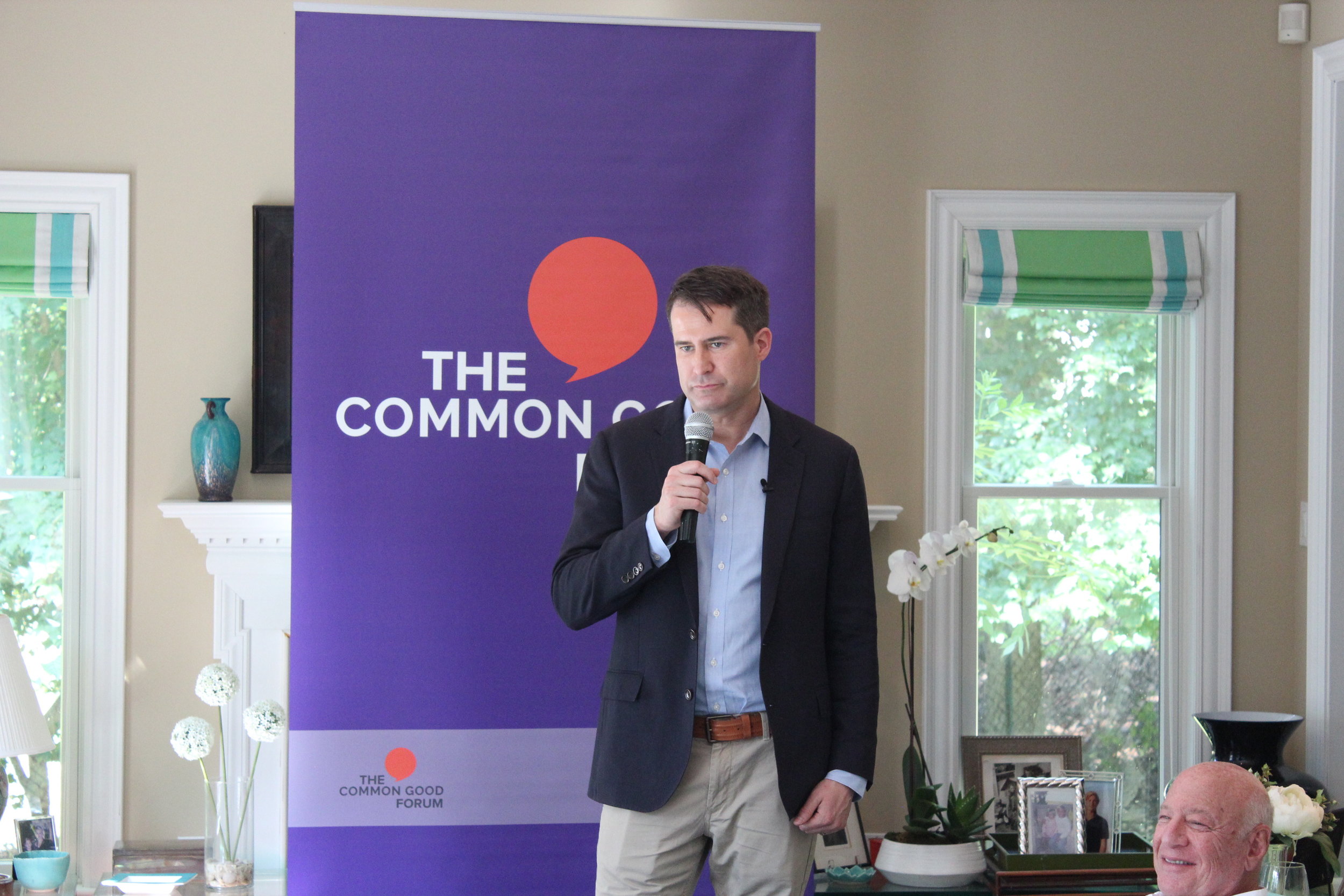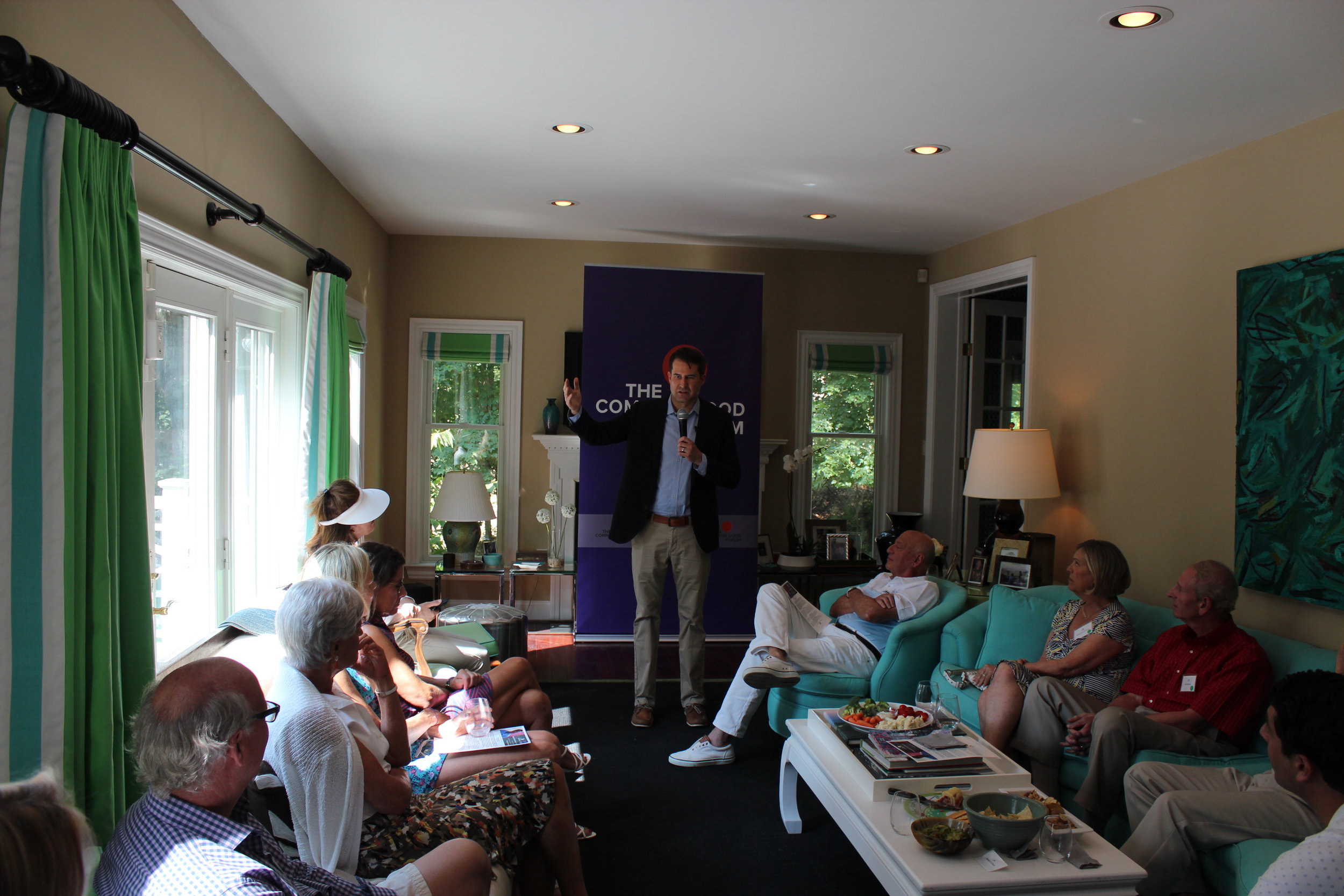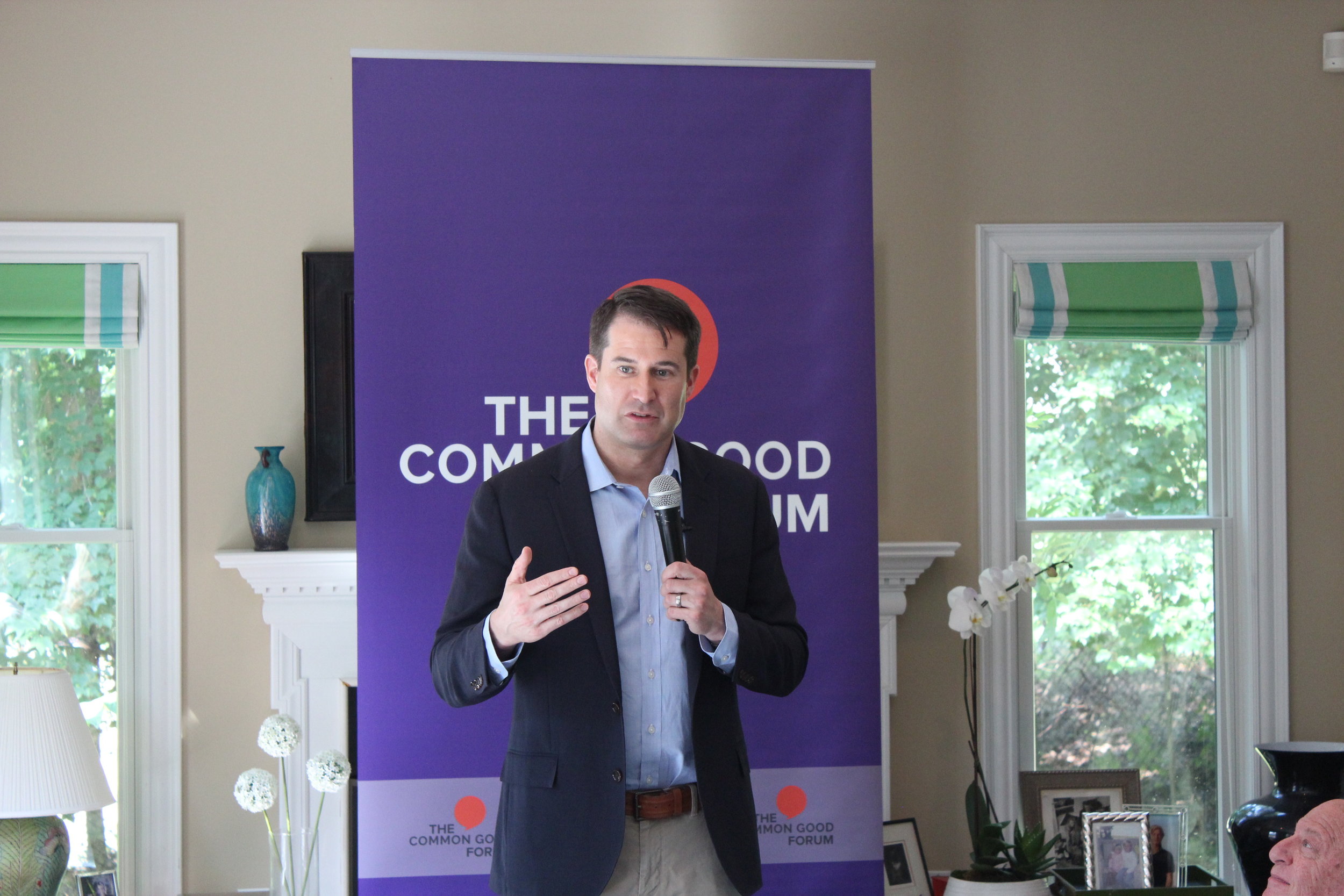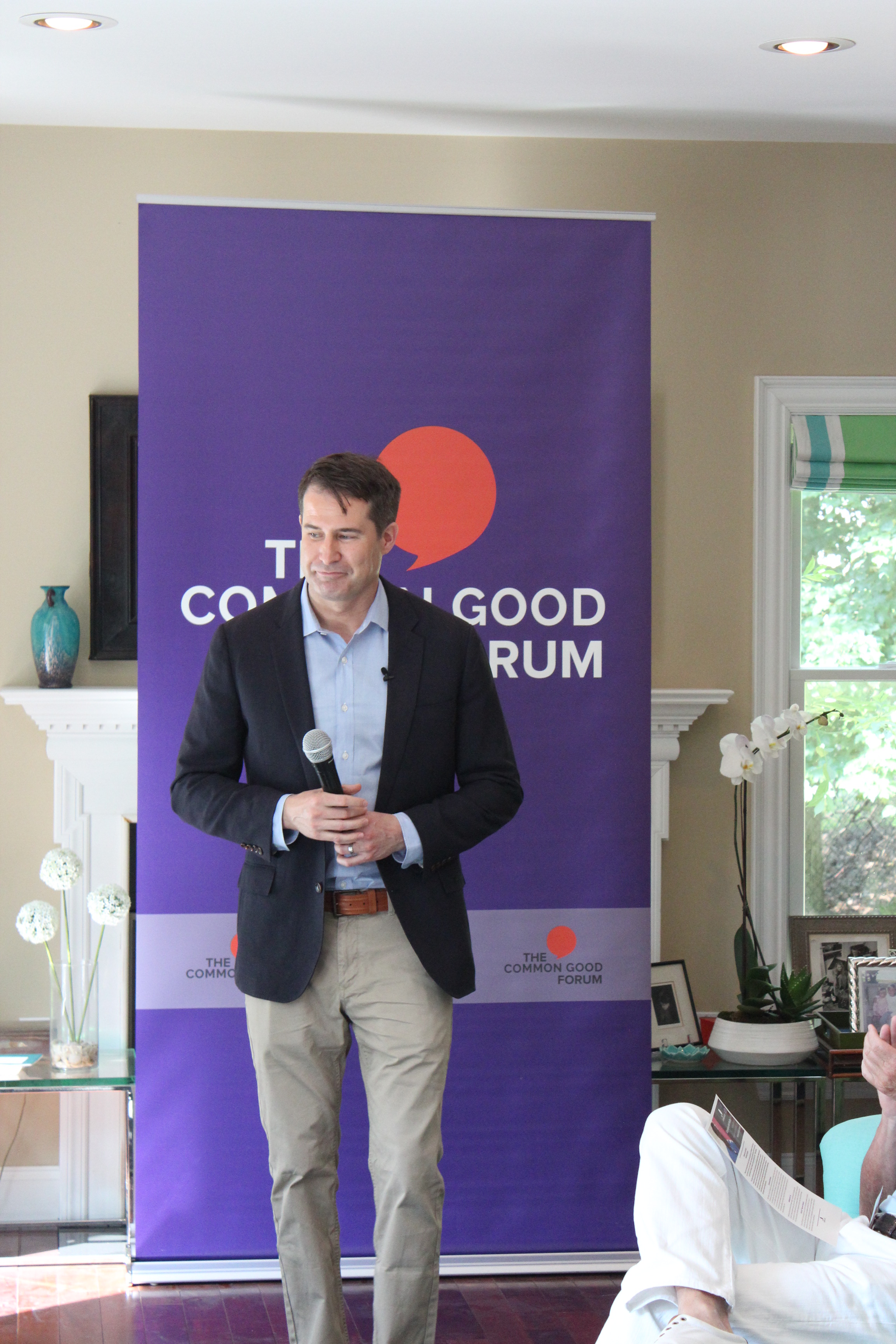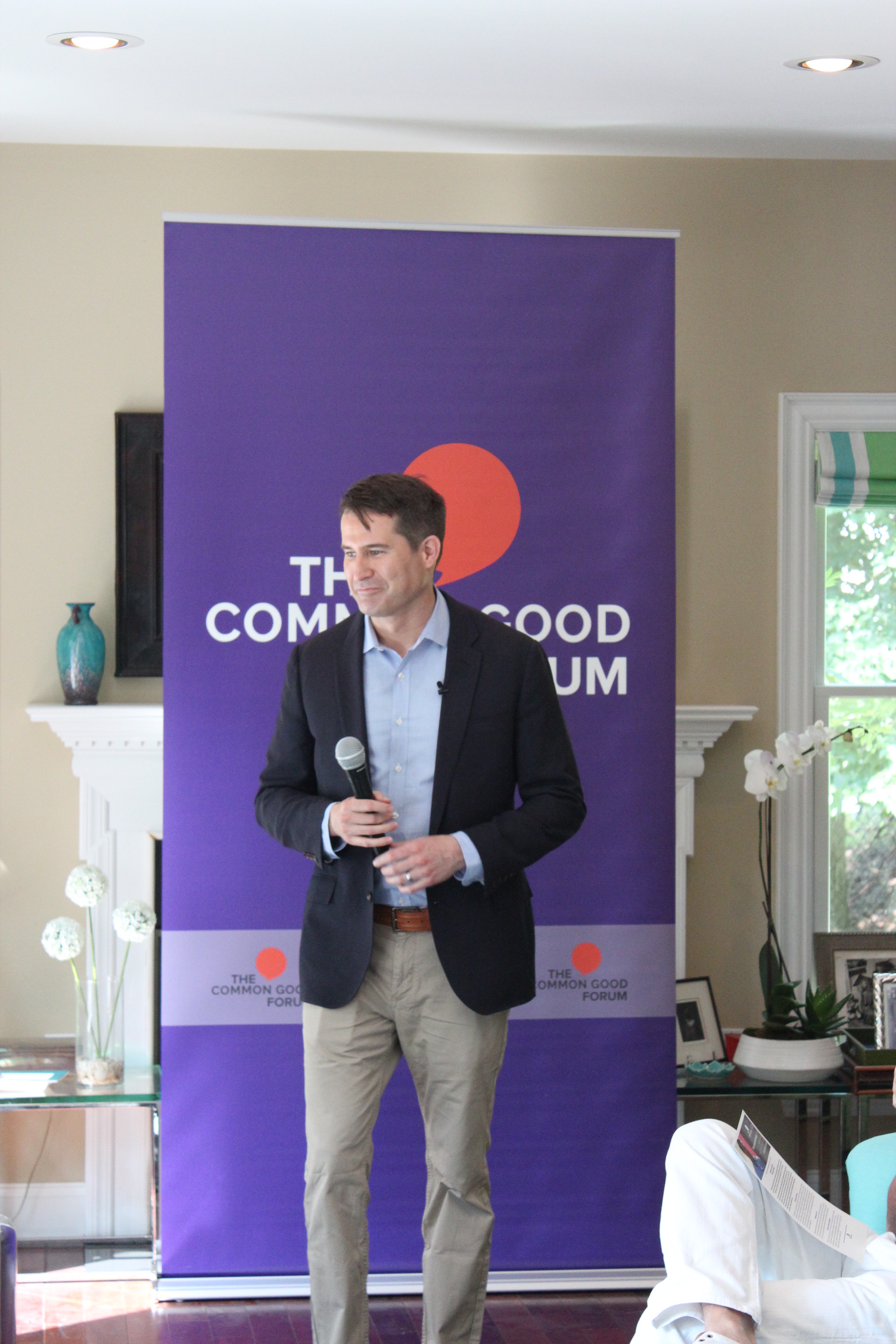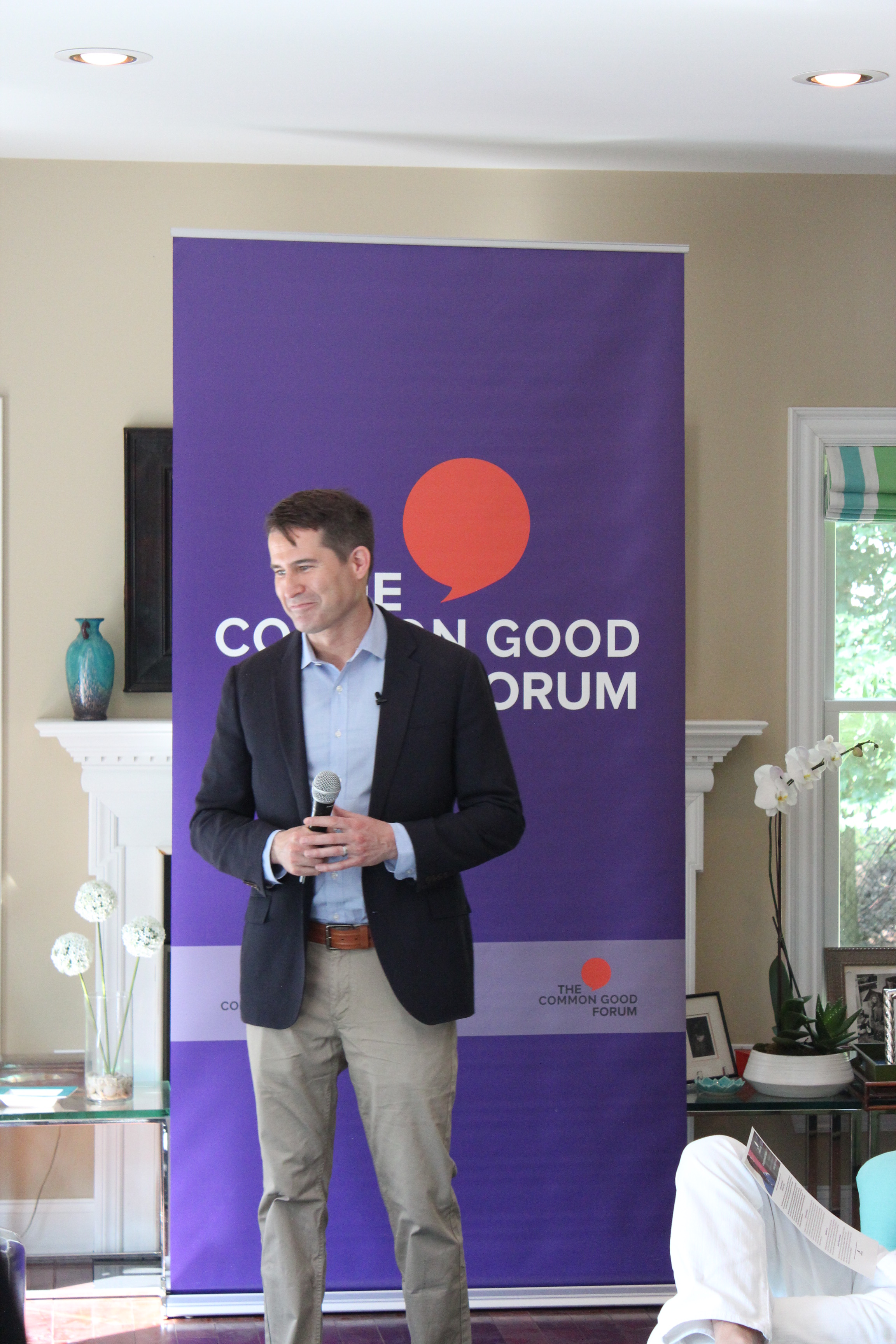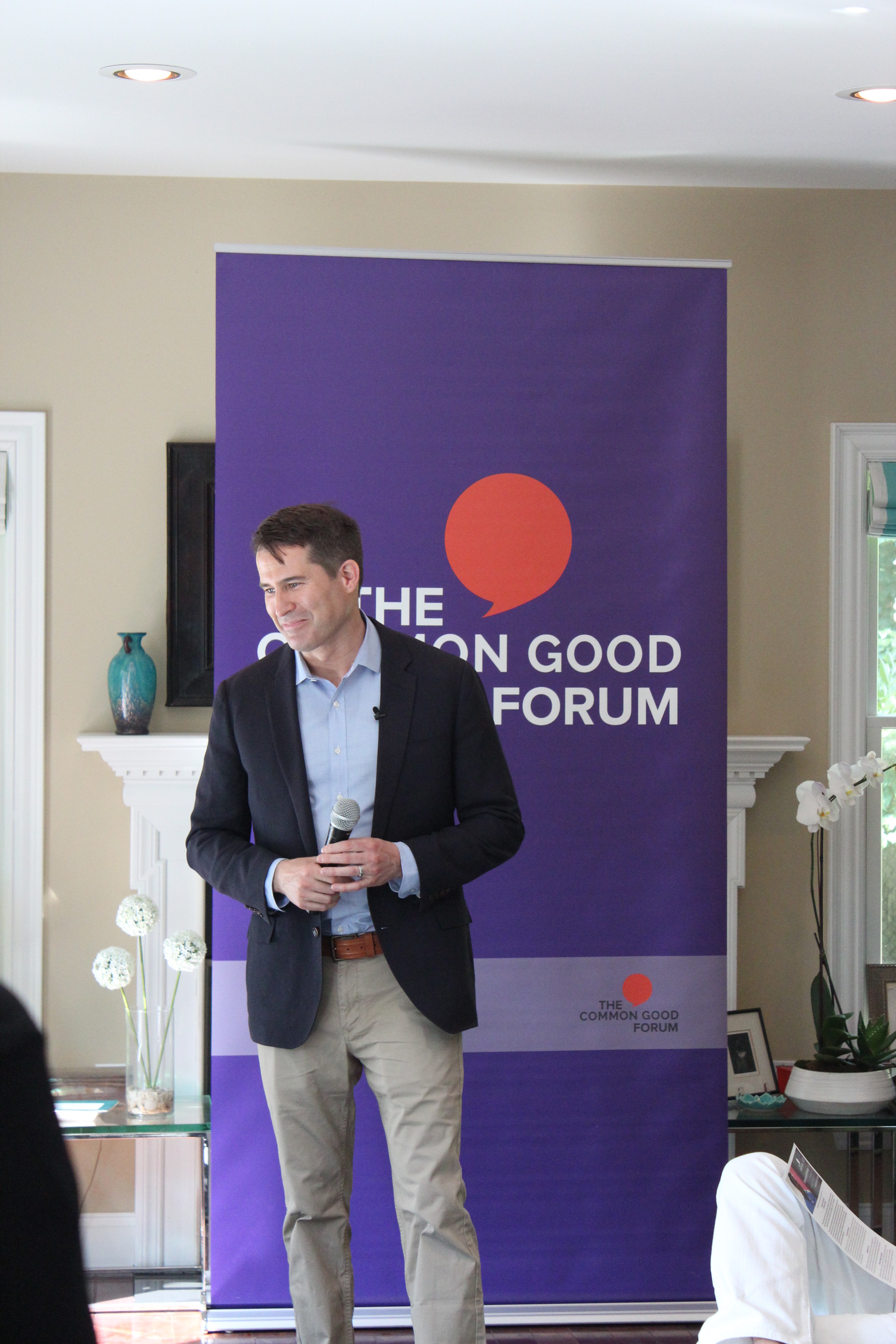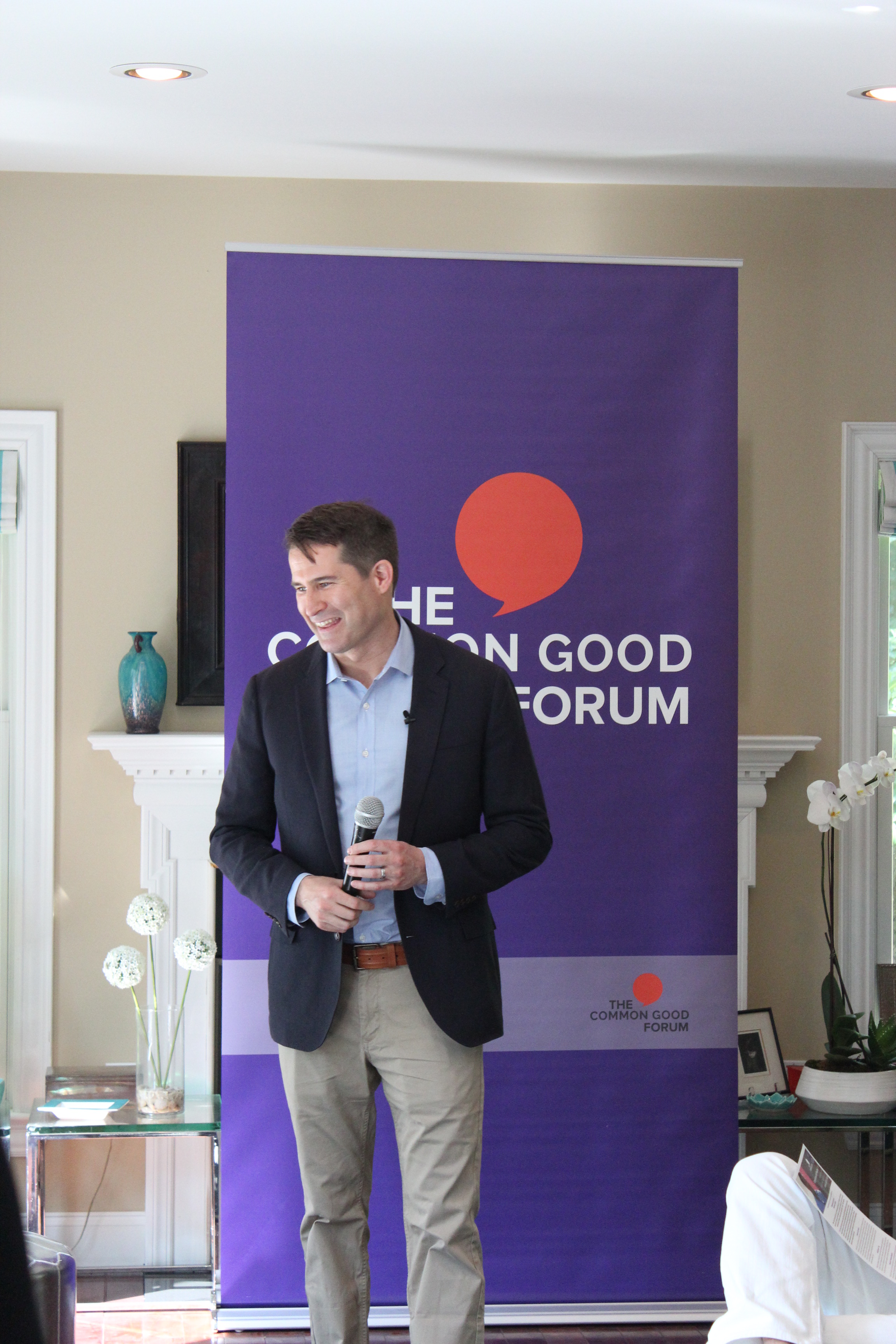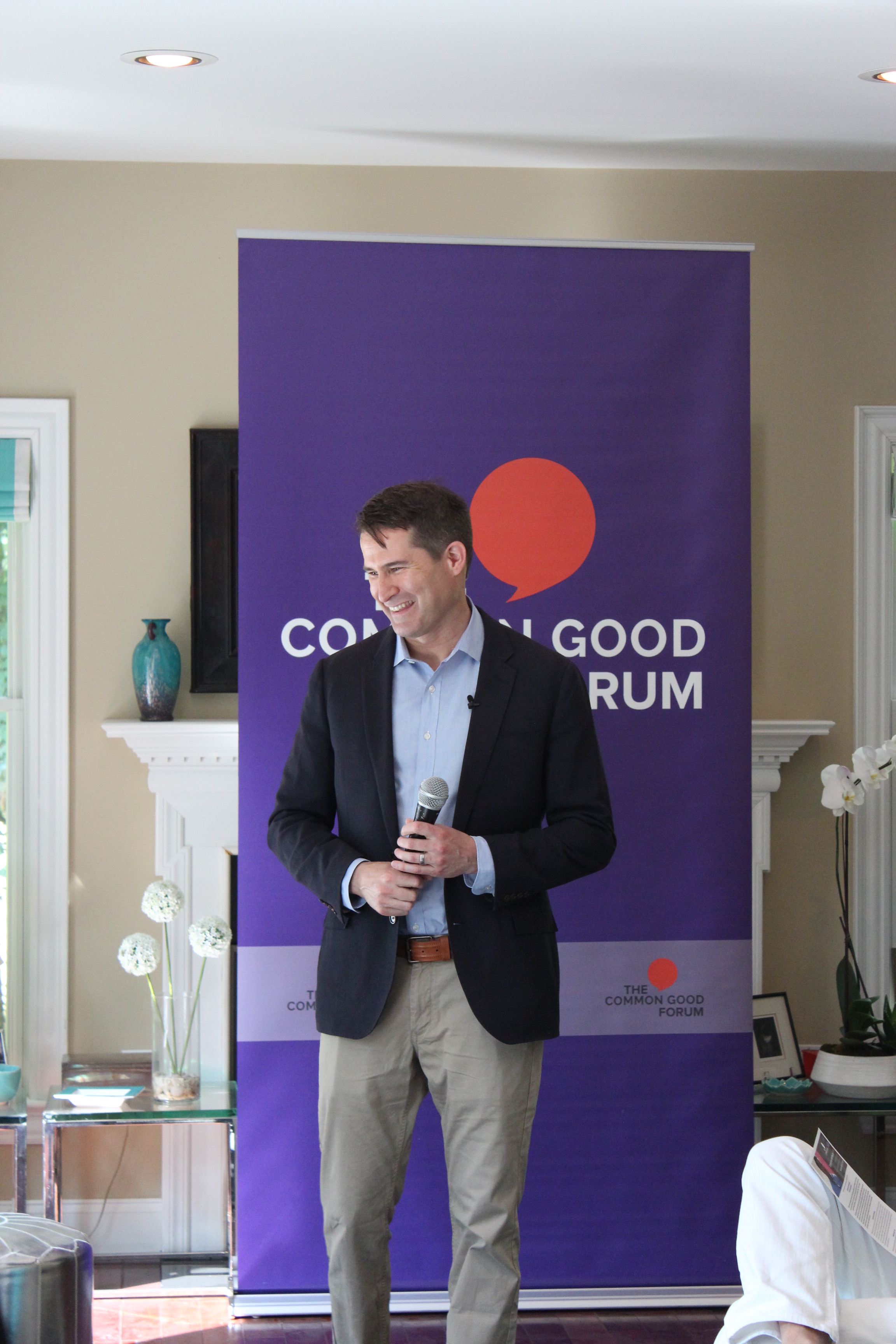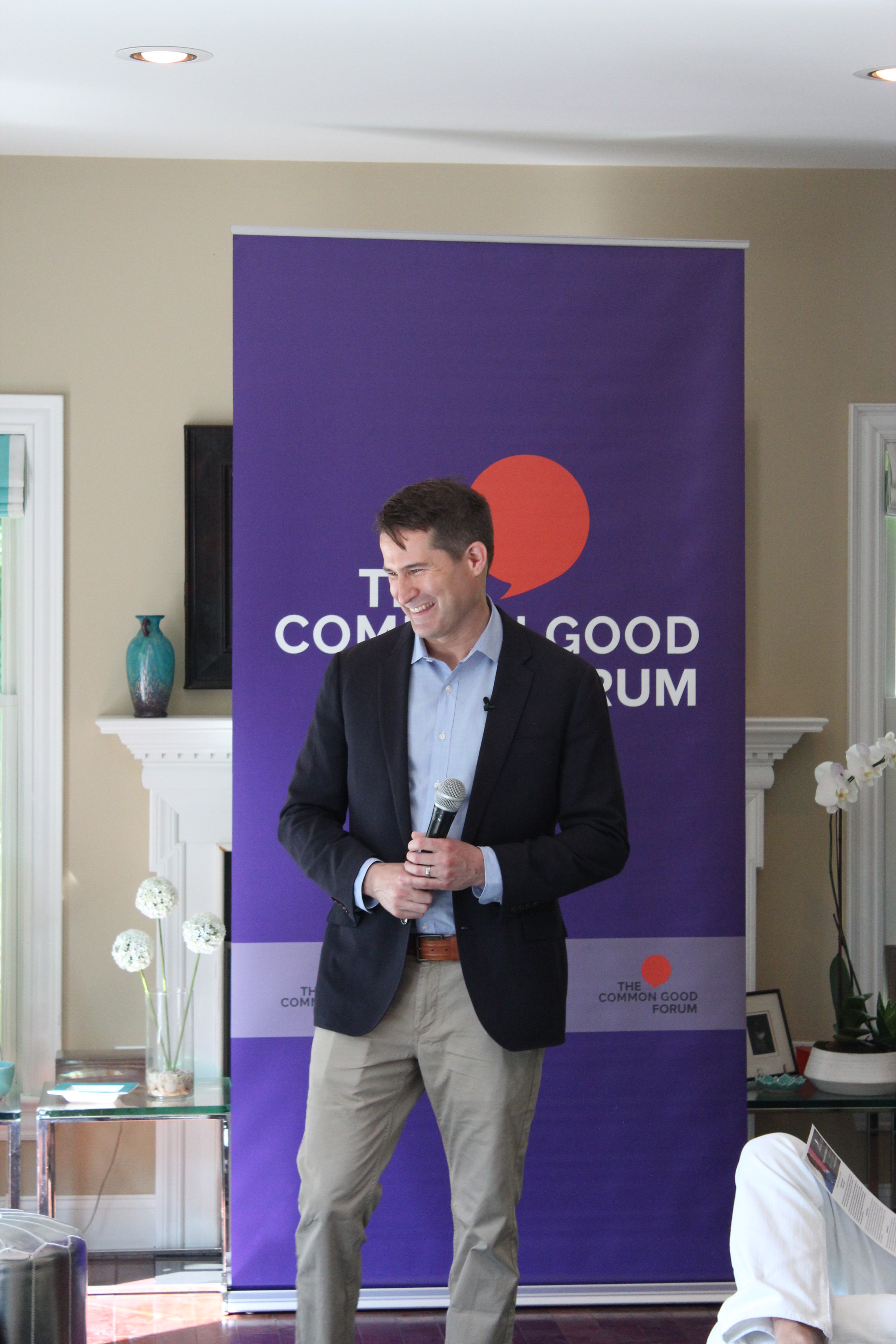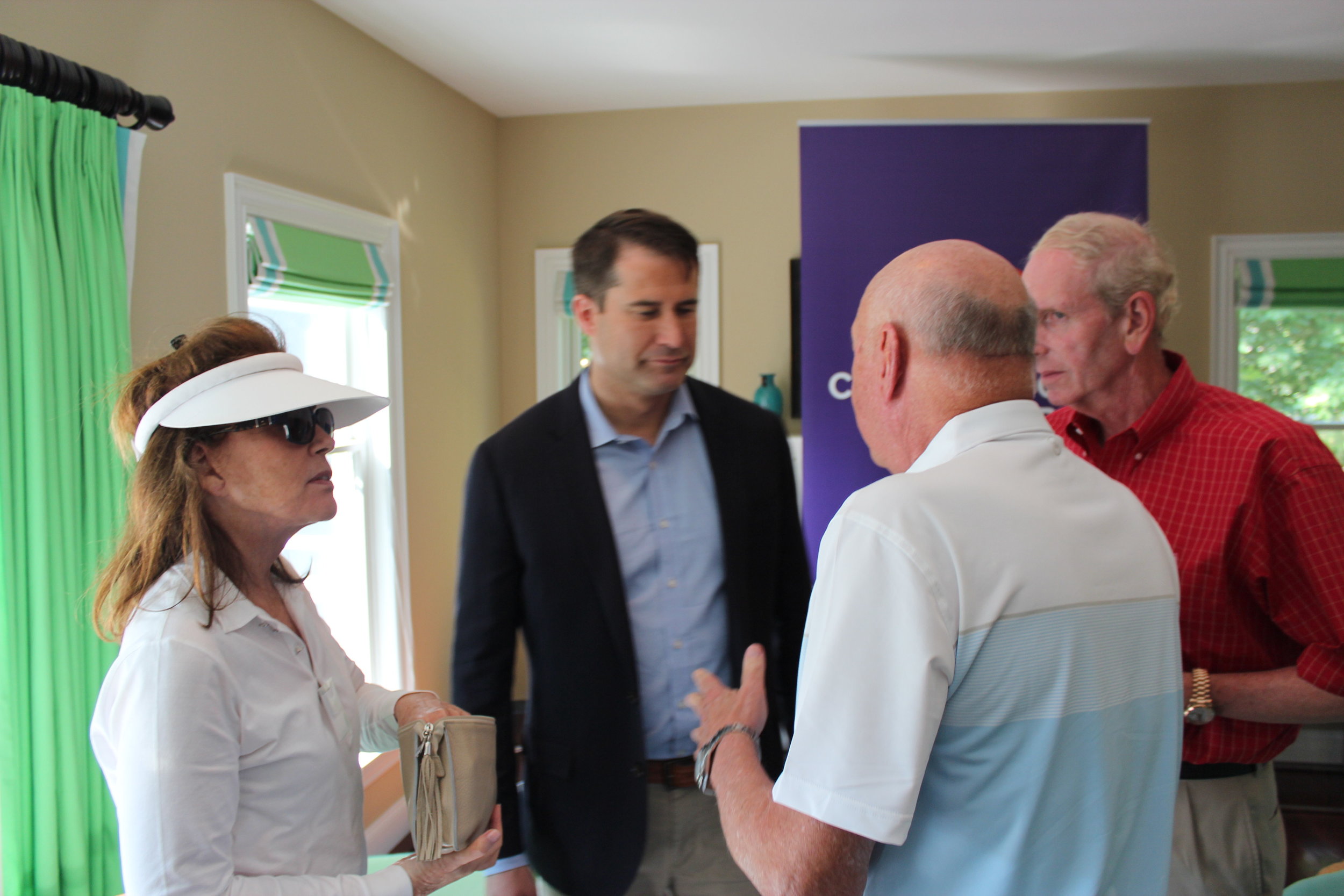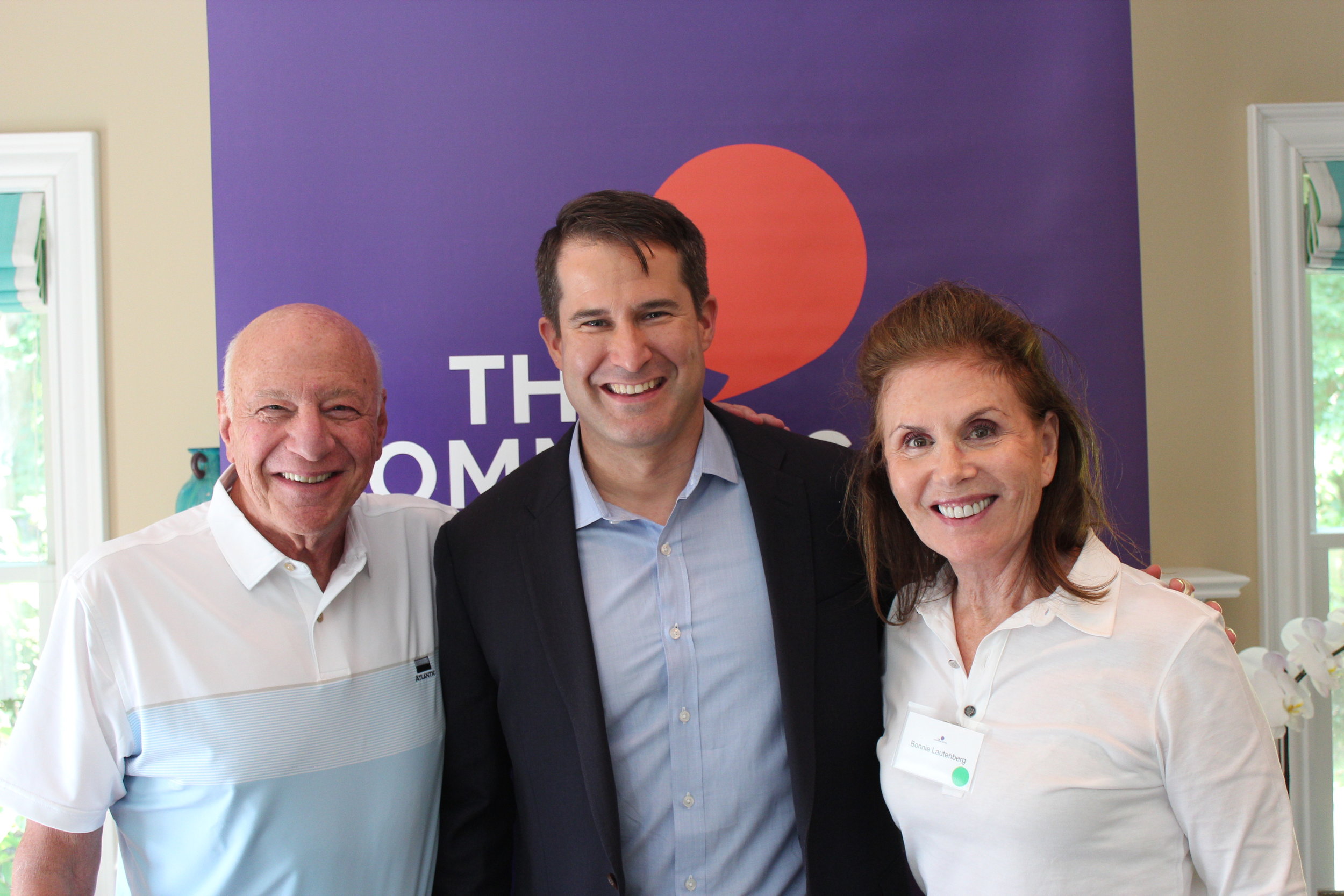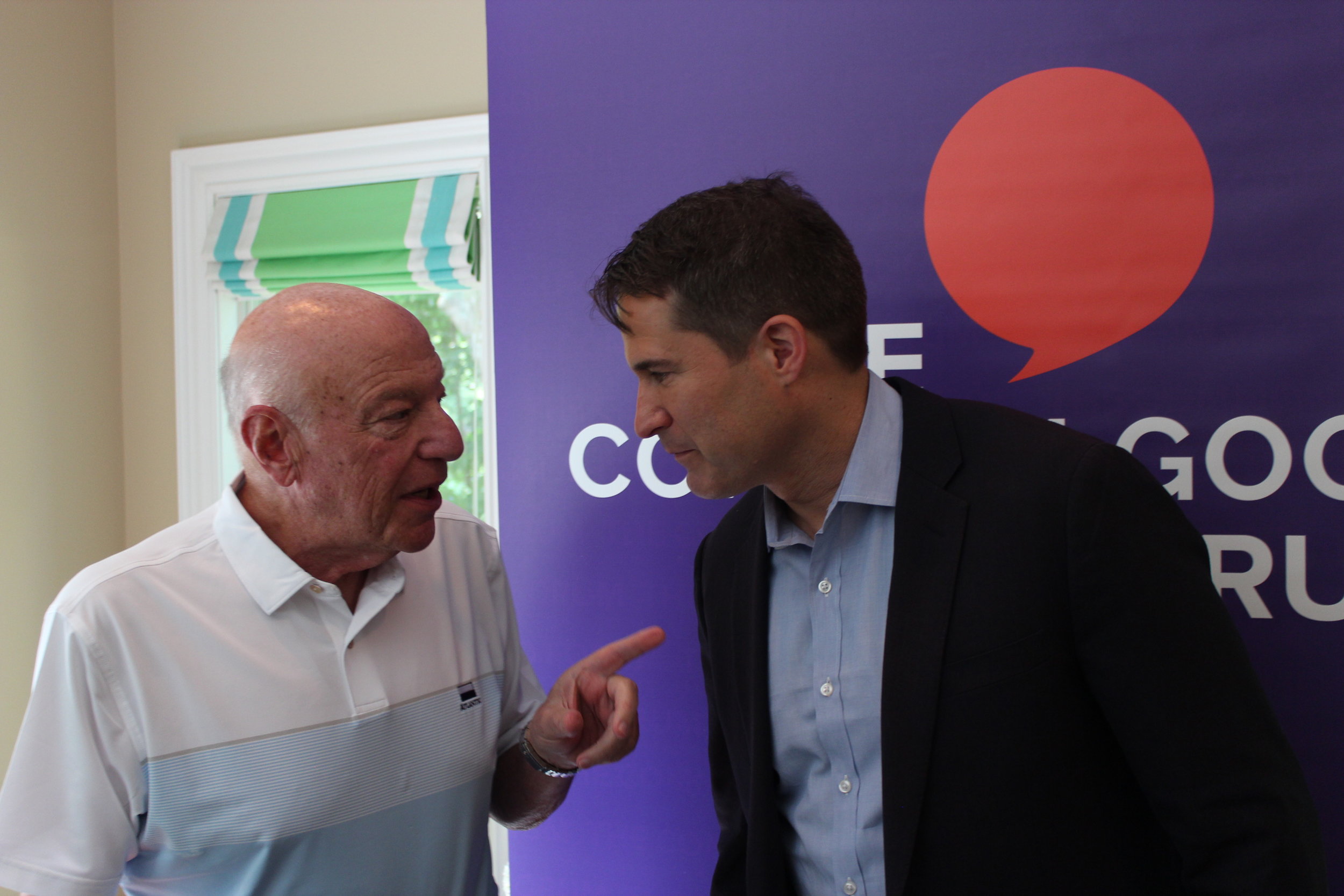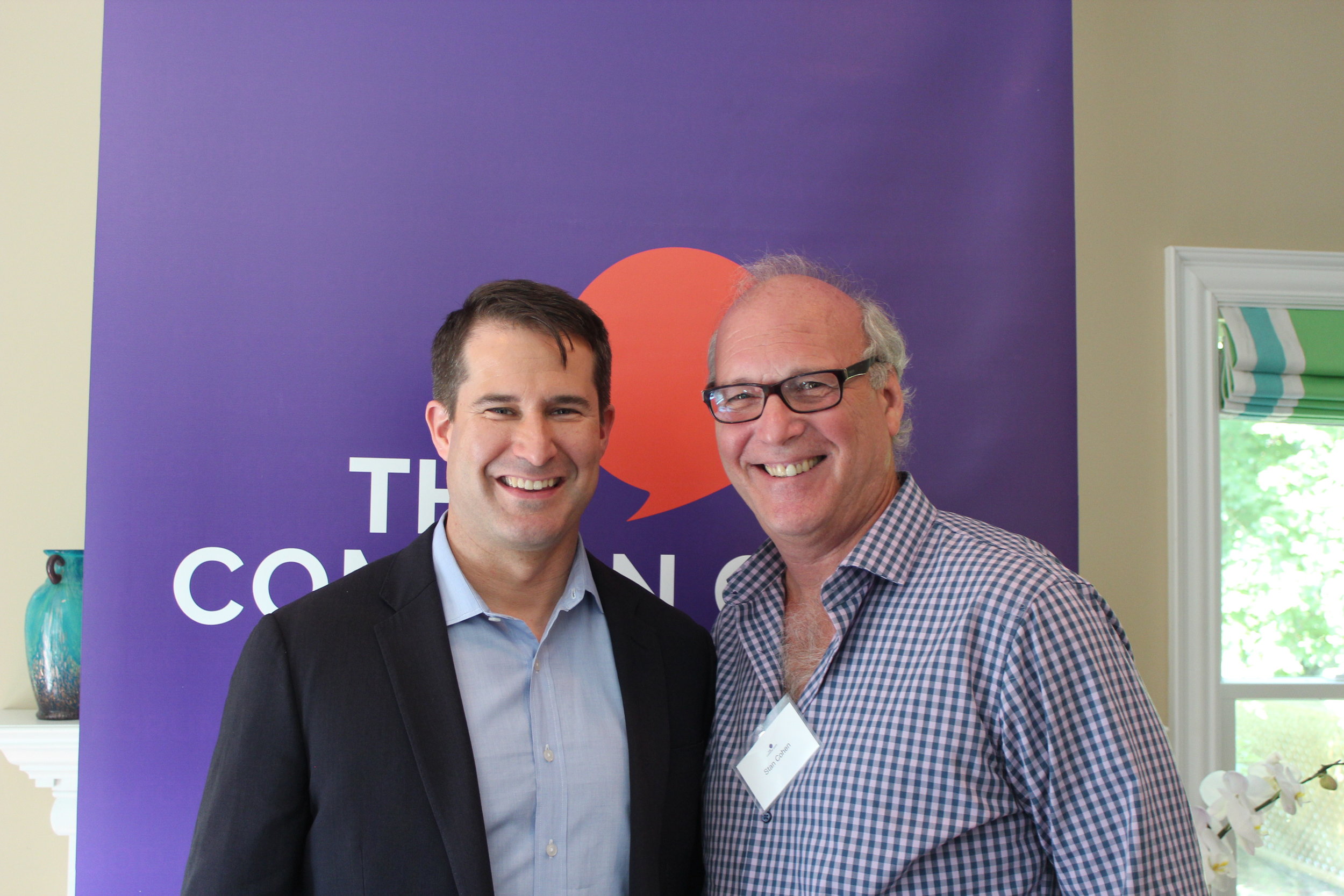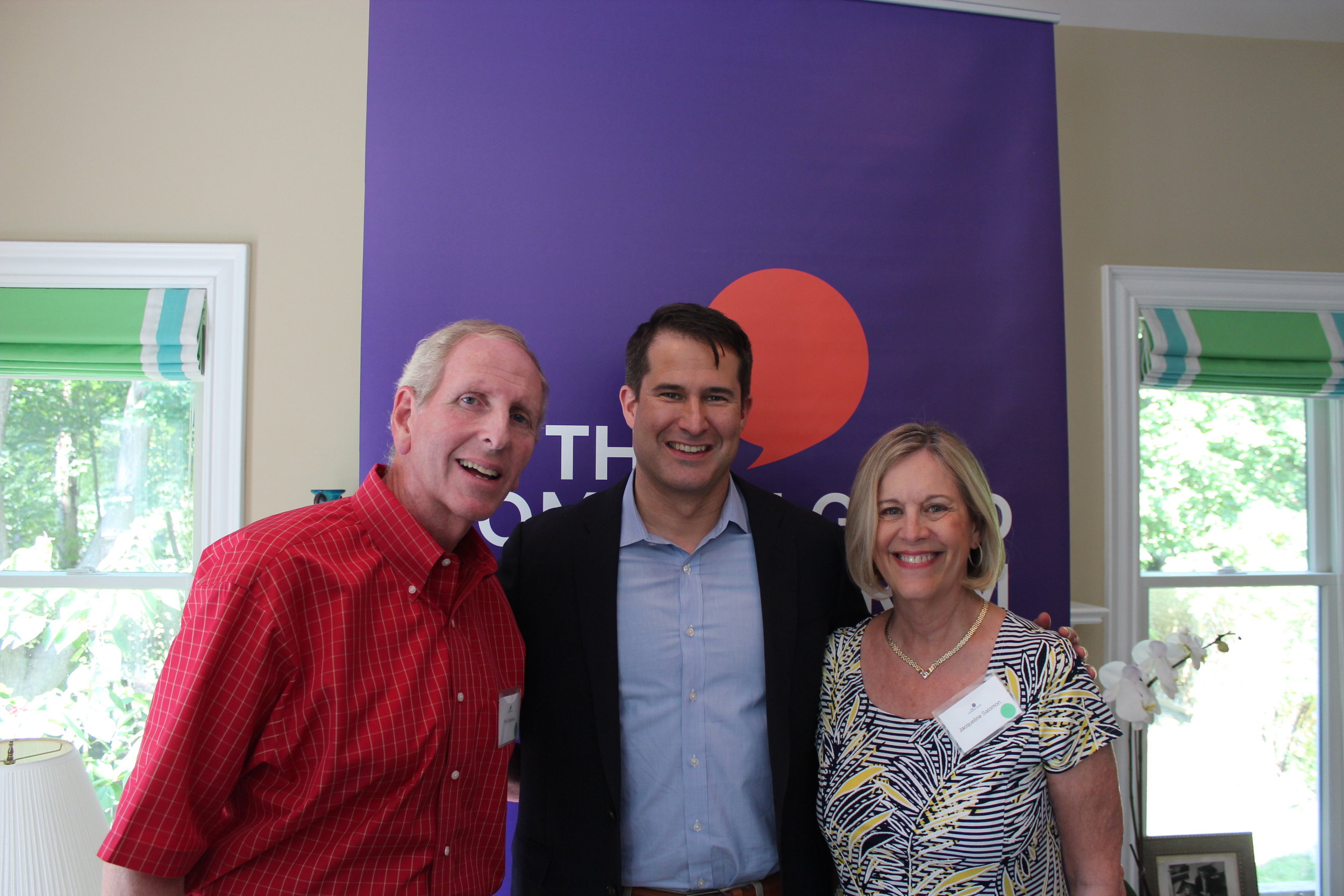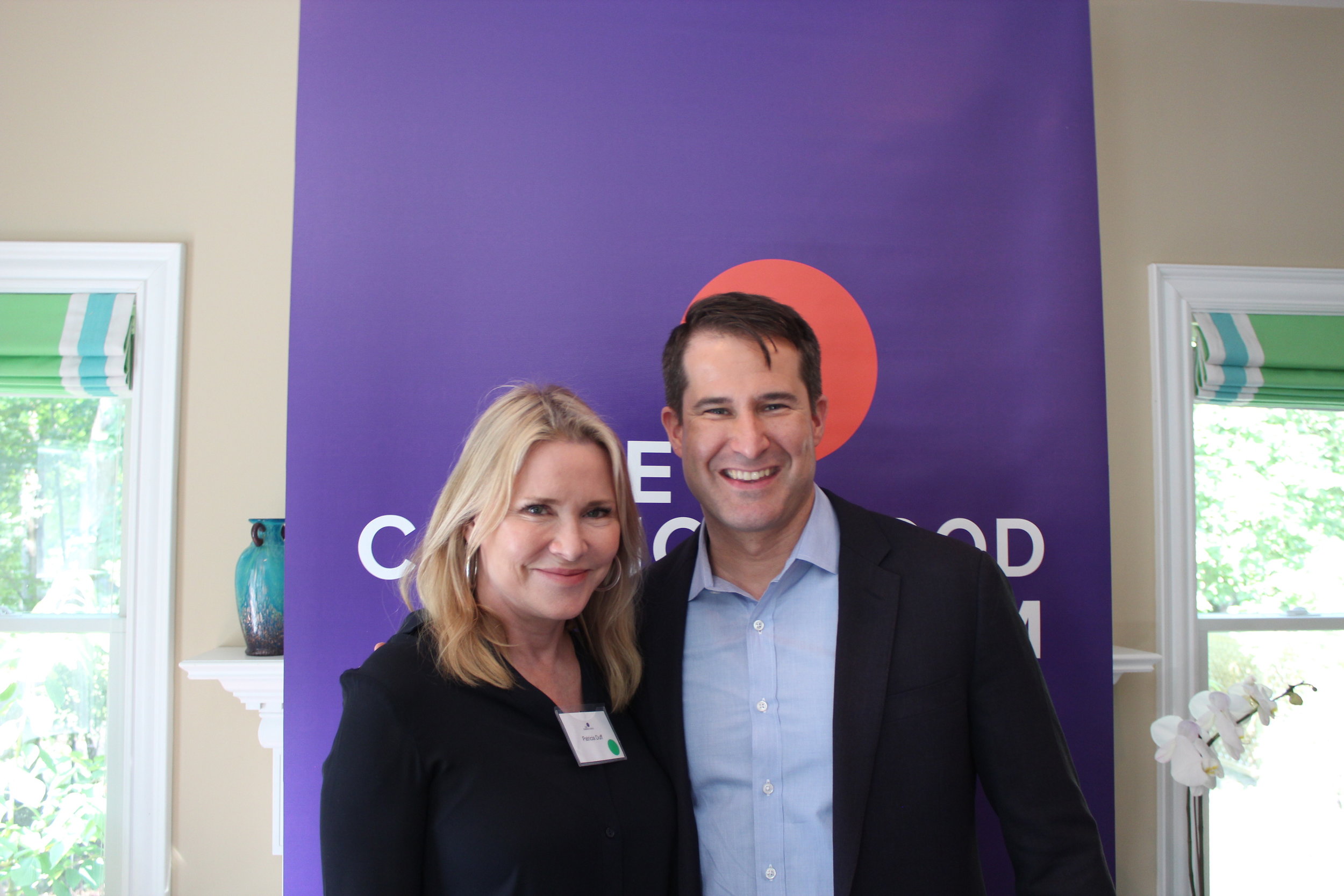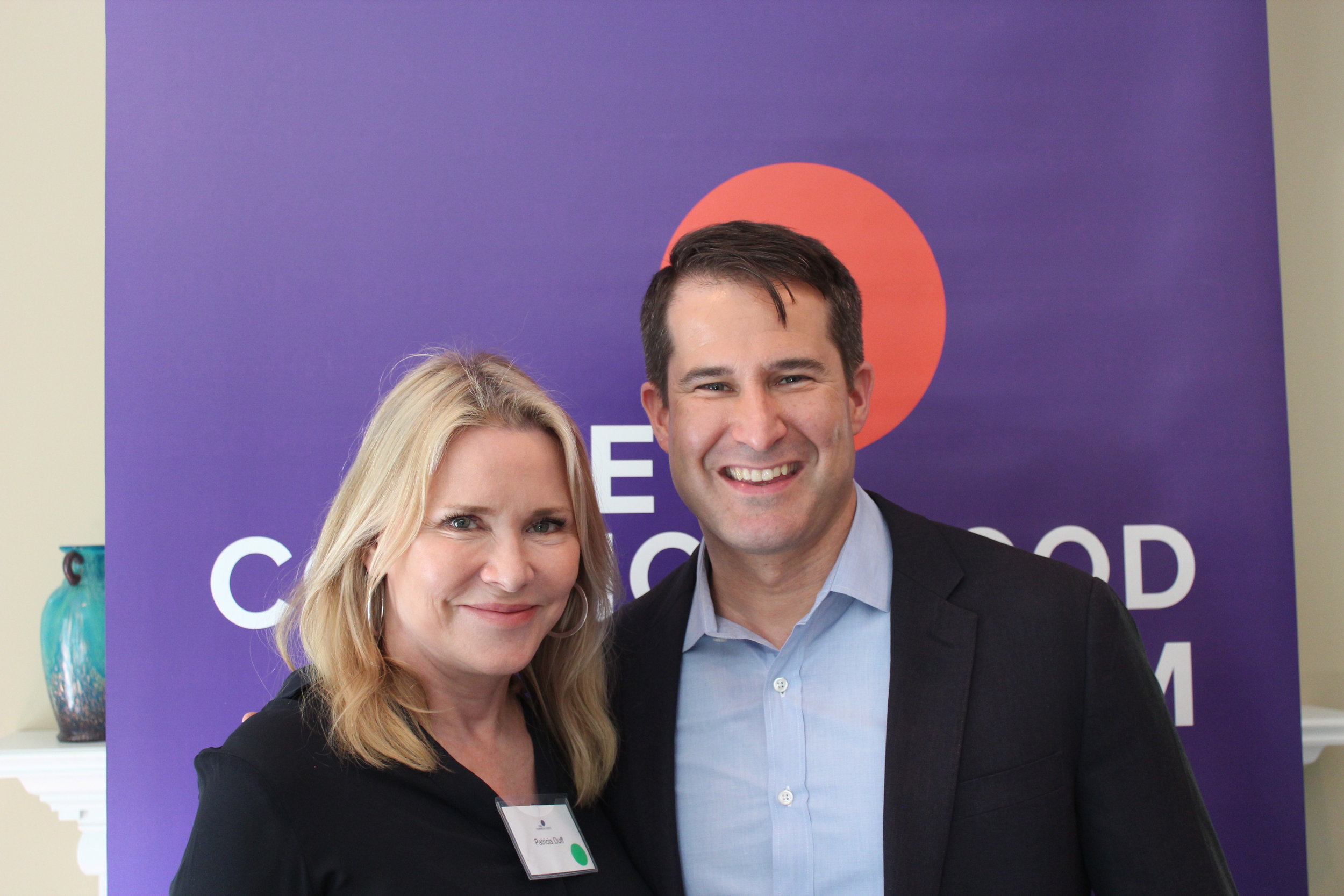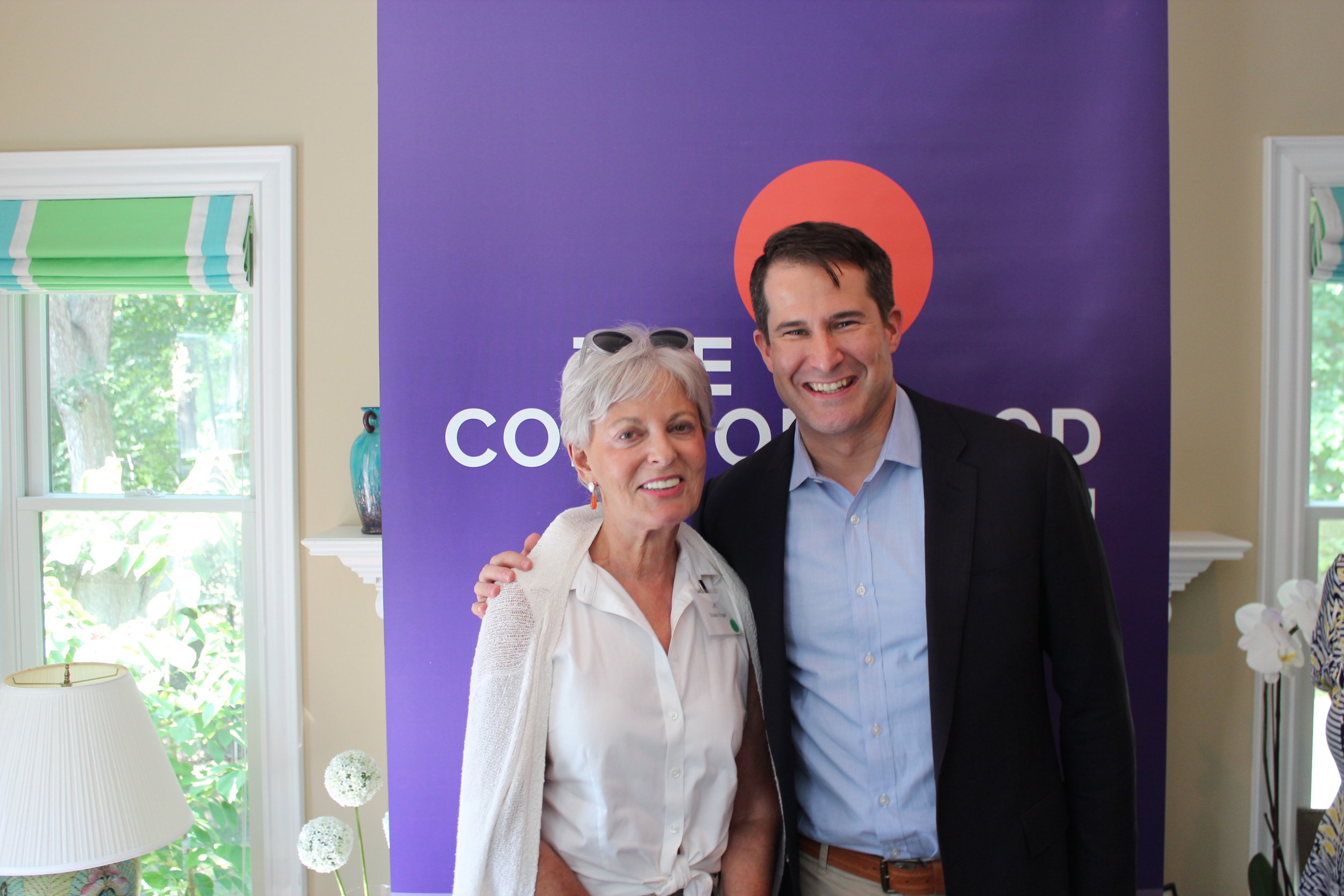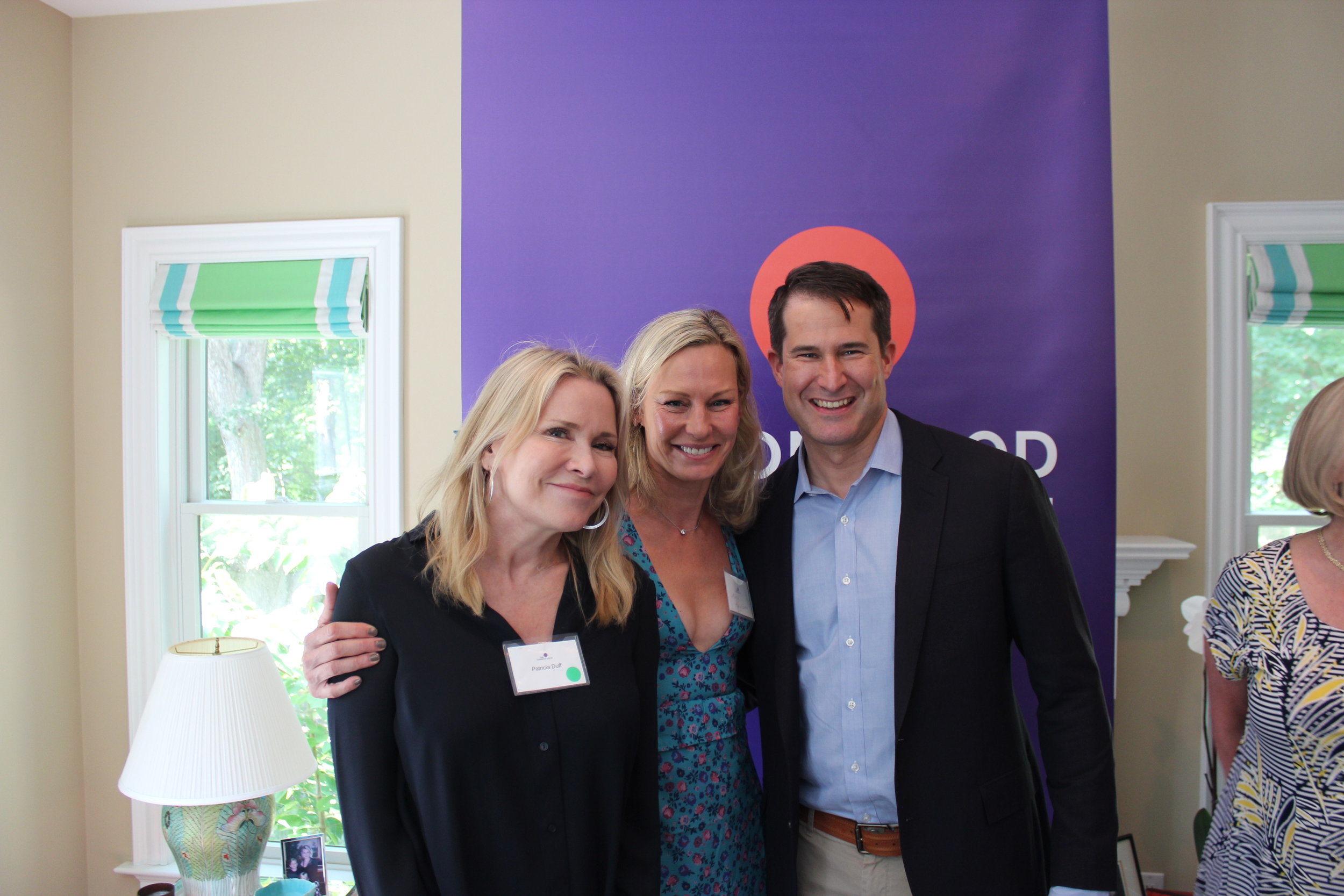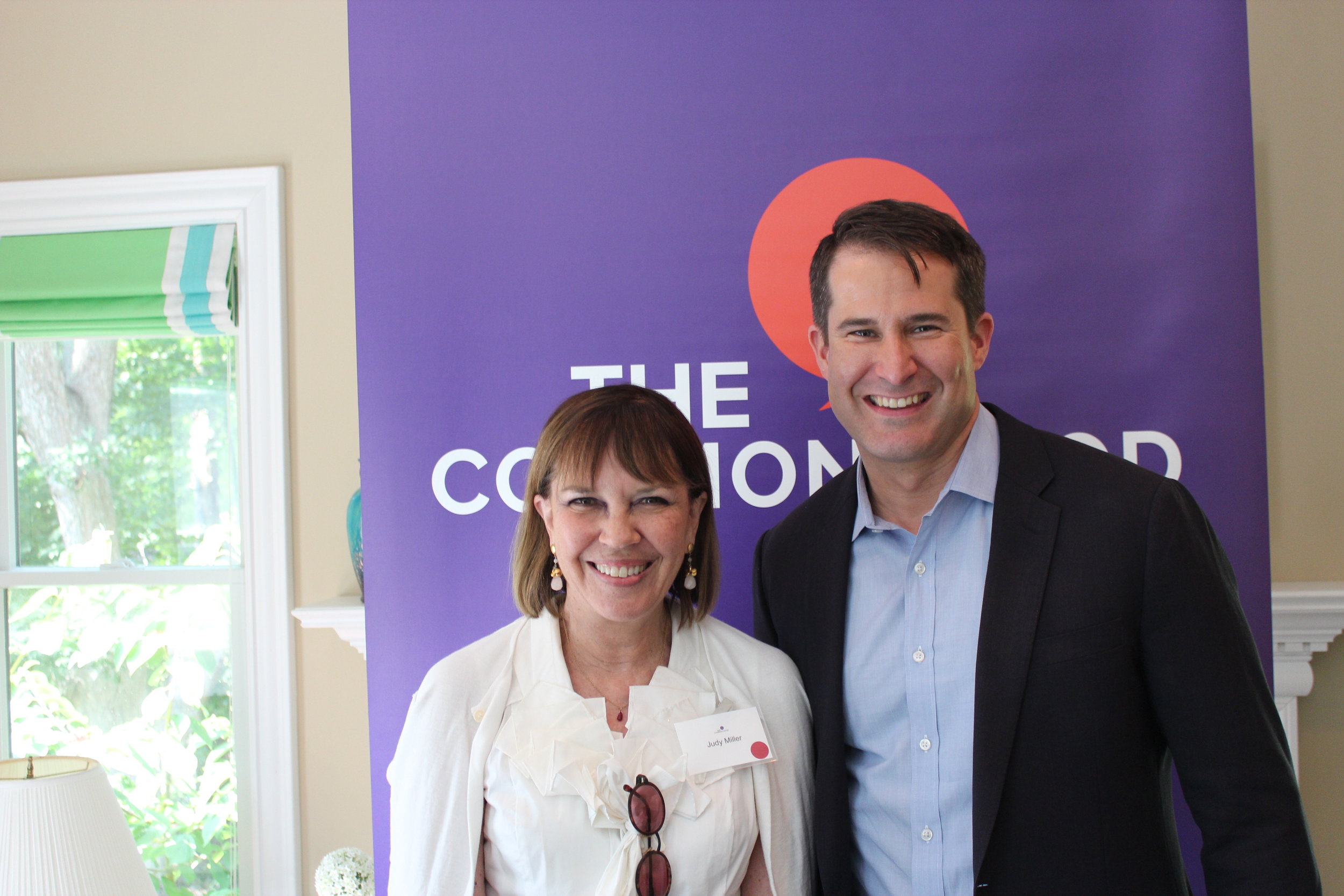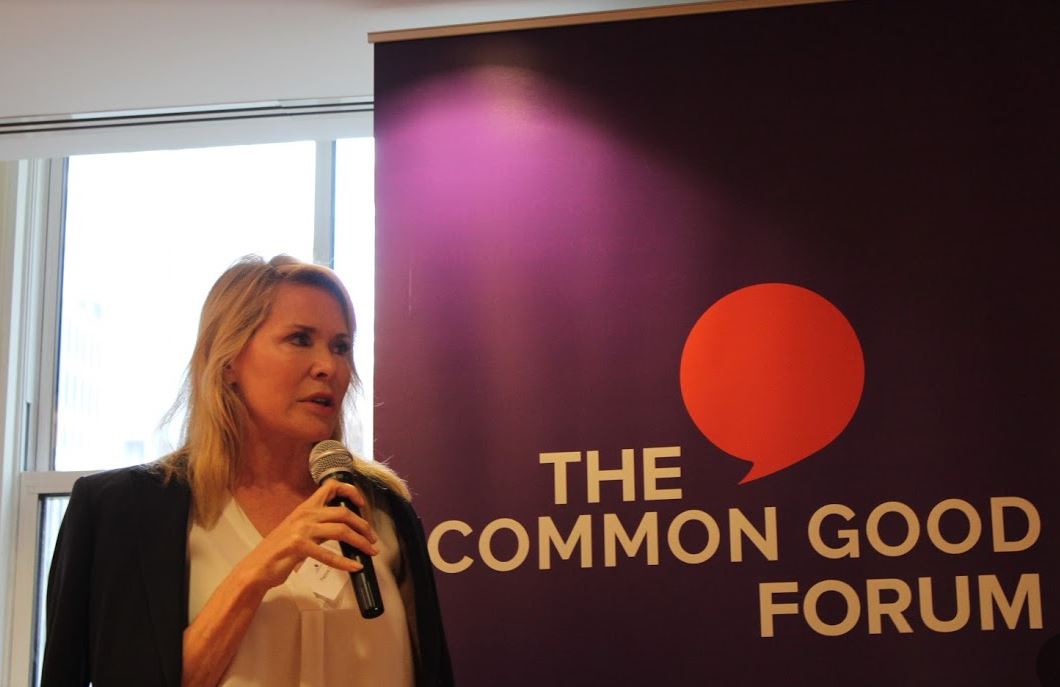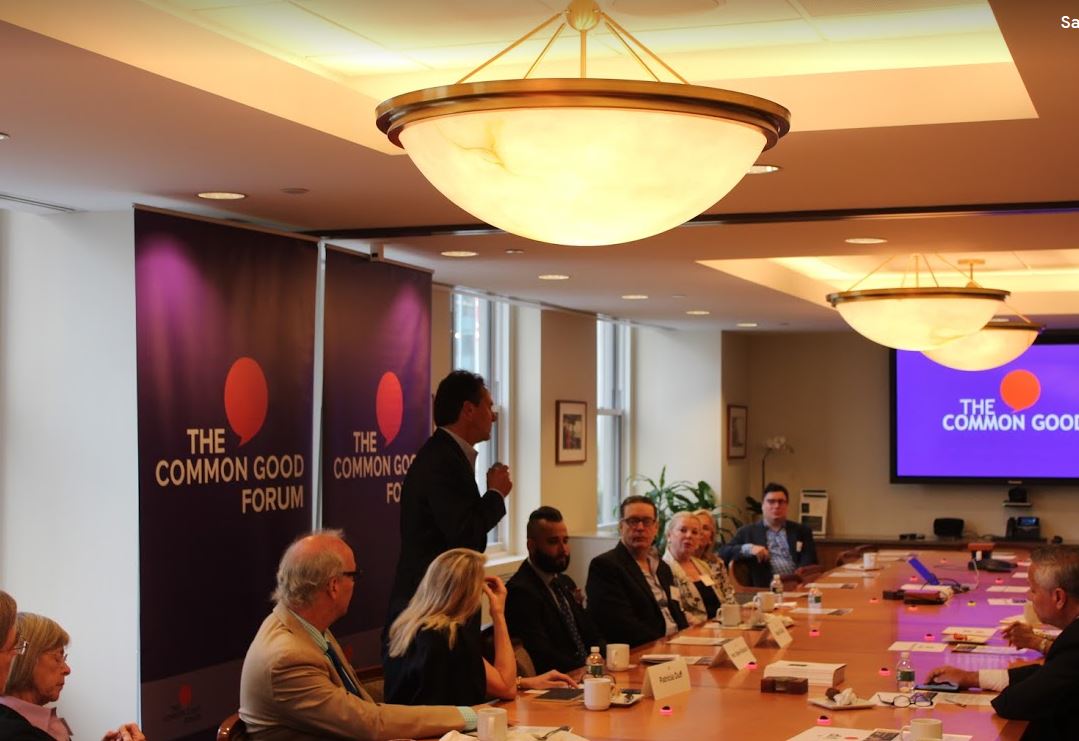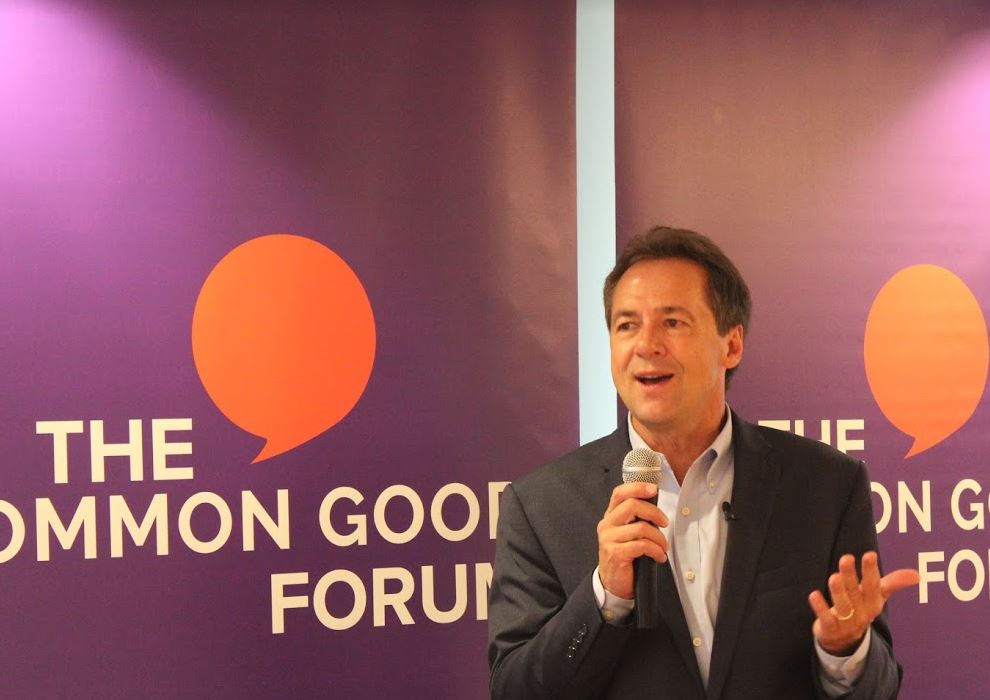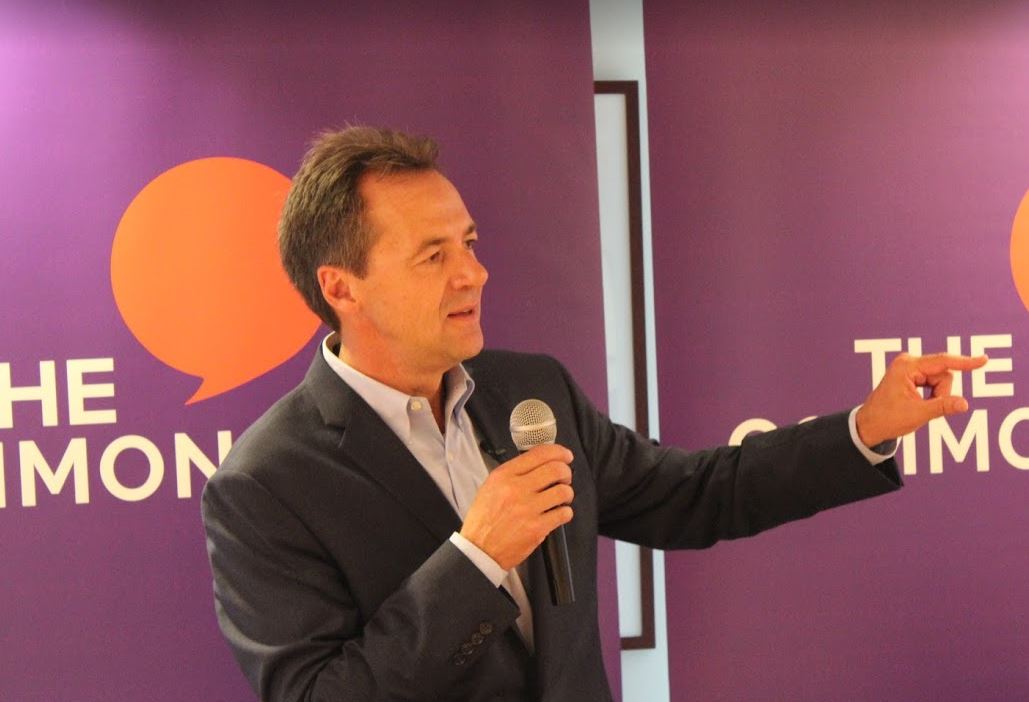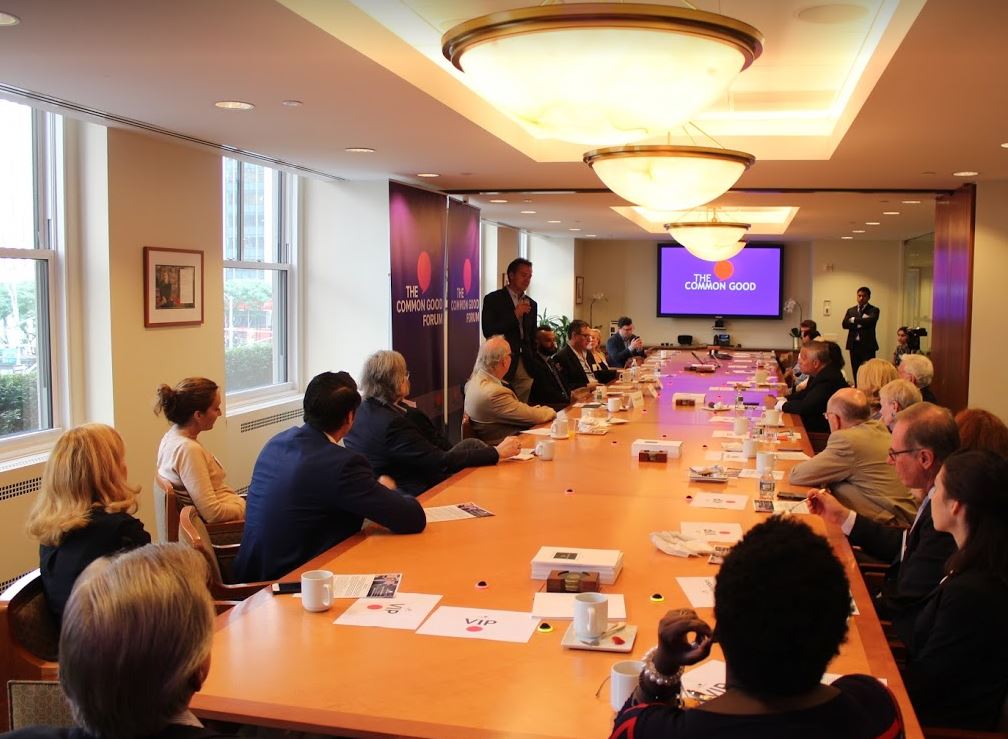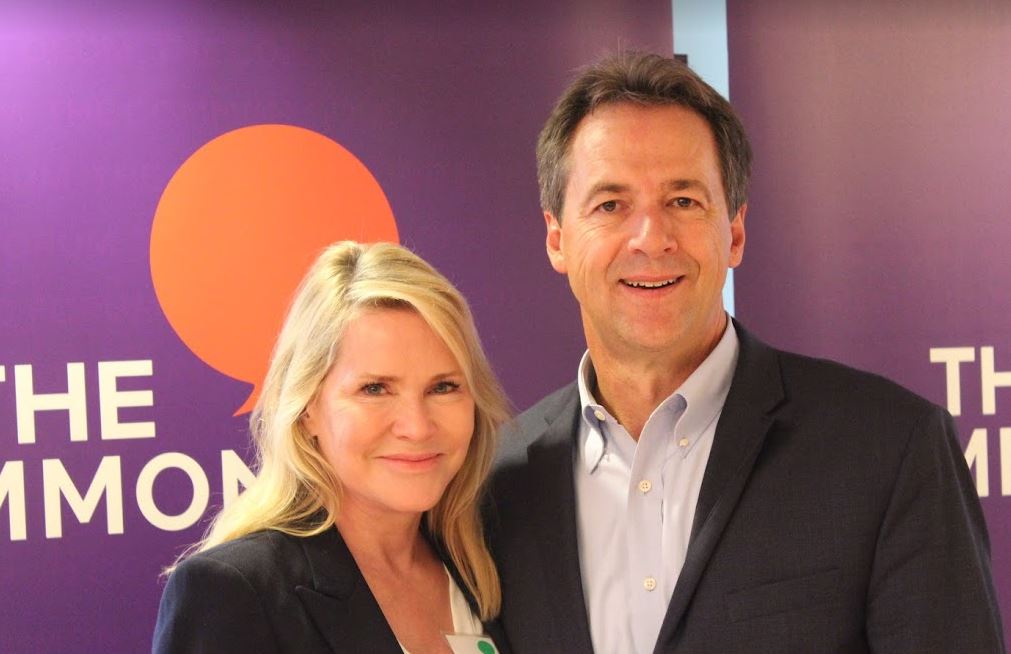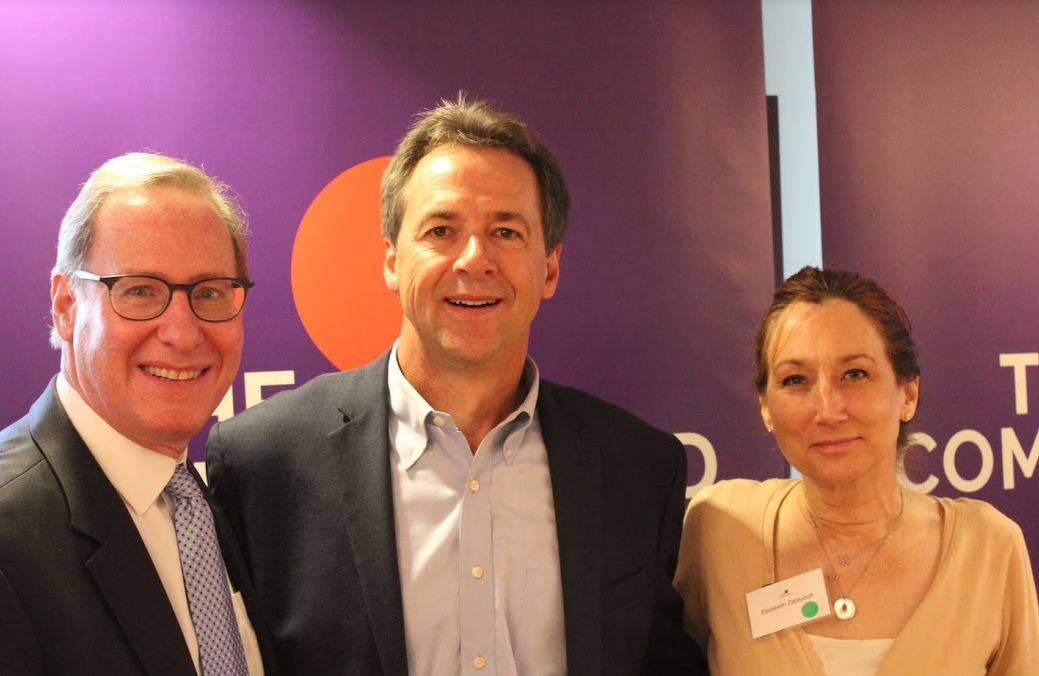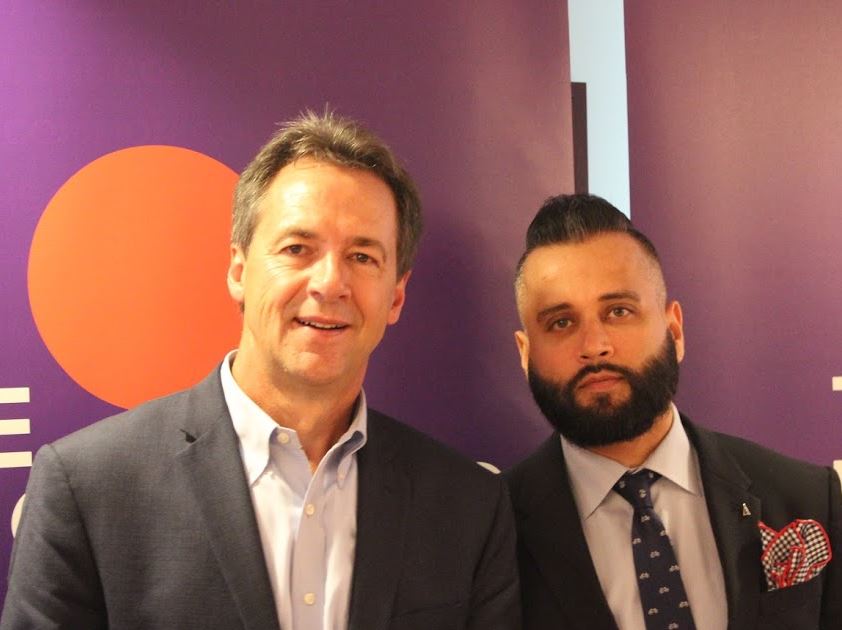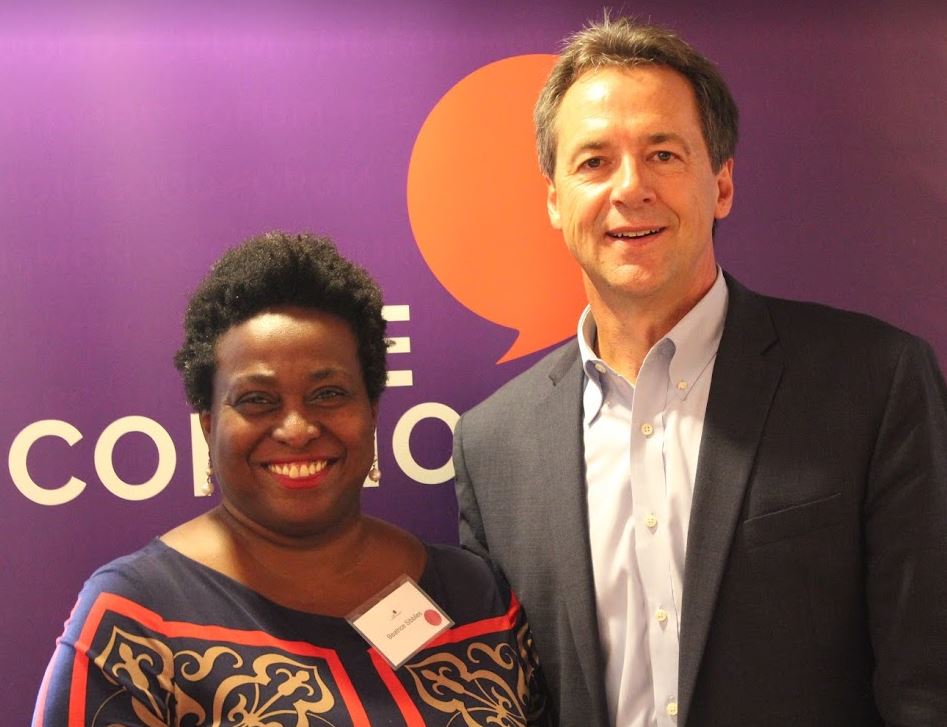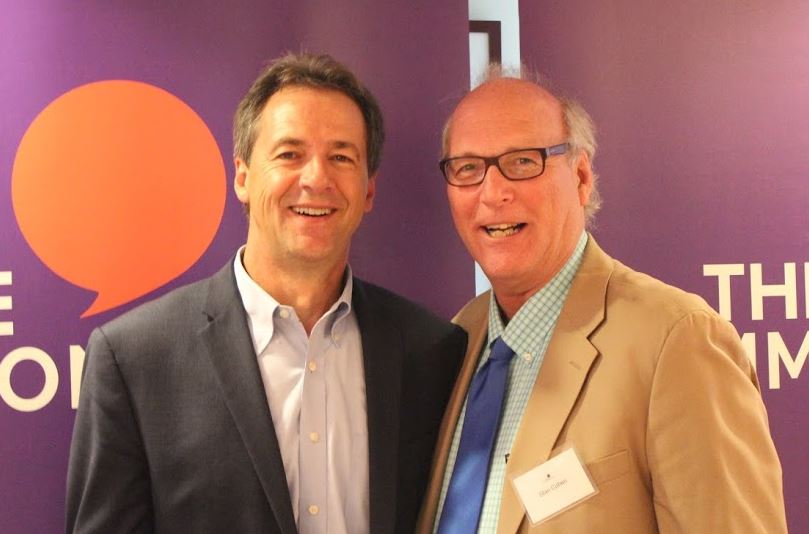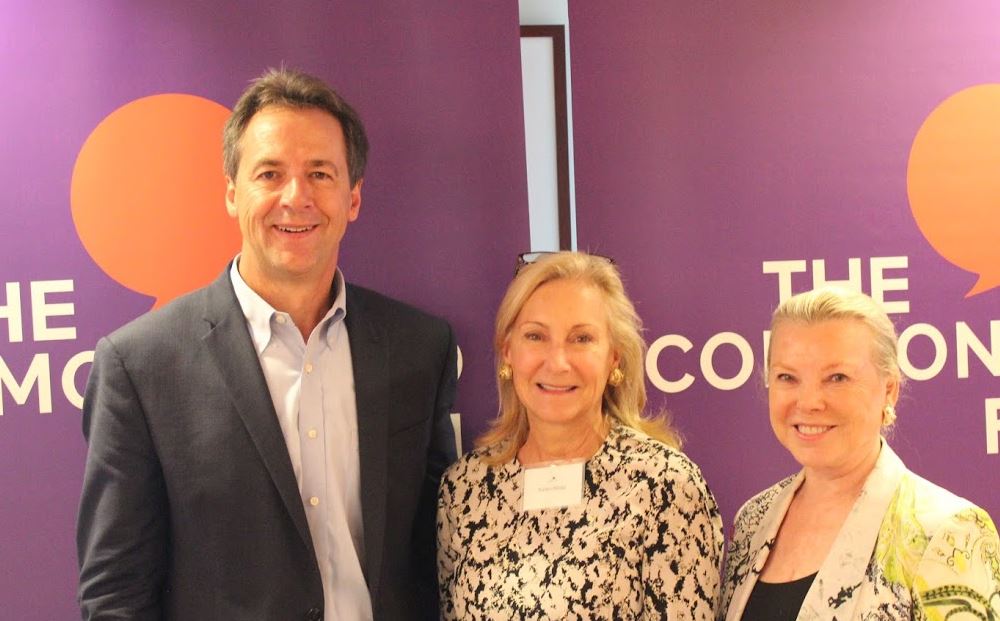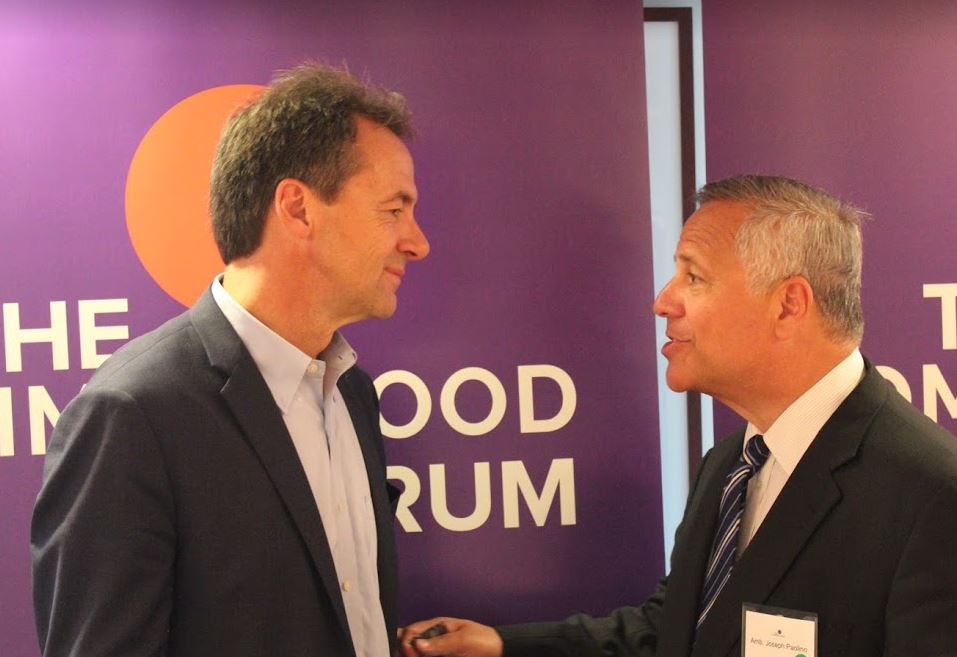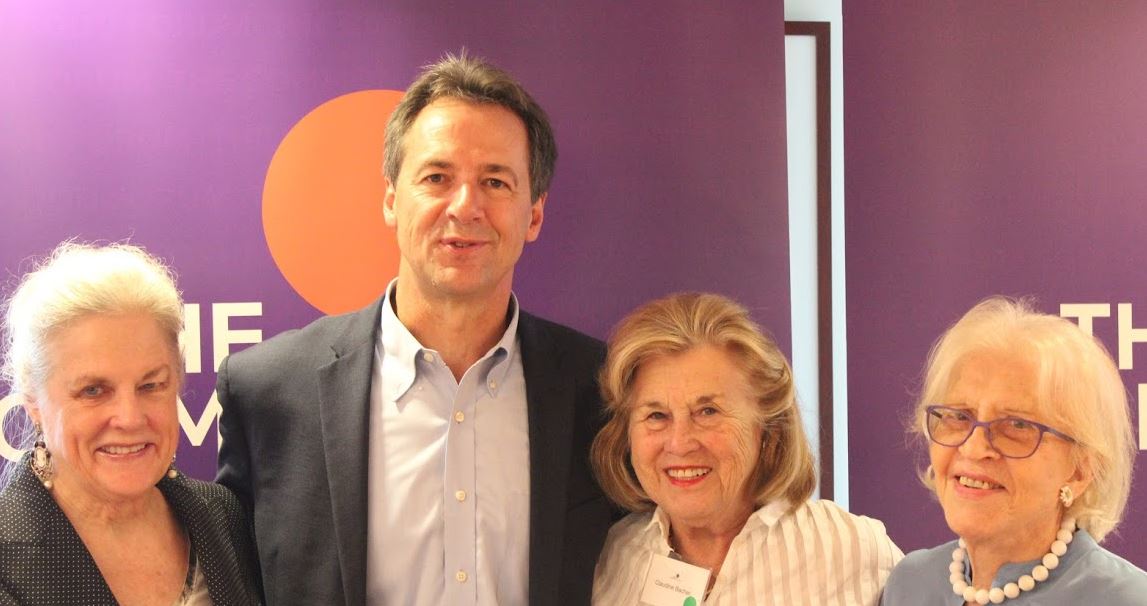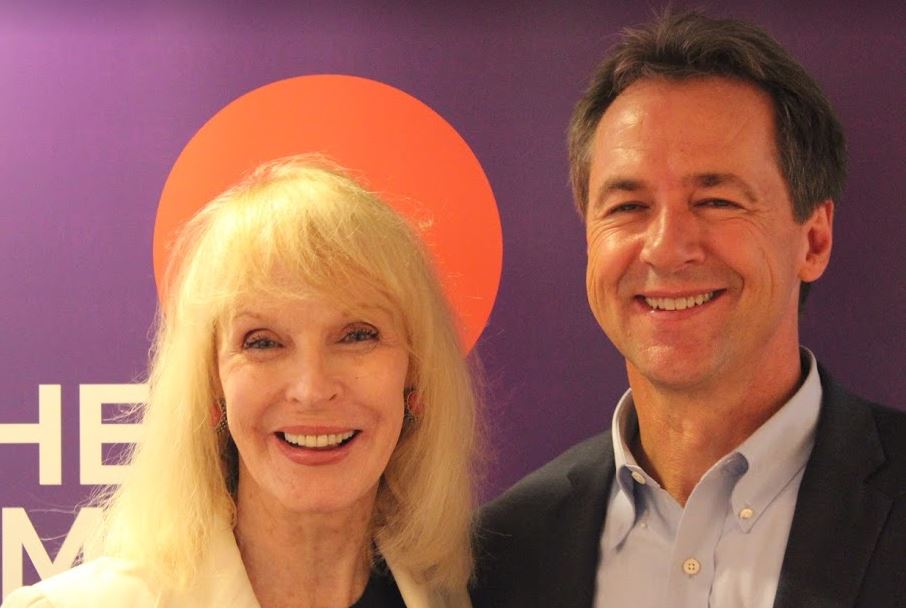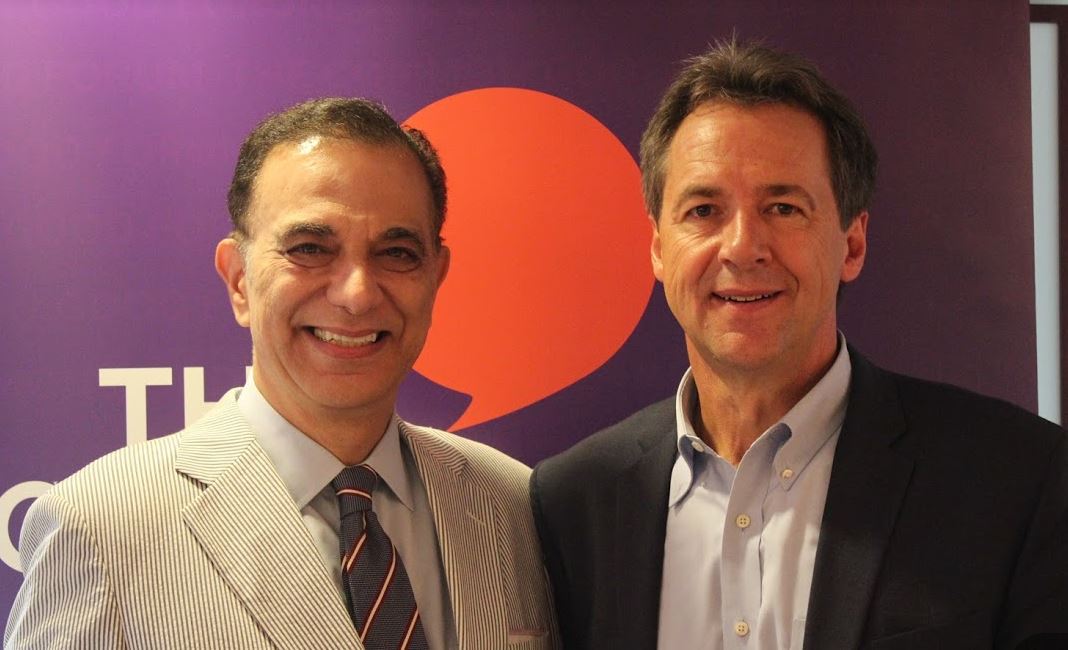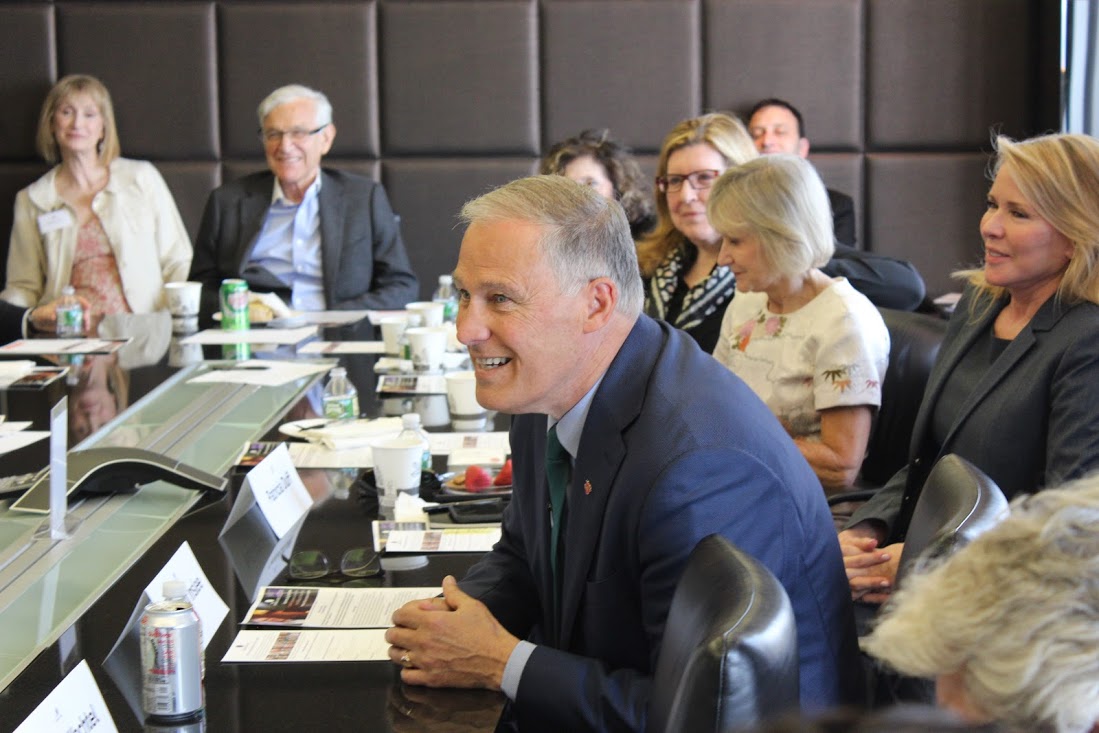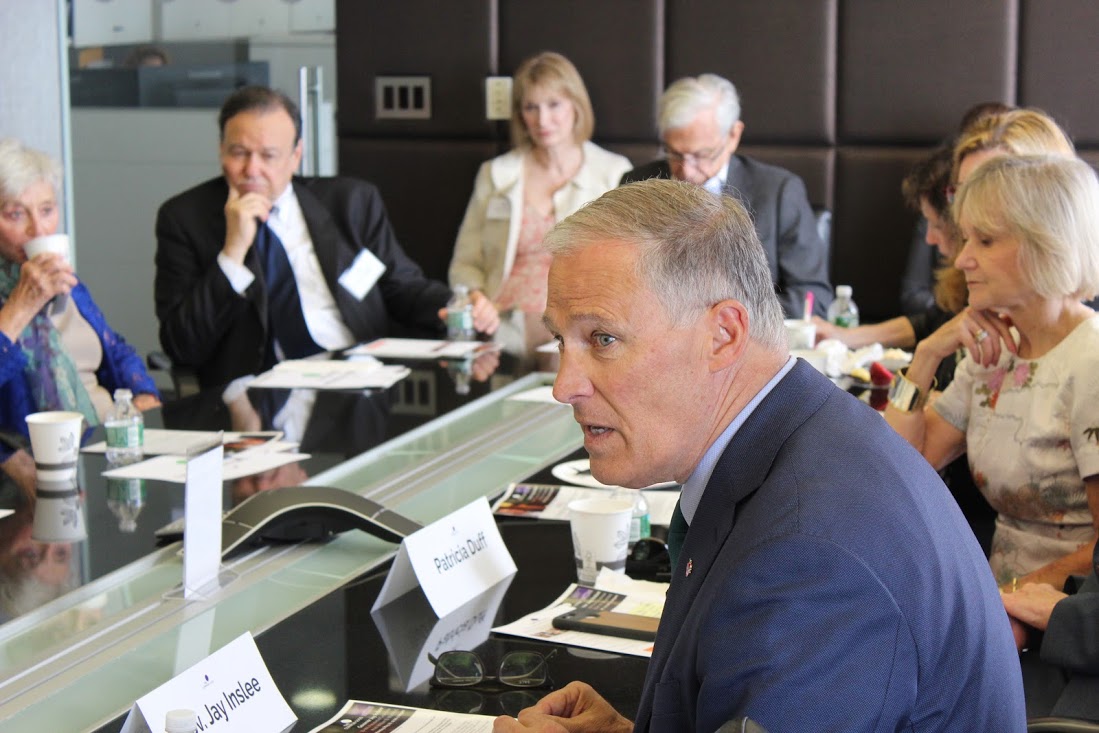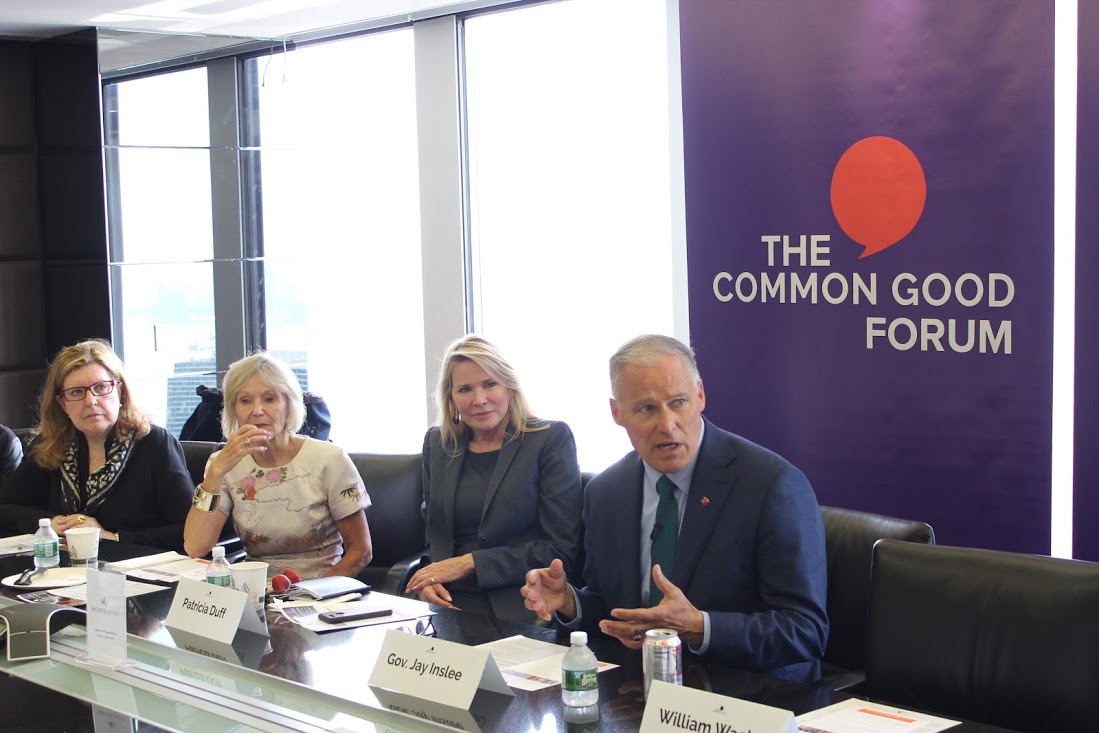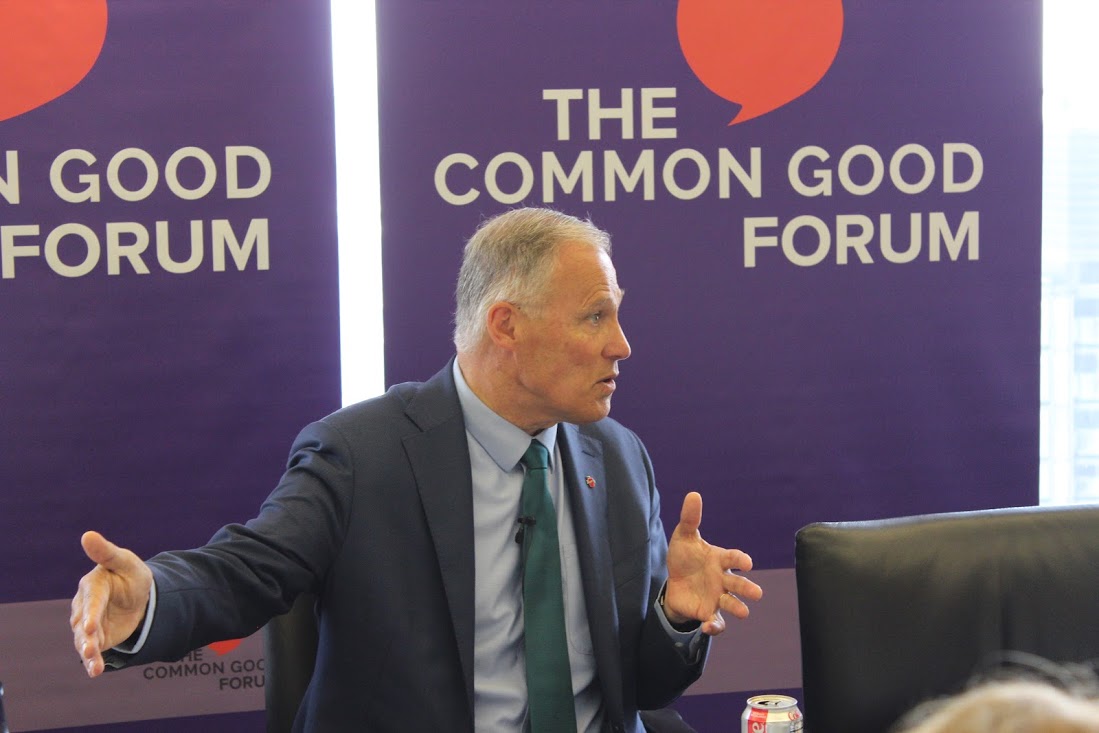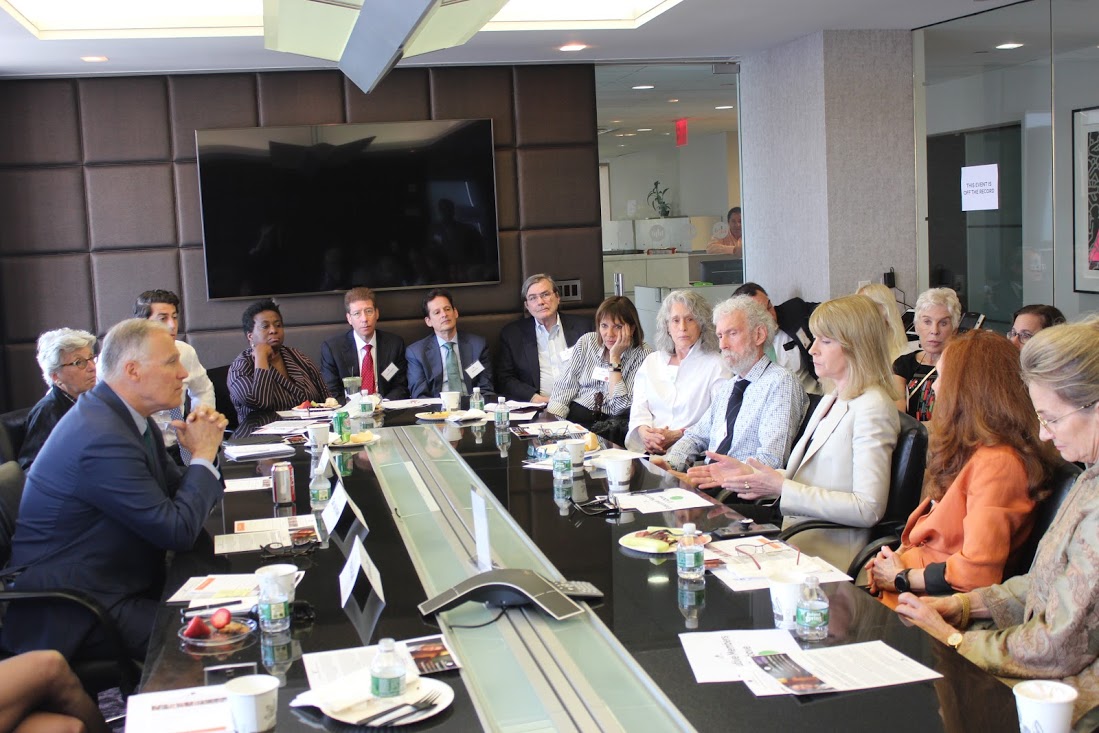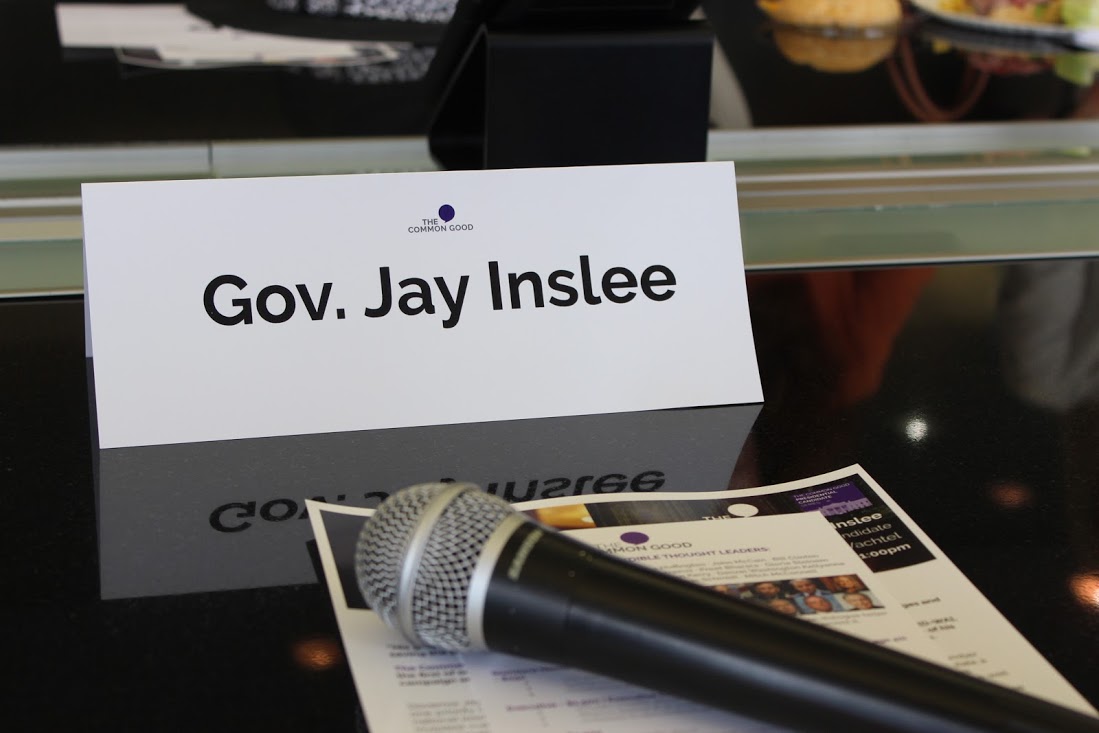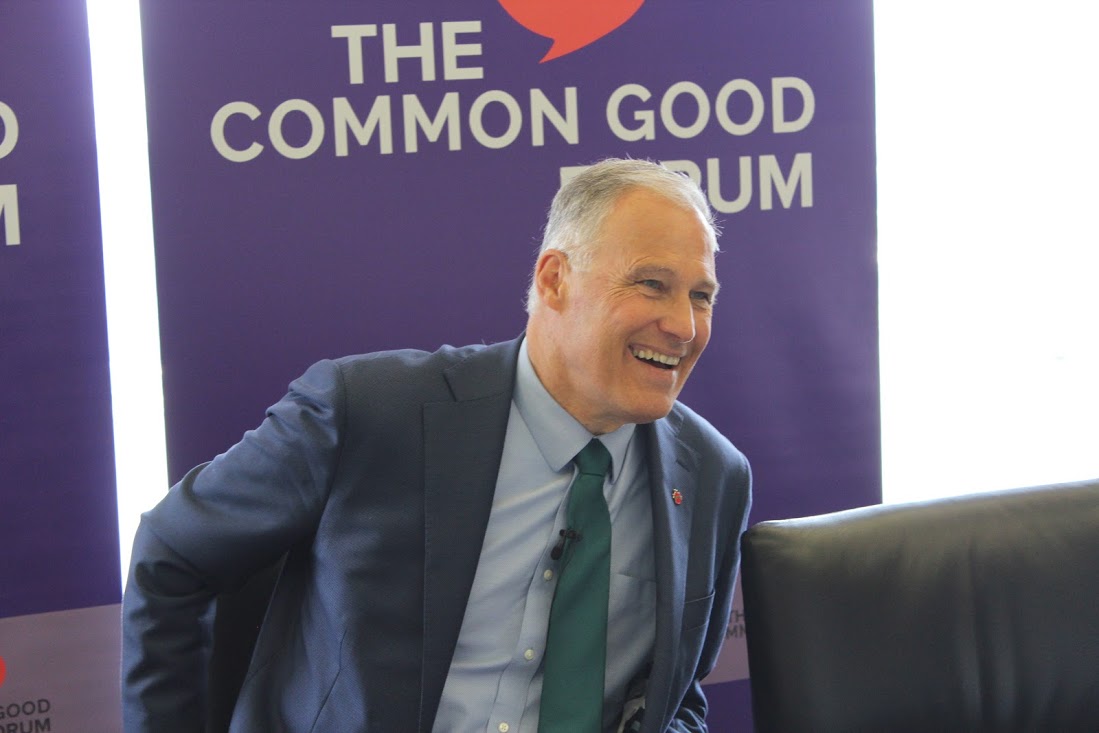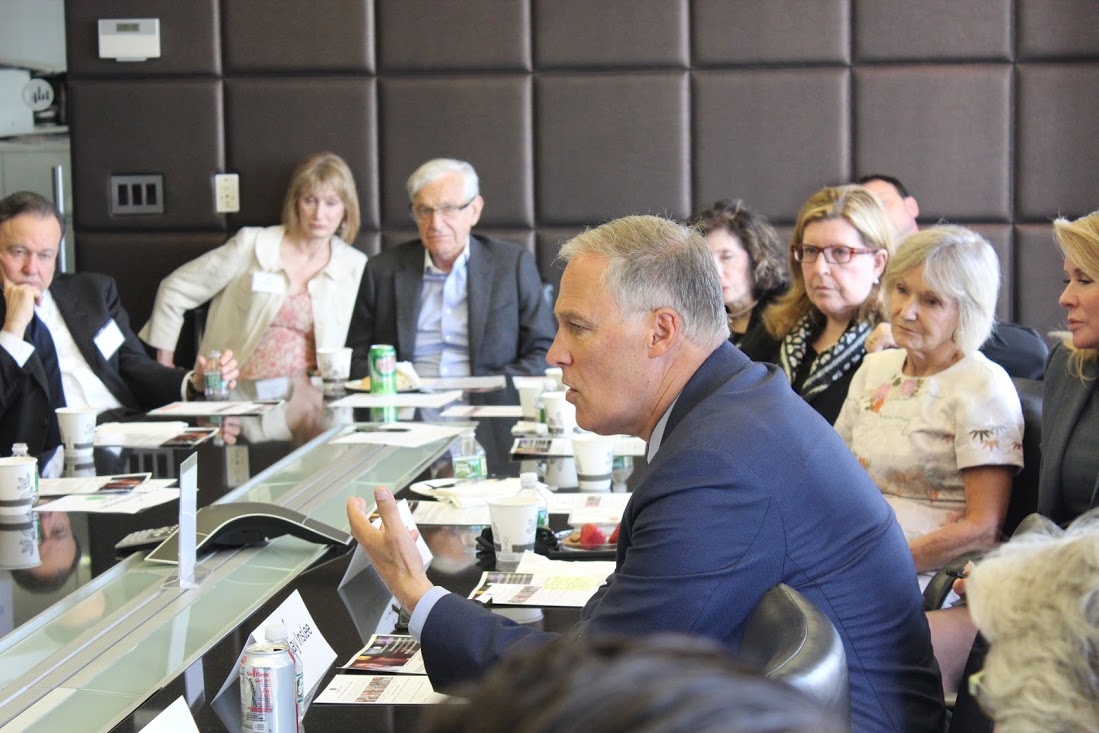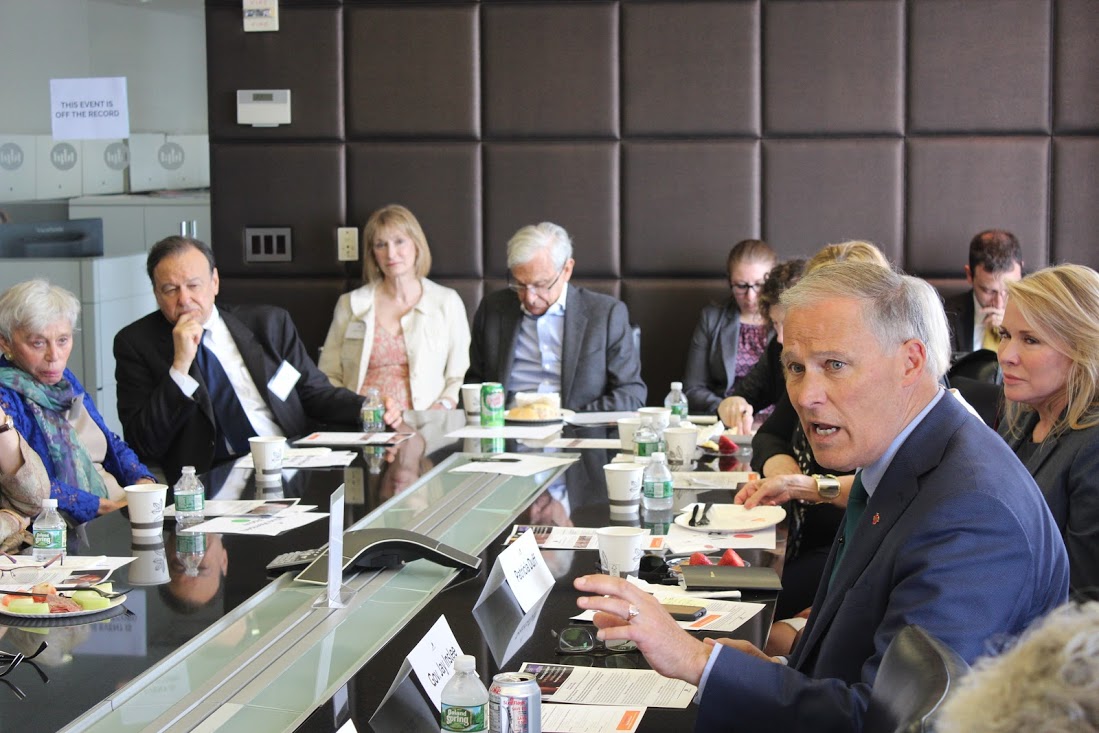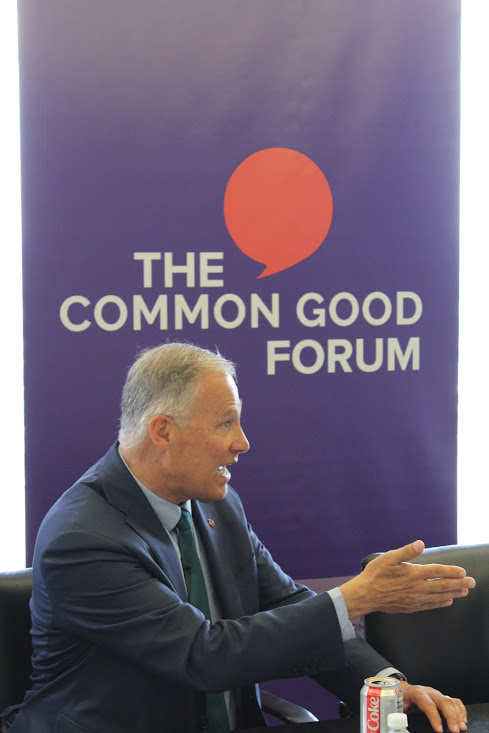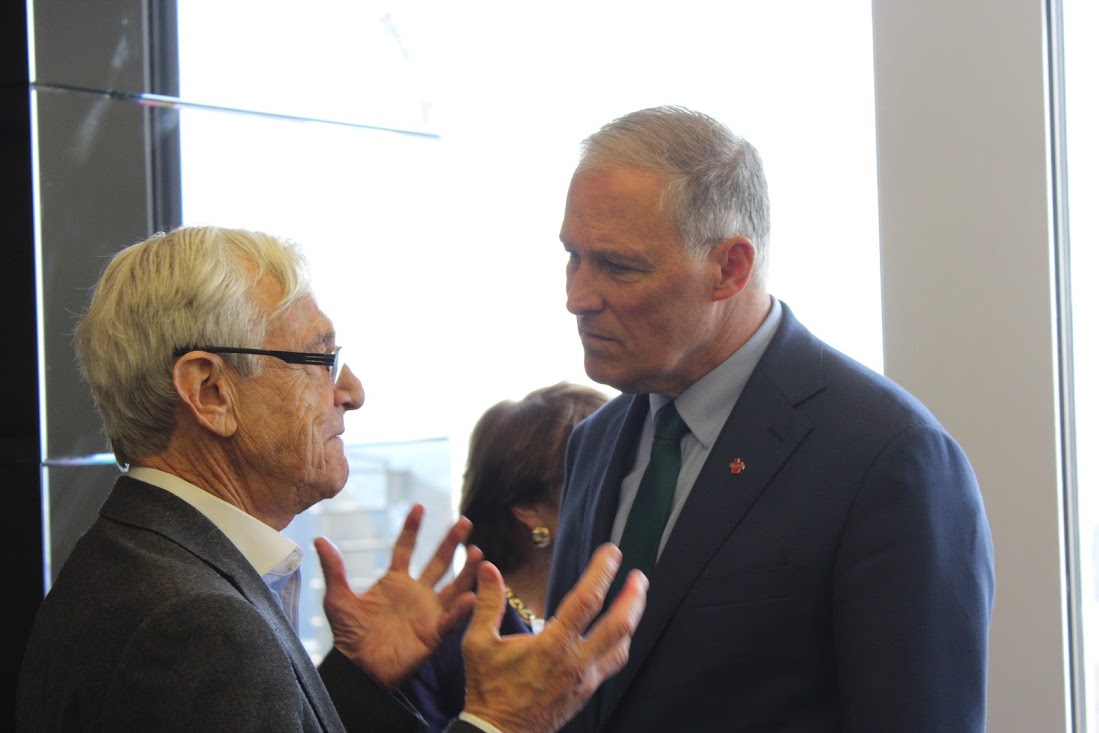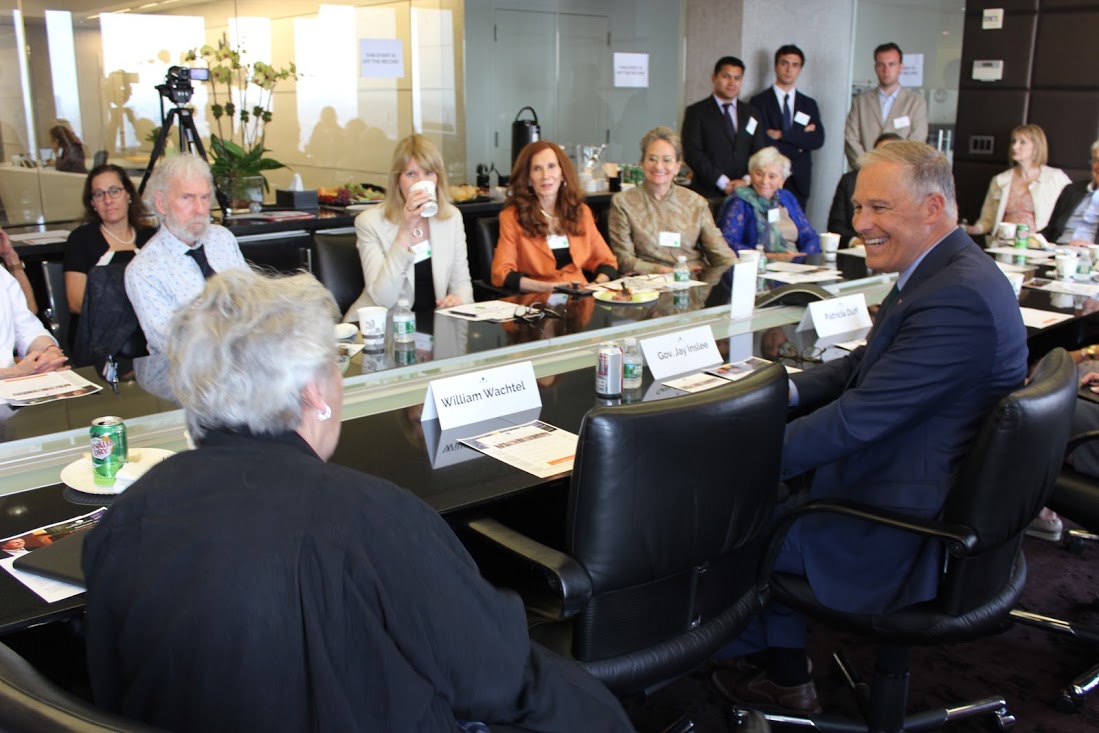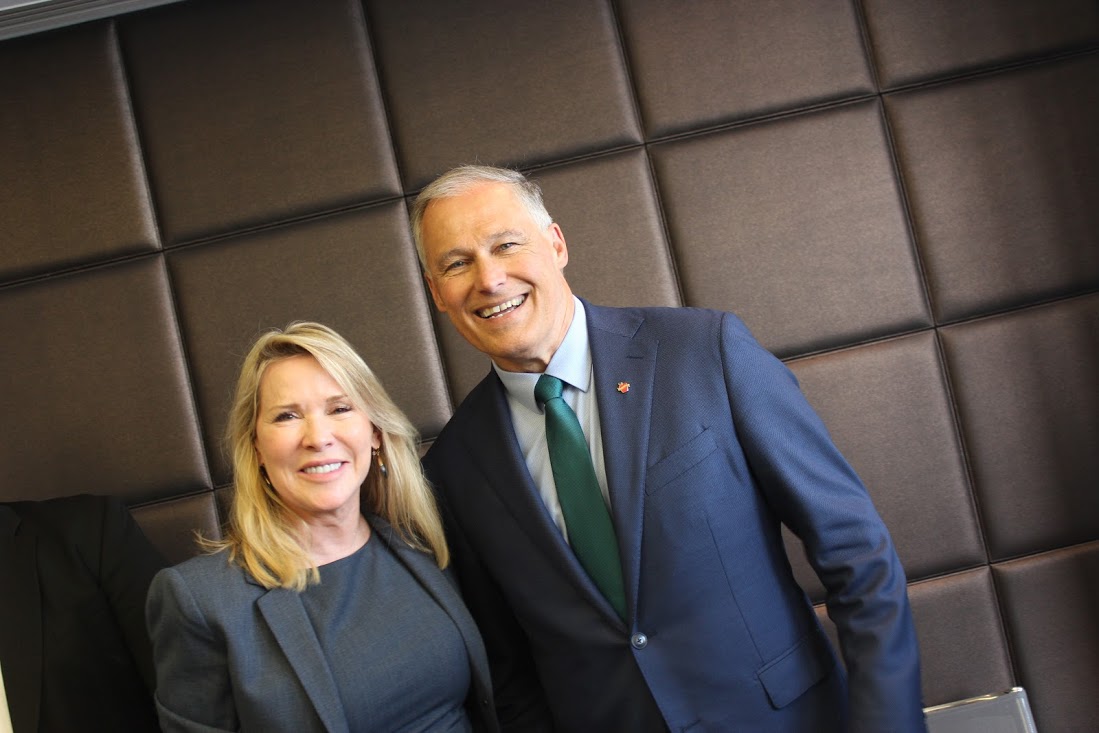
PAST EVENTS
The Election That Could Break America
After Election Day, what should we expect? The list of possibilities is keeping experts on both sides of the aisle getting ready to take action. The Common Good hosts, “The Election That Could Break America” with Pulitzer prize-winning journalist Bart Gellman, and moderated by Tom Rogers. You will not want to miss Gellman dive into his most recent much-talked-about article in The Atlantic and his insights into the unprecedented scenarios that we may encounter post-election.
After Election Day, what should we expect? The list of possibilities is keeping experts on both sides of the aisle getting ready to take action. The Common Good hosts, “The Election That Could Break America” with Pulitzer prize-winning journalist Bart Gellman, and moderated by Tom Rogers. You will not want to miss Gellman dive into his most recent much-talked-about article in The Atlantic and his insights into the unprecedented scenarios that we may encounter post-election.
WATCH:
The Election that Could Break America - Recap
We thought we’d keep it light and fun for you all today; that’s why we invited Pulitzer prize- winning journalist, Bart Gellman, to The Common Good to discuss the election (yeah, that one). Media legend and Editor-at-large at Newsweek, Tom Rogers, moderated this important and all too timely discussion that centered on Bart’s recent and widely discussed article in The Atlantic, entitled, The Election that Could Break America. Tom was early (if not first) to note that Trump could very well subvert the election by staying in office no matter the outcome, and he has since written extensively about the topic in Newsweek with former Congressman Tim Wirth. Needless to say, we’re lucky to have two experts join us to discuss the election and potentially the future of our democracy.
Trump’s strategy is opacity, Bart begins ominously. Moreover, He will wield the power of incumbency to benefit his own reelection in a way that we’ve probably never seen before. While Trump will have a lot less running room if he loses by a landslide, we’re likely heading towards uncharted territory.
Gift of prophecy? No, just following the evidence; Bart asserts that no matter the outcome, Trump will not concede that he was defeated.
Both in prepared and off-the-cuff remarks, Trump has flatly said that the only way he could lose this election is if it is rigged against him.
“Our Constitution does not secure the peaceful transition of power, but rather presupposes it,” Bart Gellman.
Bart reminds us that SCOTUS didn’t determine 2000, it was Gore’s decision to ultimately concede.
SCOTUS, or at least Roberts, will be reluctant to weigh in, especially in the face of the court’s waning legitimacy. However, Bart can’t say the same for Kavannaugh at this point.
Bart suggests that if you ask most state legislators if they’d be willing to discard voters in their states, they’d probably say no. It’s hard to look in the mirror and do so; however, Trump’s genius is twofold; his manipulation of attention; and he enures people into grey areas, specifically norm-busting in a way they didn’t necessarily expect. And norms are the glue that keeps most of this together.
Ingredients for a Mess
Most states don’t allow mail-in-ballots to be processed before election day - it’s a slow process, so there will be a backlog. Florida, North Carolina, Arizona are important exceptions.
Trump has deliberately undermined trust in mail-in-ballots, creating a situation where many more Republicans will vote in person, while many more Democrats will vote by mail.
His strategy seems to be to disqualify votes that are counted “late,” locking in votes that are made day of, calling them valid.
Consequently, networks may be reluctant to determine a winner.
There’s no umpire; our elections are administered by thousands of localities. Bart soberly creates a scenario for us in which Trump attempts to blatantly steal the election: we would have mass demonstrations, with tens of millions of people. If they were peaceful, they (and democracy) would win. If they were violent, Trump could call on the troops and take advantage of the chaos.
Tom asks if there’s room for the business community to step in and while Bart acknowledges its potential efficacy, he also remarks “God help us if we are dependent on business leaders to figure out our elections for us.”
Similarly, it would be hard to imagine Republican party leaders diverging too far from Trump at any point in this process - they’re too enmeshed with his narrative.
Audience Question: What reforms can fix this?
The Electoral Count Act is a mess and in need of clarity.
We have a decentralized, underfunded election system that makes it inefficient and vulnerable to foreign threats, so money and some uniformity.
Further Reading from the Transition Integrity Project: https://assets.documentcloud.org/documents/7013152/Preventing-a-Disrupted-Presidential-Election-and.pdf
What We’re Watching this Weekend: City So Real (National Geographic/Hulu): This 5-part docu-series depicts a complex portrait of Chicago from the historic ‘19 mayor’s race to the tumultuous summer of ‘20.
Barton Gellman is a highly respected and much-honored author and journalist, a staff writer at The Atlantic, and Senior Fellow at the Century Foundation in New York. His awards include the Pulitzer Prize, an Emmy for documentary filmmaking, and the Los Angeles Times Book Prize.
His recent articles from The Atlantic have been widely praised for the cogent look at the turmoil and chaos that could erupt from the 2020 election.
Gellman is responsible for many important stories. He led The Washington Post's coverage of the U.S. National Security Agency, which was based in large measure on top-secret documents provided to him by ex-NSA contractor Edward Snowden. He published a book for Penguin Press on the rise of the surveillance-industrial state in May 2020.
Moderated by Tom Rogers, a true innovator and leader in the field of television, news and entertainment, Tom Rogers is the founder of CNBC and a CNBC contributor, as well as the founder of MSNBC, when he served as the first President of NBC cable. He is the former CEO of TiVo and is currently Chairman of Engine Media, a broad based sports, esports, and news content & distribution company.
He can also be credited for as bringing Netflix and Amazon to the TV screen. He is the former Senior Counsel to the House Telecommunications Committee where he oversaw the FCC and media industry. He is also an Editor-at-Large for Newsweek.
He has been inducted into the Cable Hall of Fame and has won an Emmy Award for contributions to the development of advanced television and advanced advertising.
Recap: Final Presidential Debate Panel
After a tumultuous first debate, the final face off will be the last, perhaps best, chance for President Trump or Vice President Biden to tell the American people why he should be elected the next president of the United States. Can we expect a serious discussion of their policy differences or another breakdown in decorum?
Whatever happens, these confrontations do shape the national conversation and the upcoming election -- and The Common Good had the extraordinary panel of political experts to analyze the impact on voters, who are already starting to head to the polls. Join ace strategist @PaulBegala and election outcome seer @RachelBitecofer. Moderated by Emmy nominated journalist @CynthiaMcFadden.
In keeping with the theme and general ethos of 2020, we had a few last-minute changes. Fortunately, the inimitable author, strategist and pollster Doug Schoen stepped in, along with the razor-sharp election whisperer, Rachel Bitecofer, as well as the brilliant, Emmy award-winning journalist, Cynthia McFadden, as moderator. And we’re lucky they did, as there’s plenty to unpack from the final (*phew*) presidential debate.
McFadden: Forget the formalities - Was there a winner?
Schoen contends that while Trump showed some much-needed discipline and restraint, ultimately Biden did what he needed to do and simply “held up.” And although the race might tighten a bit, the fundamental dynamics of the race won’t significantly change. Trump did the best he could given the facts on the ground, specifically the negative fallout of the pandemic. Ultimately, the candidates mostly spoke to their respective base, with Biden reaching out a bit to all Americans, but, notably, as a proud Democrat. With 45 million votes already, many experts are predicting record turnout for this election. Contrary to popular belief, however, Doug doesn’t see evidence that more turnout will invariably benefit Dems; and while Biden still has a clear advantage, swing states are closer than the overall popular vote.
Rachel, on the hand, said there probably wasn’t a winner of last night’s debate, just a loser - the American people. That was right before she soberly reminded us that our democracy is off the rails, that our president lies constantly and about important things, and that this enormous departure from American presidential history and norms has proven challenging for the media to cover in the face of the need for journalistic impartiality. While Trump was the consensus loser from the first debate, Rachel notes that this debate was mostly unnoteworthy. Partisans saw what they wanted to see – either a Trump win or a Biden win. Therefore, pure independents should be asked, but Rachel asserts they mostly don’t exist.
Are there still Undecided voters? (very few) What about Independent voters? (not really)
According to Doug, at this point in the race, Undecided Voters are low-information voters who feel alienated by the current system. They represent about 6% or 7% of voters.
Rachel argues that, based on her research, Independents aren’t actually independent. Actually, they almost always “lean” one way or the other (just like us, except they’re not political junkies). Moreover, Independents often are just as settled as partisans, they’re just more embarrassed about their partisanship.
Warning: Entering THE WEEDS
Rachel describes a theory that postulates: In our polarized era, Independents have an anti-status quo bias, meaning that the status quo always sucks for these voters. Therefore, they’re likely to break away from the current status quo. In this case, that would mean Independents will break in favor of the Democrats. In fact, per Rachel, the pandemic is likely to enhance the traditional 55%/44% vote for change by Independents.
Check Out Rachel’s article https://newrepublic.com/article/156402/hate-ballot
Cynthia brings up voter Trust, citing “Democracy is like Tinkerbell; once you stop believing she dies.”
Both Doug and Rachel are worried about the integrity of election and health of our democracy; however, they diverge slightly on the causes. While Doug focused on foreign interference in our election; Rachel emphasizes the institutional erosion - in the Senate, in the lack of government accountability and responsiveness, and in Trump’s open warfare on the election itself.
By the way, this warfare isn’t just Trump being Trump. Rachel also voiced concern about RNC and DOJ coordination. She paints the scenario whereby the conservative media machine declares Trump ahead on election day voting - knowing that Dems are more likely to vote by mail, Republicans in person - and then they launch a bevy of lawsuits to discredit mail-in votes that have yet to be counted.
Additional Thoughts from our Panel
Flash point? Biden’s comments on oil - specifically that we should transition away from it - could provide Trump with an opening to highlight the radical approach of The Green New Deal and Biden’s perceived equivocation on fracking.
Audience Question: Will it hurt Biden in PA?
Doug said Trump should wield that comment in a hyper-targeted way in Pennsylvania.
Rachel said those comments are more important in Texas, whose economy is more reliant on oil.
Biden has already walked it back and pivoted to ending subsidies for oil, which makes more political and practical sense. Although Trump has footage and will use it.
Switching to forecasting for Congressional Races
Rachel has the following states flipping Senate races to Dems: Arizona to Mark Kelly, Colorado to John Hickenlooper, Maine to Sarah Gideon, North Carolina probably to Cal Cunningham (very close, but early African American turnout is high).
There are tantalizing possible Tossups for Dems: Iowa to Theresa Greenfield, Alaska to Al Gross, South Carolina to Jaime Harrison, Kansas to Barbara Bollier.
But not Kentucky – White, low college-educated electorate
RE: Trump’s claim that Rs take the house – Trumps makes a lot of stuff up. No evidence, but hasn’t stopped him before. He’s just trying to keep people optimistic.
Rachel said just as there are best practices with pandemic response, there are best practices for electioneering – Base mobilizing being one of them, and usually every nominee comes out of the primary and repositions toward the center in the general election campaign.
However, Trump does things that are antithetical to winning elections:
Trump is still running a base strategy – worked last time, but it frustrates his handlers that they can’t get him to change course. He did tone down his temperament.
Final points: Rachel’s Minimal Effects Theory – Presidential campaigns don’t have a lot of room to influence voters in a hyper-partisan political landscape.
Trump has tamped down his voter erosion, but his first debate performance hurt the Senate Republicans. Trump is is seen as bad on race, empathy, police violence – not serious, empathetic voice. He’s adding to the criminality myth of black male. However, he has a bolder, better argument than Criminal Justice Reform – letting them out of prison. It’s a challenge for Trump as an incumbent to label Biden as the insider.
Rachel makes this point clear - Republicans are great at messaging, Dems struggle – they too often speak to the head, not the gut.
WATCH:
Rachel Bitecofer
A true election whisperer, Dr. Bitecofer received national acclaim for her prediction of the results of the 2018 United States midterm elections more closely than most other forecasters. She has continuously helped to predict and analyze elections and data making her one of the most sought after political scientists in the country.
She continuously appears on tv, including CNN, MSNCB, along with media outlets like NYT, NPR and the Washington Post.
Dr. Bitecofer is famous for her main thesis that modern elections are not decided by the swing vote, but rather negative partisanship, which prioritizes defeating the other side over any specific policy objective. Under her theory, shifts in voter turnout decide everything, and the "swing" mainly comes from whether voters decide to vote at all rather than deciding who to vote for.
Doug Schoen has been one of the most influential Democratic campaign consultants for over thirty years. A founding partner and principal strategist for Penn, Schoen & Berland, he is widely recognized as one of the co-inventors of overnight polling.
Schoen was named Pollster of the Year in 1996 by the American Association of Political Consultants for his contributions to the President Bill Clinton reelection campaign.
His political clients include New York City Mayor Michael Bloomberg and Indiana Governor Evan Bayh, and his corporate clients include AOL Time Warner, Procter & Gamble and AT&T. Internationally, he has worked for the heads of states of over 15 countries, including British Prime Minister Tony Blair, Italian Prime Minister Silvio Berlusconi, and three Israeli Prime Ministers.
He is the author of multiple books, most recently publishing, The End of Democracy. He is a regular contributor to the Wall Street Journal, the Washington Post and various other newspaper and online publications. He is also a Fox News Contributor, making appearances on various news programs several times a week.
Cynthia McFadden was named co-anchor of ABC News' "Nightline" in October 2005. She joined ABC News in February 1994 as the network's legal correspondent. Two years later she was named a correspondent for "PrimeTime," and was made a co-anchor of the broadcast in 2004.
McFadden took an exclusive and rare look inside the new Ku Klux Klan and covered the tragic school shooting in Newtown, Conn. She has reported extensively from Africa and India on the HIV-AIDS pandemic; from China on the environmental costs of that country's rapid economic growth; and on the illegal sale of women and young girls into sexual slavery. Her investigation into horrific human rights abuses in several Mexican mental hospitals led to a major overhaul of that government's institutions for the mentally ill.
McFadden led the first investigation by a major news organization into one of America's darkest secrets, the forced sterilization of 60,000 to 100,000 American citizens; tracked five accused murderers to their hiding places in El Salvador, where she interviewed two of them; and investigated the use of female contraceptives to treat convicted rapists.
She left ABC in 2014 and is currently the senior legal and investigative correspondent for NBC News. She has won a Peabody and an Emmy, along with countless other awards.
"RNC Post-Convention Roundup" with Dan Rather, Margaret Hoover, & Alex Castellanos
Join The Common Good as we breakdown the past four day Republican National Convention. Brilliant political experts and commentators Dan Rather, Margaret Hoover, and Alex Castellanos discuss the RNC and what occurred.
Join The Common Good as we breakdown the past four day Republican National Convention. Brilliant political experts and commentators Dan Rather, Margaret Hoover, and Alex Castellanos discuss the RNC and what occurred.
2020 Presidential Candidates Series: Congressman Seth Moulton
The Common Good was proud to present a special discussion with presidential candidate Congressman Seth Moulton as part of the Presidential Candidates Series…
The Common Good was proud to present a special discussion with presidential candidate Congressman Seth Moulton as part of the Presidential Candidate Series. Congressman Moulton spoke on his experience as a veteran of the Iraq War and Congressman who defeated an 18-year Democratic incumbent. He also addressed vision and policy prescriptions for the country, which include: better care for veterans; passing a pro-democracy reform bill to expand voting access for all Americans; tackling climate change; growing the US economy by promoting green jobs, advanced manufacturing, and fixing our broken infrastructure; ensuring military-style weapons are not in civilian hands; and implementing a public option to improve healthcare access.
Congressman Seth Moulton is an Iraq War Veteran and Congressman who serves the 6th District of Massachusetts. He joined the Marines in 2001 days after graduating from college and months before the attacks on 9/11. As the leader of an infantry platoon, he was among the first Americans to reach Baghdad in 2003. Moulton ran for Congress in 2014 on a platform of bringing a new generation of leadership to Washington, becoming the only Democrat to unseat an incumbent in a primary in 2014. Moulton has worked to uphold his commitment to bipartisanship. Seth also works to get more veterans in politics with his organization Serve America, where Seth and his team have mentored candidates, raised millions of dollars for them, and campaigned alongside them, flipping 16 state and local offices in 2018.
listen:
WATCH:
Interested in attending future events?
2020 Presidential Candidates Series: Governor Steve Bullock
The Common Good was proud to present a special discussion with presidential candidate Governor Steve Bullock as part of the Presidential Candidates Series…
The Common Good was proud to present a special discussion with presidential candidate Governor Steve Bullock as part of the Presidential Candidate Series. Governor Bullock spoke on trying to win back middle America with centrist progressive approaches around healthcare, Medicaid, pre-Kindergarten, and STEM education, supporting reproductive freedoms and LGBTQ+ rights, and getting dark money out of politics. This event space was graciously provided by First Republic Bank and hosted by Rohan Dalal.
LISTEN:
WATCH:
Governor Steve Bullock is a politician, attorney, and former professor. He was elected Montana’s 24th Governor in 2012 and reelected in 2016. Throughout his career Bullock has emphasizes his desire to bring people together and bridge partisan divides. As Governor, he has fought on behalf of workers, students, and families, working with a Republican legislature to expand Medicaid, pass an Earned Income Tax Credit, and establish the state’s first public pre-K. He was also the first governor in the country to protect net neutrality through Executive Order.
Interested in attending future events?
2020 Presidential Candidates Series: Governor Jay Inslee
The Common Good was proud to present a special event with Presidential Candidate Gov. Jay Inslee [D-WA], the first of our Presidential Candidates Series. Governor Inslee has made climate change a key issue of his campaign and shared invaluable insights on the 2020 race and what lies ahead for his campaign…
The Common Good was proud to present a special event with Presidential Candidate Gov. Jay Inslee [D-WA], the first of our Presidential Candidate series. Governor Inslee has made climate change a key issue of his campaign and shared invaluable insights on the 2020 race and what lies ahead for his campaign.
Governor Jay Inslee has led Washington State since 2013 and has made fighting climate change his number one priority in his presidential campaign. As governor, he has enacted policies that make Washington state a national leader in clean energy, clean air and clean water. He created a new Clean Energy Fund that has invested over $100 million in developing innovative energy techniques and growing clean energy jobs, as well as the Clean Energy Institute at the University of Washington, which is pioneering research into next-generation renewable energy technologies like solar and battery storage. Prior to his governorship, Inslee represented Washington’s 1st and 4th Districts in the House, where he voted against the Iraq War and championed investments to grow America’s clean energy industries.
Interested in Attending Future Events?
The Common Good has been hosting events since 2006 that cover important issues of today, highlighting speakers who have worked to bolster our democracy and can provide great insight on the issues that matter.
